In Year 3, we have been cooking vegetable tarts. We learned about seasonal food and then used this knowledge to plan which ingredients we should use for our tarts. We cut, peeled and prepared our vegetables, boiled the carrots and fried the onions and then chose the ingredients we each wanted to put on our puff-pastry. Once they were out of the oven, they were absolutely delicious!





We have been using Lego WeDo in our computing lessons. This has been a fantastic opportunity to build and program some Lego robots and vehicles.
Once we had completed the instructions, we used an app to program the models. We then designed and programmed our own creations, using code to control motors and sensors on our models.





During Vocabulary Day, we dressed as different words and shared our words and their definitions with the class.
We then mixed with our ‘connect’ class – Class 14 – and shared our words with them. We completed some work based on those words, and discussed which words we liked most and why, and which we would try to use in our writing.





As part of our work on food, we located the countries where some common foods are imported from. We learned that some of these countries are far away, and that different climates are good for different kinds of food to grow.
We then learned how to use a ruler and the scale to work out how far away these countries are from the UK. We made a note of these ‘food miles’, and then learned about why food miles impact the world and environment.





We have practiced representing multiplication calculations in a number of ways, including arrays and bar models.
Today, we used Base 10 and looked at how numbers changed when we multiplied them.





We have been learning about balanced arguments in English.
As part of that, we have been doing some class debates. We have practiced talking in full sentences and responding to each others’ points.
We finished by moving to different parts of the room to show whether we agreed or disagreed with the statement: children should wear school uniform to school.
We then discussed our points of view during our class debate, taking it in turns to respond to each other.





We have been looking at exchanging during our work on multiplication.
We have used Base 10 to represent this, and explore how this looks.
We talked about how this links to our numerical representation of multiplication when we do our column method.





We had a fantastic DT week focusing on engineering and designing two types of cars.
First we looked at some theory behind aerodynamics and friction. We then built a car using a lollipop stick chassis and cardboard axles. We tested how far the different builds would travel when going down a ramp, and discussed why some designs might travel further.
We then designed and built a car using a rubber band as a slingshot. These were difficult, as we had to make sure there was enough space between the chassis and wheels. We then tested these using a launch mechanism on our desks.





Year 3 went into the hall for a topic revision quiz. We split into teams of 5 or 6 and answered 4 rounds of questions.
The rounds focused on knowledge from our previous units on Geography, History, RE and Science, with a bonus round thrown in.





The annual book fair visit gave us a chance to look at a variety of books.
We spent some time browsing the shelves and reading snippets of the books that grabbed our fancy.
It was lovely having the chance to discovers some new authors and series, and our classroom gained some new books from the visit.





We were lucky to have a visit from the poet Kate Wakelin, who talked to us in an assembly.
Kate then led a workshop with Class 7, where she performed some of her poetry to us, and helped children to write their own poem about emotions. We personified each emotion, thinking how it would move, what it would wear, and what it would eat.





We attended Moon Hill Quarry, near Radstock. We attended workshops and were taught about fossils and different rock types. We conducted experiments to work out which rock was which.
We also explored a working quarry, and watched the excavation and processing. We were amazed by how many people were working there! Some of us even got to watch an explosion!
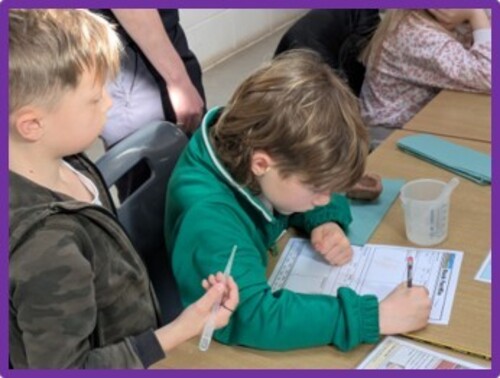




We had a fantastic Science week, and focused on using our STEAM skills to approach engineering challenges.
First, we looked at different shapes, and how they affected the strength of structures. We experimented how much weight different shapes could take.
Then, we used these skills to build a shelter alongside our ‘connect class’ in Year 6 using newspaper and tape.
We also learned about farming sustainably, and watched a live webinar that taught us about this, including soil health.
Finally, we designed, drew, annotated and explained an invention to solve a problem, and entered it into a national competition.





We visited the hall which hosted an exhibition of all the various art that had been created by each year-group during Art Week.
We talked to each classes’ Art Ambassadors, who explained how the art was created, and told us about the artist their class had been studying.





Year 3 have really enjoyed their Geography learning on rainforests. As we complete this unit, the children have made fantastic posters demonstrating just how much they know and how passionately they feel about the problems faced and how we as individuals can help. We are also lucky enough to have watched a series of videos sent from Bella’s uncle who is working at a primary school in a tropical rainforest.
As part of our RE topic, we split into small groups and created some plays depicting some acts of forgiveness.
We practiced articulating why we might be sorry, and how we might tell someone we forgive them. We focused on fully explaining why we are sorry, and how we might then show that we mean this. We then discussed which words were best in helping us understand we were forgiven.




We have been practicing adding 2-digit and 1-digit numbers using the mental strategies we have learned. We used dice to play the game ‘Piggy’.
We could keep on rolling the dice and add the score to our running total, but we had to be careful: rolling the same number twice in a roll meant we lost our score!





As part of our Ancient Egypt topic, we have been looking at Gods, the afterlife and mummification.
We learned the process of mummification, before acting it out on our class pharaoh - Seb. We discussed each step and its importance to the Egyptians whilst we worked.
We finished by wrapping our class mummy in linen – good luck in the afterlife!





We visited the local church, and were shown round by the vicar, Ben, who even let us do a treasure hunt!
Ben discussed Jesus with us, and what Jesus means to Christians.
We managed to find many items and objects that we have learned about in our RE lessons, including the font, lectern, stained glass windows and the altar.





We had a wonderful visit by Nick the ‘Bugman’ as part of our Science topic on skeletons and animals.
He showed us animals with the three main types of skeleton: exoskeleton, endoskeleton and hydrostatic. He taught us the different advantages of these, and why animals had adapted to use them.
We were allowed to handle a variety of different not-so-minibeasts, including giant millipedes and land-snails, stick insects and even a tarantula!





To begin our English unit on instructions, we were given a set of instructions to follow. These showed us how to create a friendship bracelet.
We then looked at which features made the instructions easy to follow, and learned about how we can use different features to create our own instructions.





Our amazing portraits from Art Week are complete! A huge thank you to Mrs Farmer for taking lots of care and time to display our works of art.





Year 3 have been exploring the features of Pop Art and looking at various pieces by Andy Warhol. They have enjoyed looking at every day objects, drawing them, sketching and printing them. Self portraits using Andy Warhol features have been started … watch this space!




As part of our history learning, we looked at a selection of images showing ancient Egyptian art. In pairs, we closely observed pictures and discussed what we could see. We discovered we could learn a lot about the clothes, jewellery, animals and objects that were important to the Egyptians. We also spotted several of the Gods we have been learning about!



We were lucky enough to have a cricket workshop. During the workshop, we practiced throwing and catching, and completed a range of challenges that stretched our co-ordination and catching to the limit.





We looked at what History means, and then revisted what we have learned in previous History topics.
We then discussed timelines, and tried to order some important historical eras. After finding out the answers, we mixed them up and tried again. Everyone found the correct order this time.





We approached a tricky problem where a hundred square had been cut up into pieces, and the numbers replaced with symbols. We had to use our knowledge of place value and the amount of digits in different places of a hundred square to piece it together.





We used place counters to represent three digit numbers. We discussed place holders, and looked at what happened as we added or removed counters. We then looked at clues and used counters to help us solve them.





We used place value charts and counters to explore what happens as we add and subtract 1, 10 and 100. We observed how changing the number of counters in different columns changes the number.
We then looked at what happens when we have 10 counters in a single column, and looked at how exchanging can help us.





We completed the ‘100 Square Jigsaw’ activity from Nrich. This required us to use our knowledge of place value and the order of numbers to piece together the parts of a jigsaw.





In order to practice using rulers and drawing straight lines, we created some parabolic curves. We explored how different colours and patterns made 3D effects, and discussed what a ‘curve’ was.





Class 7 completed some wonderful pick ‘n’ mix homework over the Summer Holidays. We shared this in class, and took the opportunity to carefully look at each others’ work, linking it with what we have learned in our topic so far. The homework was excellent!





During May, year 3 have been celebrating Local History Month. Thank you so much for the pick 'n' mix homework that your children brought in - it has been wonderful sharing experiences and photos of the past, including some great pictures of our current parents as former Huish pupils. The children had the opportunity to learn about Huish in the past by looking at a variety of artefacts that link to the school. This included photos, old newsletters, behaviour books and even letters from pupils about school life dated from the 1800s. They discovered that pupils used to be kept behind after school had finished if they hadn't 'said' their lessons correctly, and that boys and girls used to learn in different classrooms. Children researched where Huish used to be, and that traces of the old building can be found at the new school, and at Tescos.

We had a visit from the bug man, who talked to us about different types of skeletons. We looked at animals with endoskeletons, exoskeletons and hydrostatic skeletons. Wetalked about how different animals have evolved, and the timescales involved. We even got to hold some of the minibeasts!
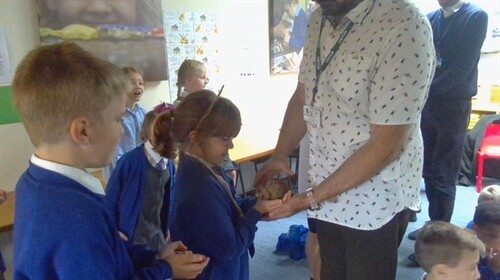
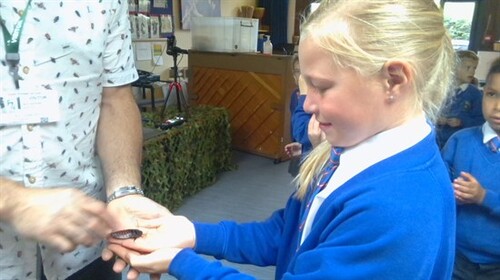
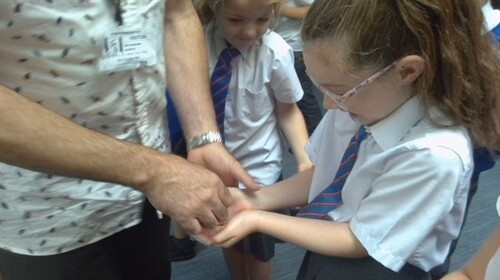
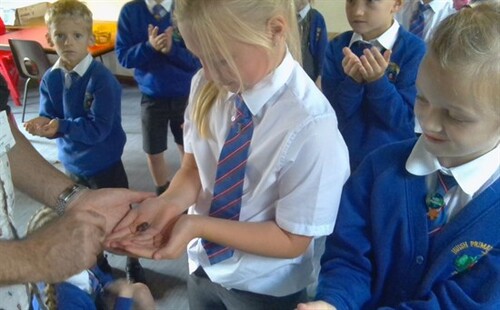
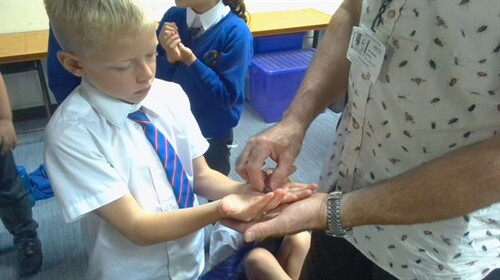
In Maths Basic Skills, we used dice to play a game of dicey addition. We had to use mental methods to add a 1-digit number to a –digit number, sometimes crossing 10. We had to be careful – if we rolled the same number twice in a row, we would lose our score!
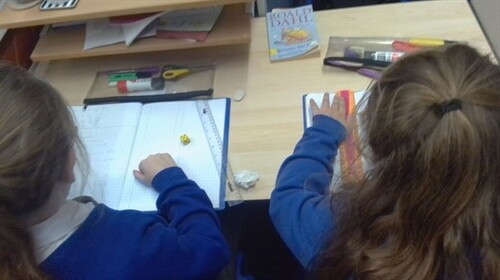
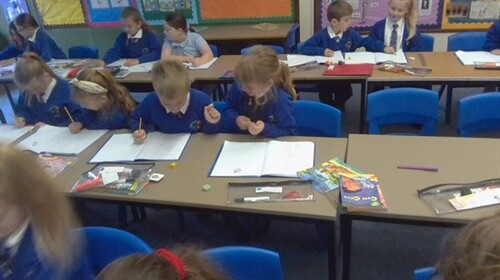
We learned what a historical source was, and analysed a number of pieces of Egyptian artwork. We were able to identify objects, activities and gods that we had met in previous lessons.
We have also had the Ancient Egyptian books from our school library in our classroom, and have had the opportunity to pick and read some.
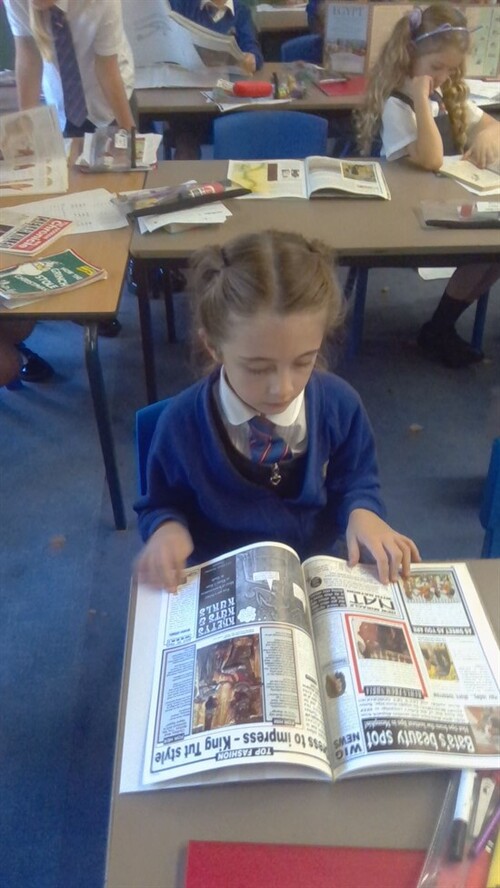
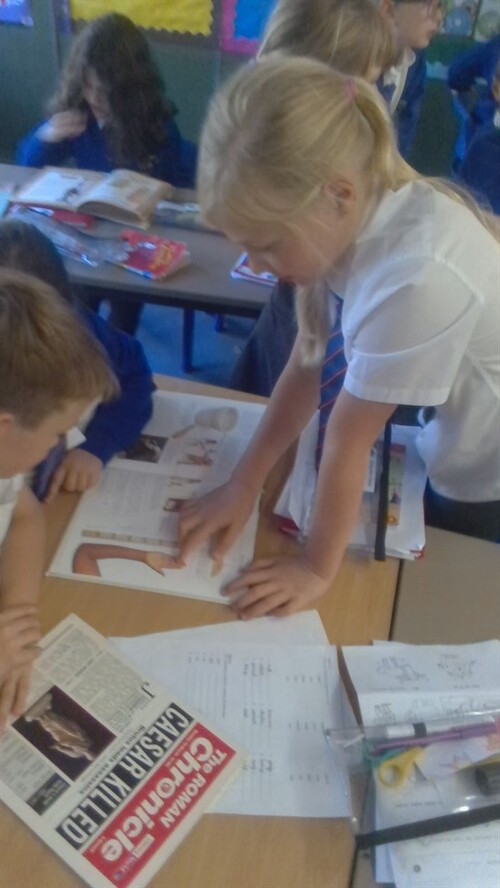
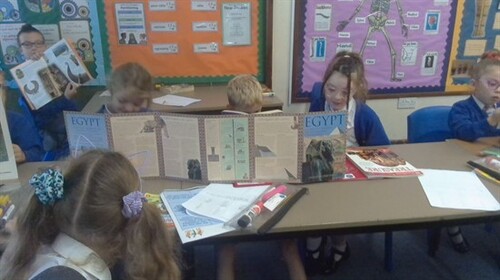
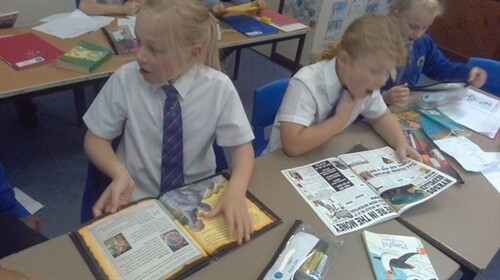
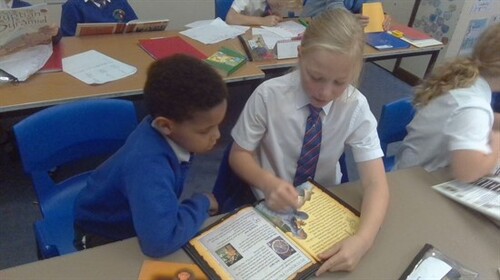
As part of our instructions unit, we practices speaking using time conjunctions and precise vocabulary to help people create drawings – the twist was that we didn’t know what the drawing was going to be!
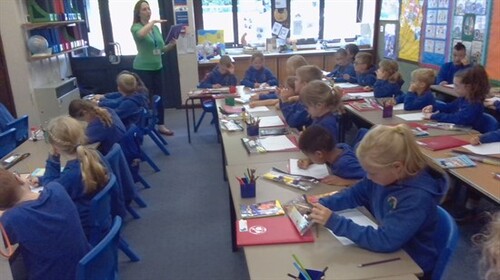
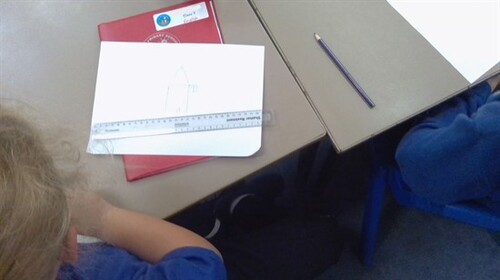
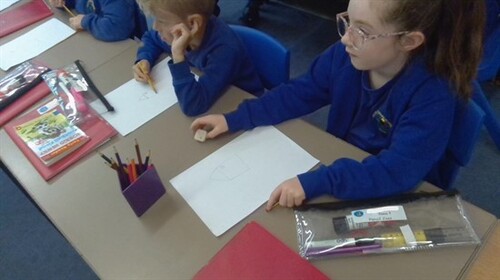
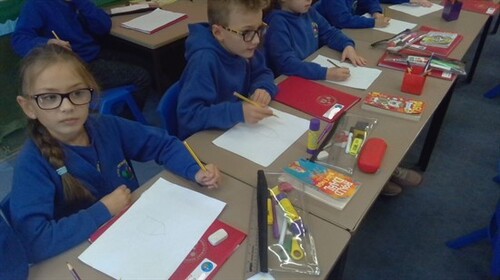
During our Guided Reading sessions, we always use our first lesson to practice reading the text out loud. This might be in pairs or in groups. We then give each other feedback on what they have done well, and what they could improve. We use APE to remember what to discuss – accuracy, pace and expression.
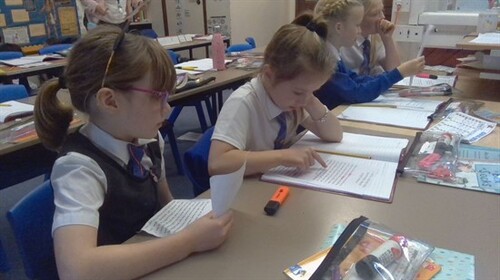
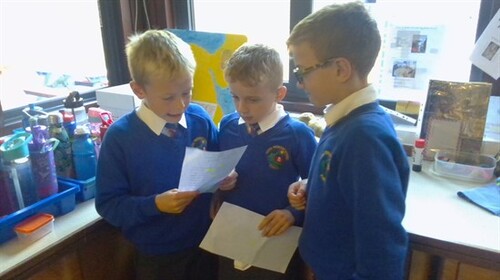
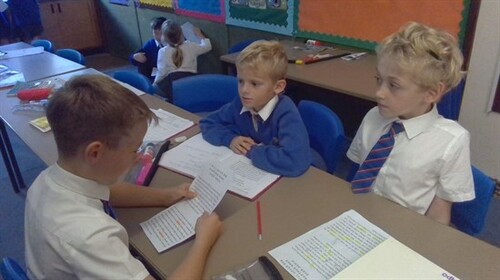
We have been practicing editing and improving our writing, including making improvements and spotting corrections. Sometimes, we work in pairs to do this, and take it in turns to read and discuss each other’s work.
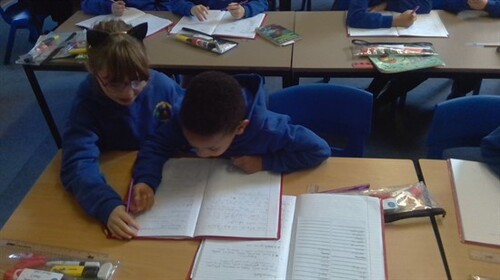
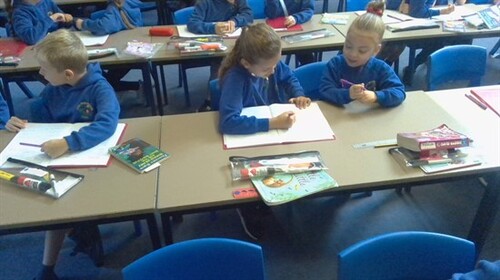
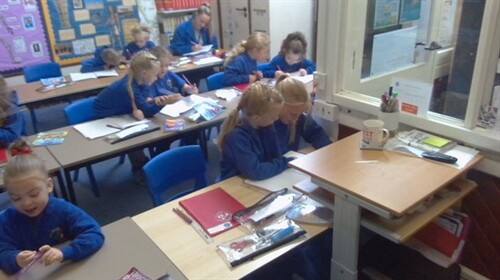
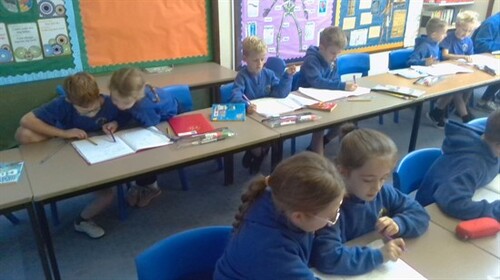
Class 7 completed some wonderful pick ‘n’ mix homework over the Summer Holidays. We shared this in class, and took the opportunity to carefully look at each others’ work, linking it with what we have learned in our topic so far. The homework was excellent!
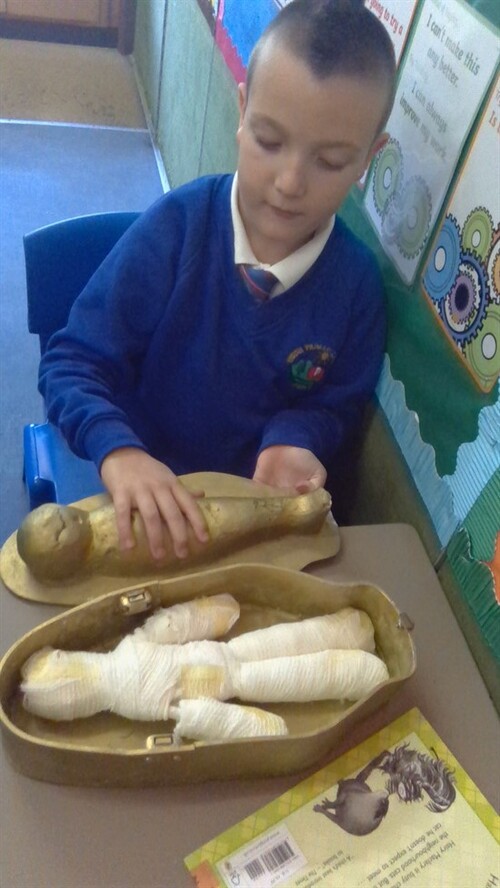
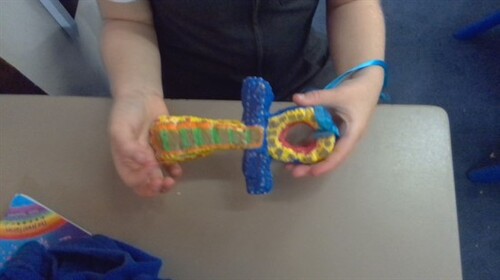
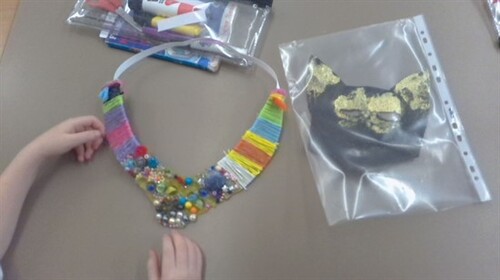
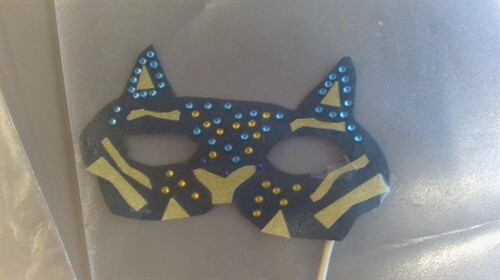
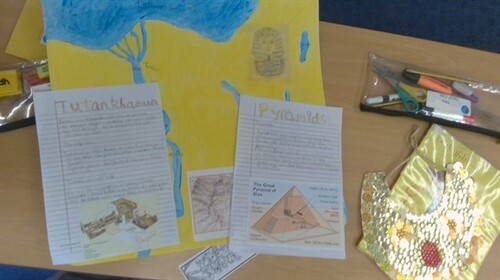
As part of poetry day, we looked at some poems on the theme of ‘refuge’. We read some out loud, and then discussed how the rhyme and rhythm sounded and worked.
We then wrote poems about the objects and concepts that we find refuge in at home, before reading them to the class.
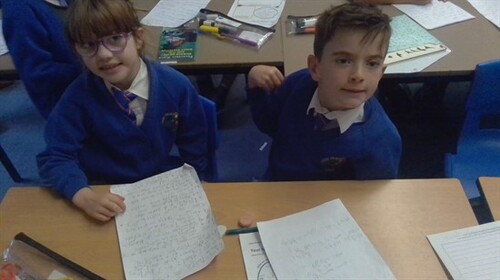
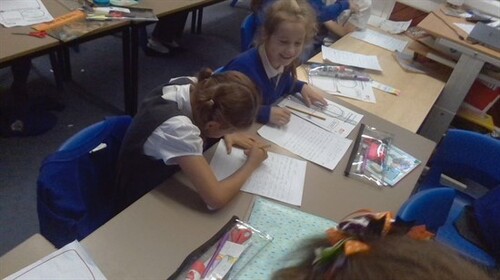
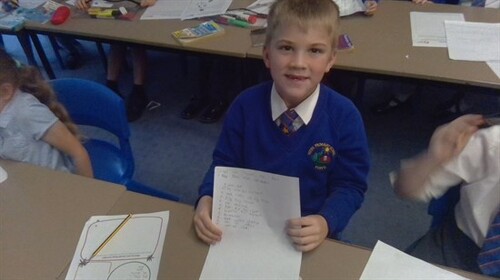
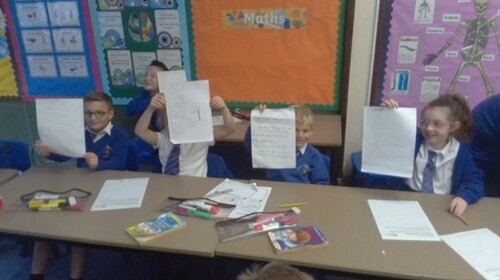
We have started to use Thesauruses and dictionaries to help with interesting vocabulary and spelling.
We revised what alphabetical order means, and then completed a variety of activities where we had to hunt for different words and meanings.
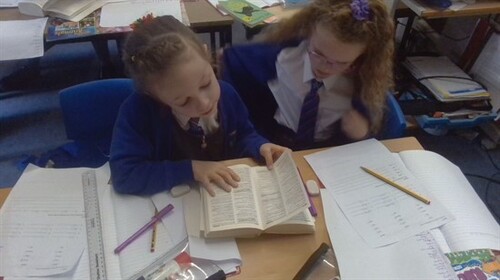
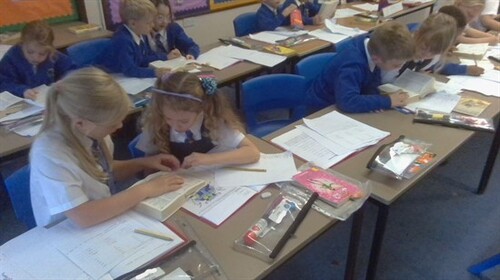
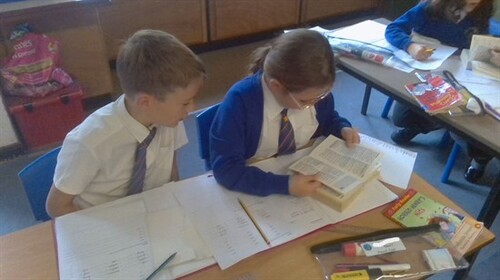
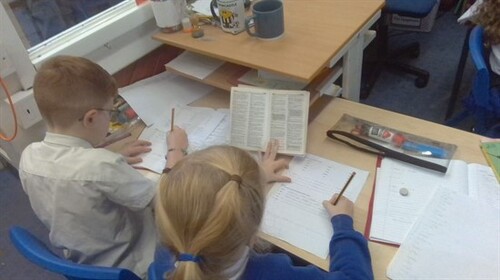
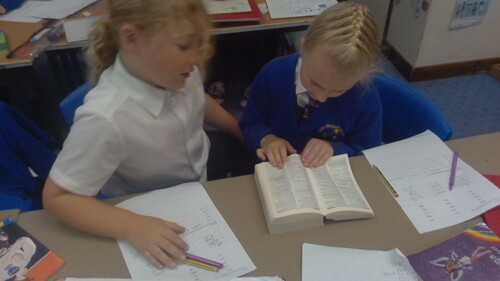
We spoke about the importance of giving compliments, and practiced doing this. We discussed how this made us feel. We then moved round the class adding a compliment to the ‘compliment sheet’ of each person in Class 7.
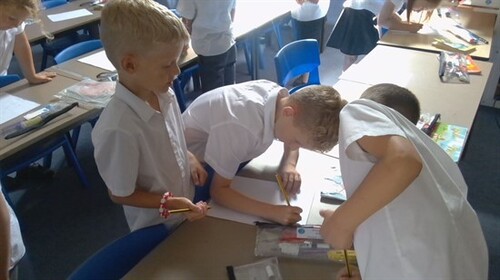
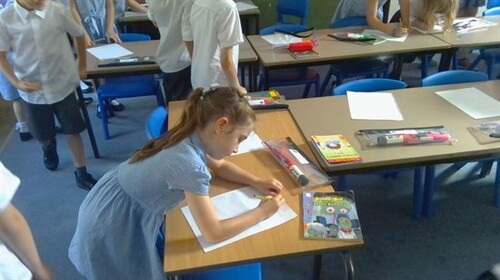
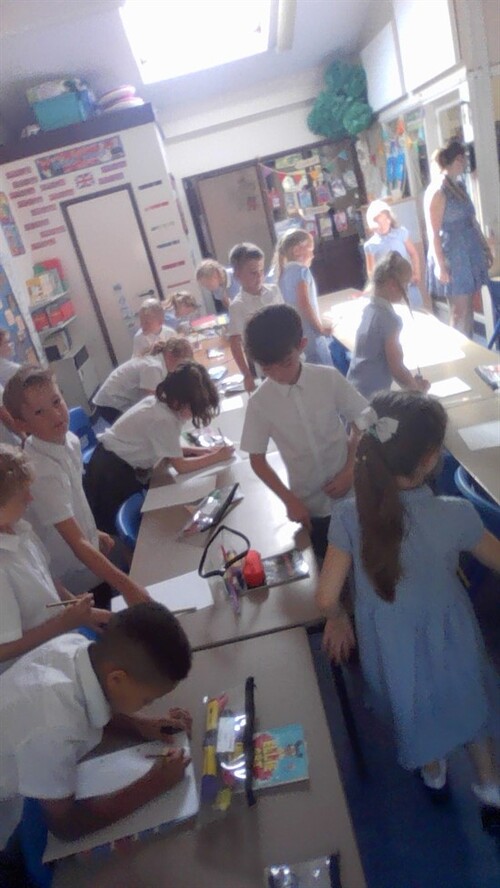
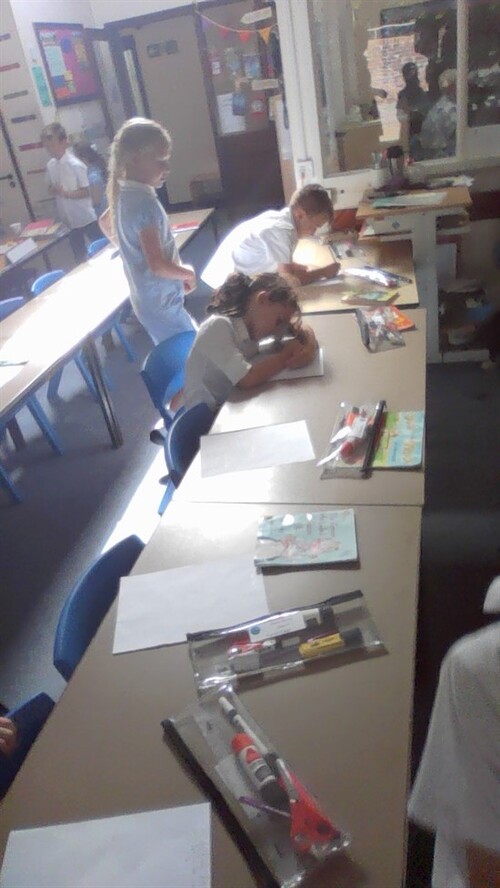
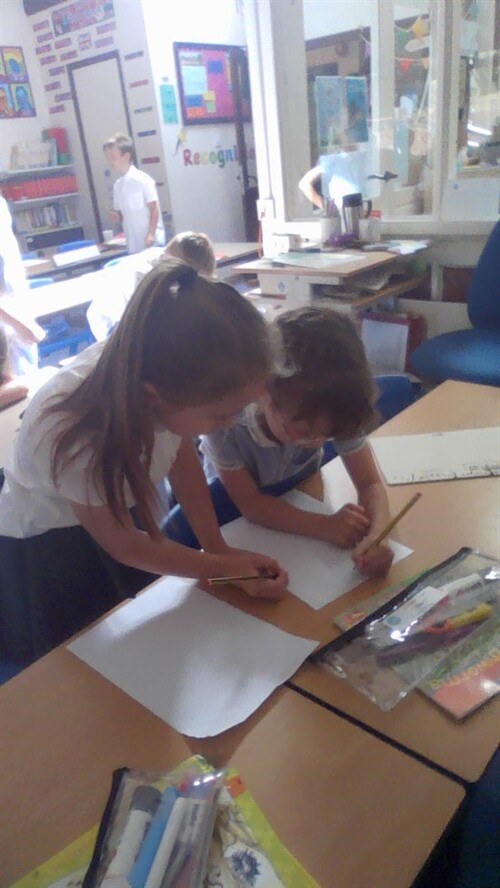
We used Base 10 to explore how we can represent different numbers. We looked at why different numbers look the way they do when using Base 10. We discussed how to organise Base 10, and how to use it to solve problems. We even talked about exchanging and what that would look like.
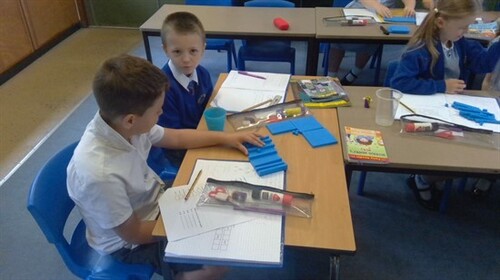
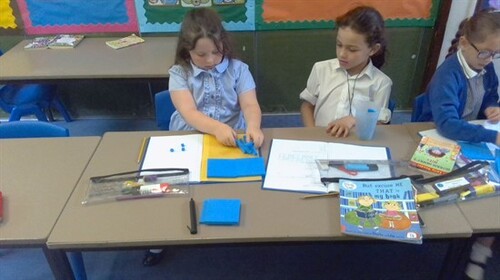
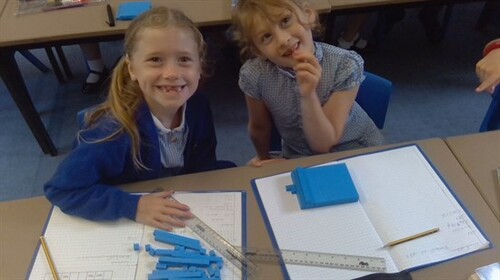
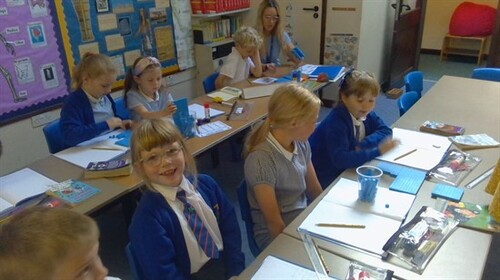
We discussed what people in our cultures believe happens when we die, and how we prepare people for this. We then compared this with Ancient Egyptian beliefs.
We then went through the mummification process by carrying out on Imogen (assisted by Roman)!
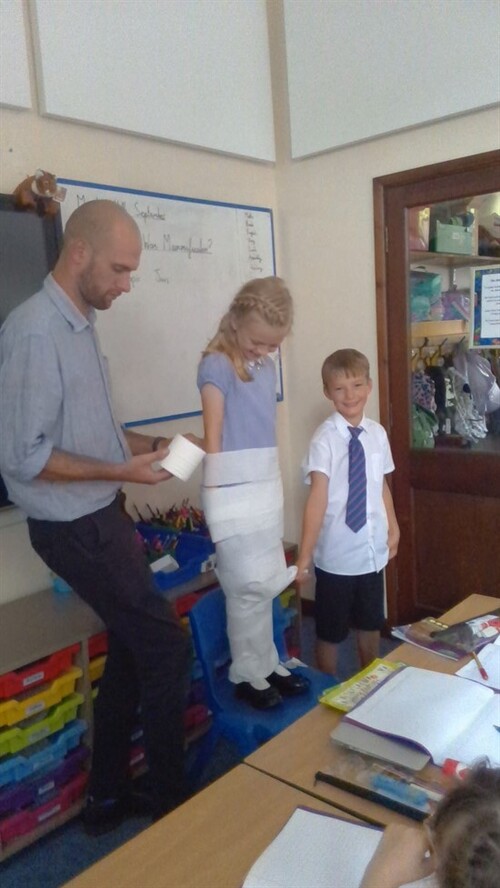
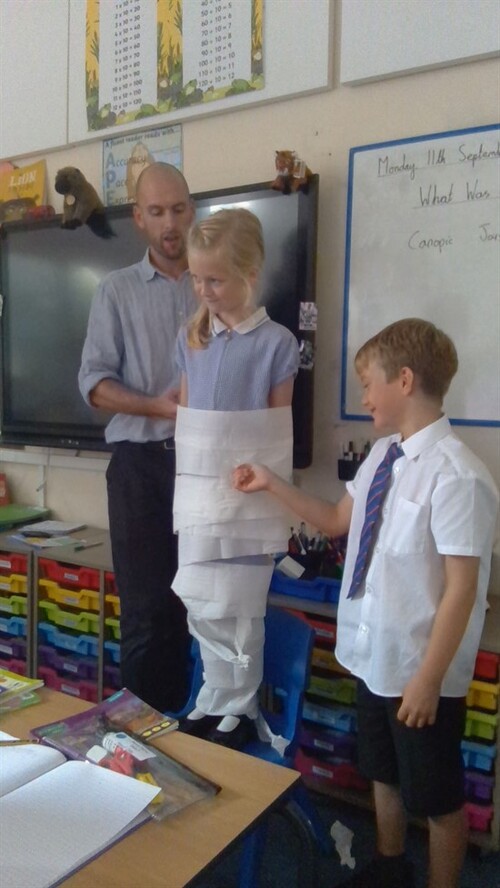
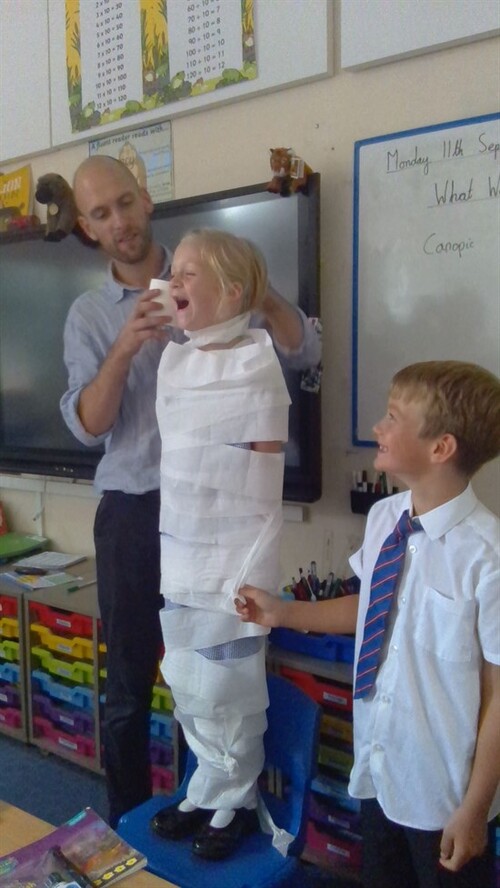
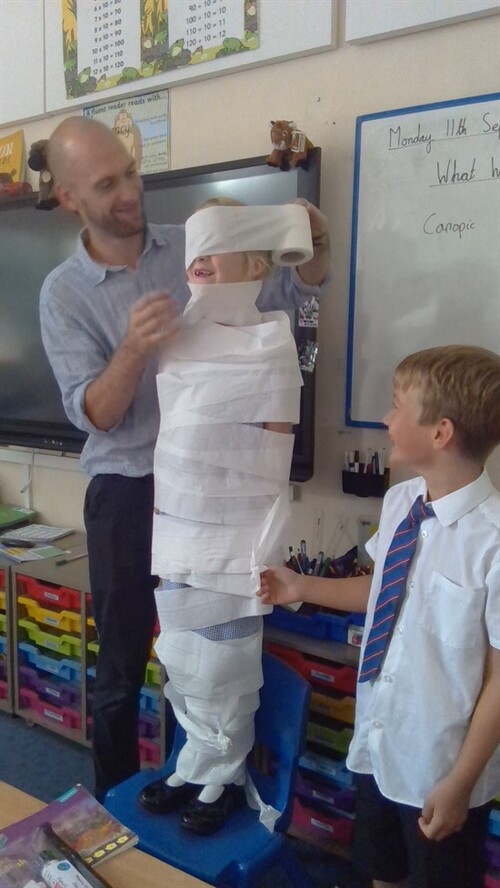
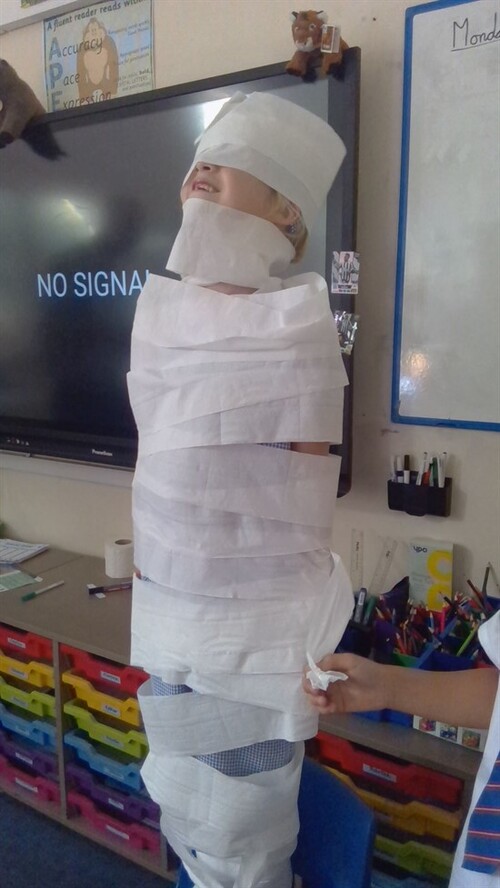
We built on our knowledge of place value and base 10 by representing a range of 3-digit numbers using place value charts. We then practiced manipulating these numbers, and looked at how we could use counters to count. We discussed how exchanging differs and is similar to using Base 10.
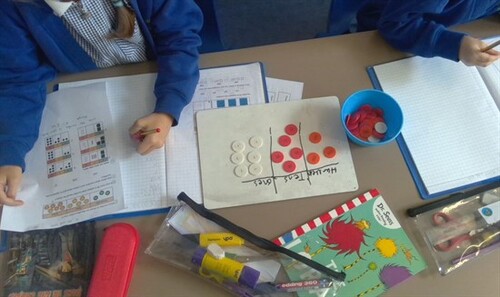
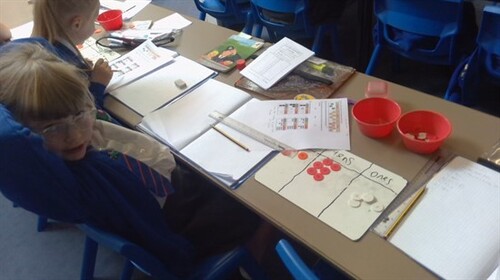
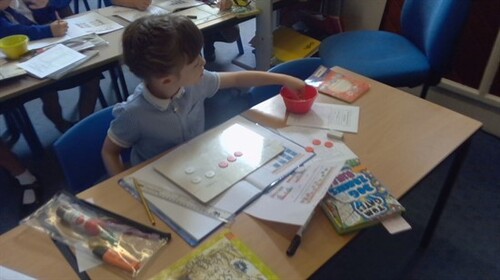
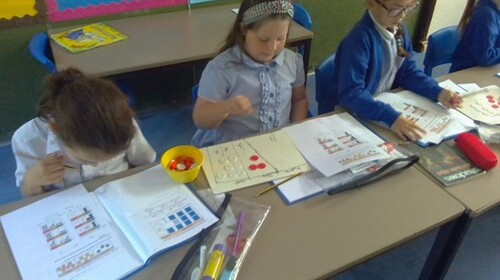
We used timeline cards to explore where the Ancient Egyptians came in history, and what came before, during and after. We guessed the order first, before using dates to work out the correct arrangement. We discussed the concept of AD and BC, and used this discussion to work out how long ago the Ancient Egyptian civilization started and then collapsed, as well as how long it lasted for.
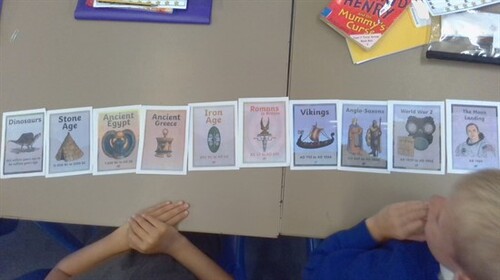
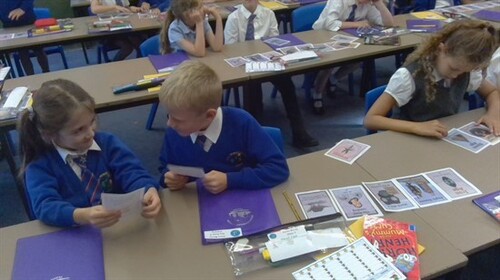
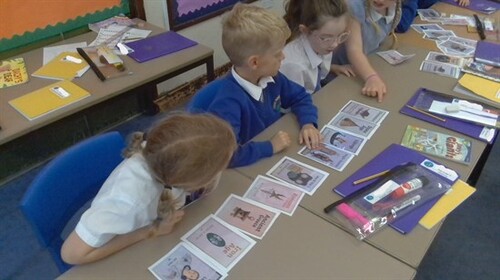
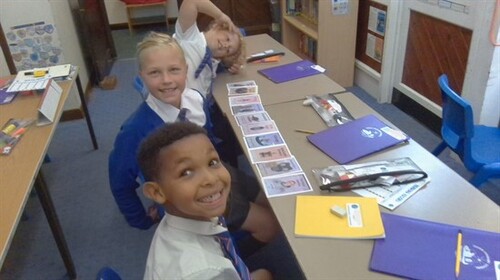
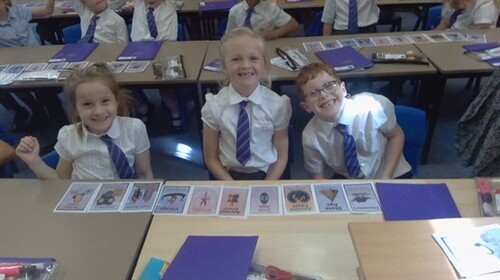
As part of our work on presenting data, we went on a ‘shape hunt’ around the playground, using tally charts to record our findings.
We then presented this data in a variety of ways, including bar graphs, pictograms and tables. We discussed which method of presentation gave us the clearest and most accessible idea of which shapes were most and least common.
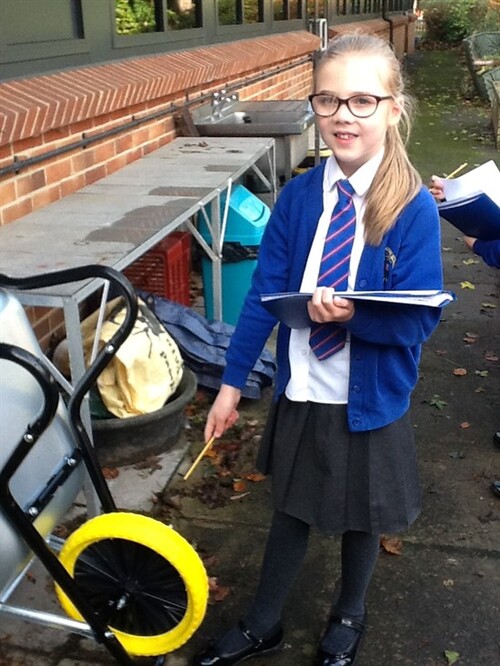
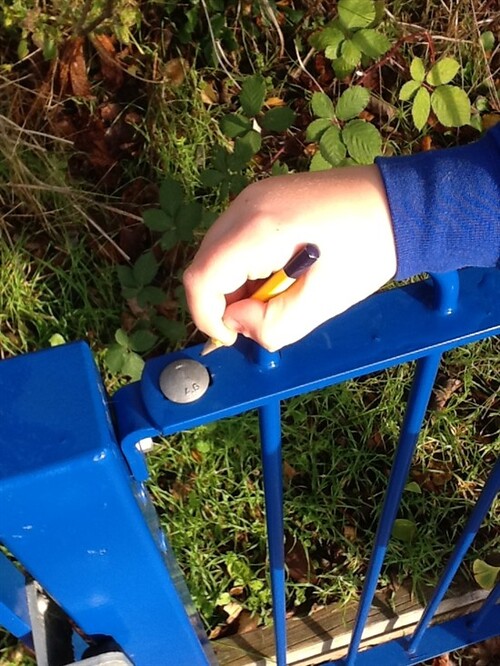
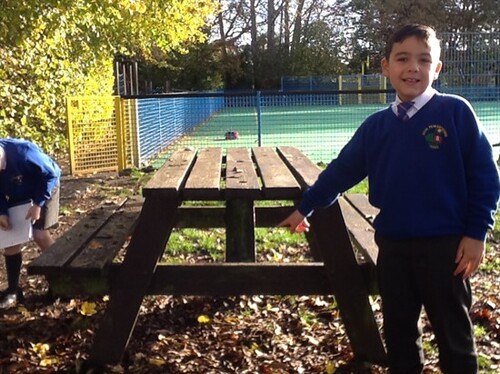
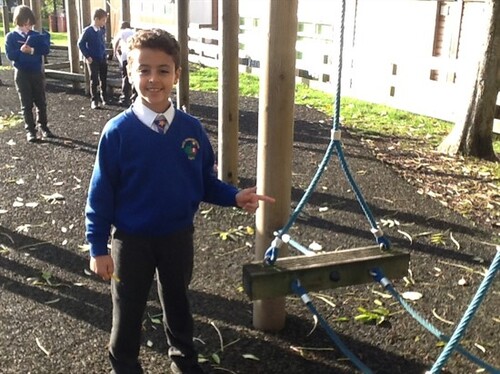
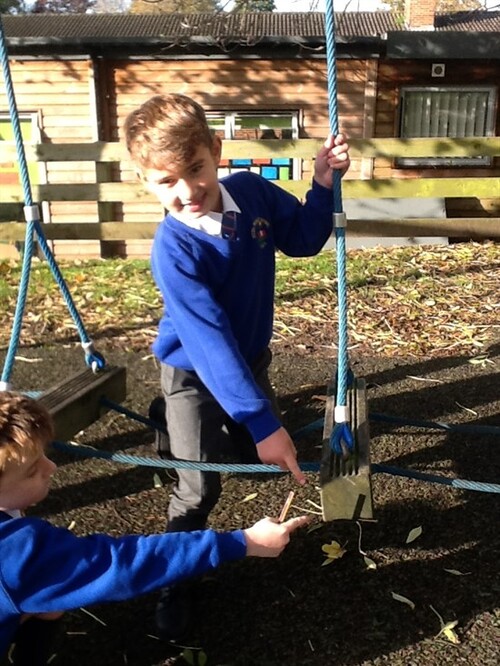
We have been looking at non-unit and unit fractions. We explored these using shapes and counters.
Whist using the counters, we practiced representing the denominator by splitting the counters into equal groups. We then used these to work out non-unit fractions of a mounts by selecting multiple groups to represent the numerator.
We looked at practicing our ability to work out factors and multiples using an Nrich activity.
We used a hundred square and took it in turns to work out the factor or multiple of the previous number. This meant we had to use several strategies, including grouping and repeated addition.
The first person who couldn’t go lost the game.
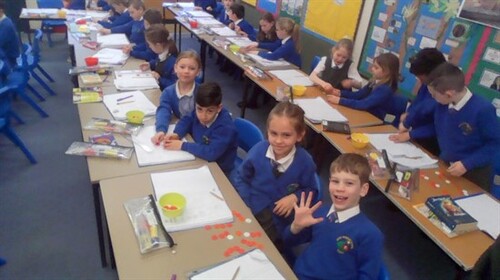
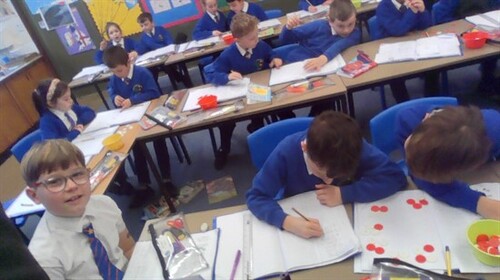
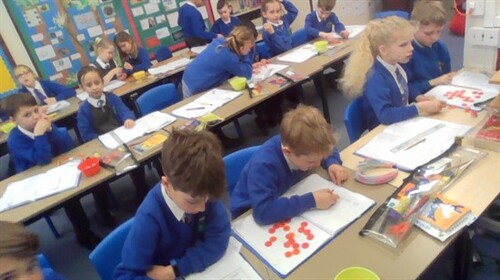
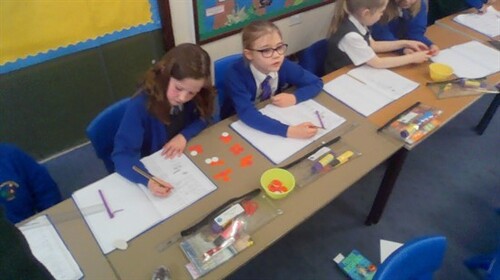
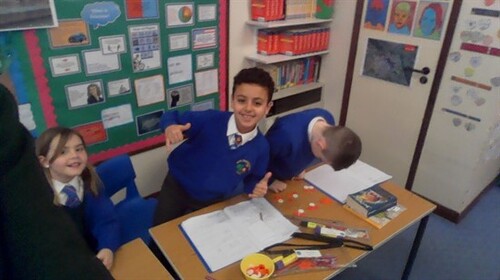
We spent two lessons looking at deforestation, and the Amazon as a case study.
We looked at some photographs, including areal photographs, of different aspects of deforestation in Brazil. We noted what we thought was happening and our reactions to it. We then explored the reality behind each picture.
After this, we looked at the factors that drove some deforestation in Brazil, including logging, mining and agriculture. We then engaged in a debate in groups of three, linking our arguments back to lessons on animals and indigenous people.
We used these ideas to plan a balanced argument about logging in Brazil.
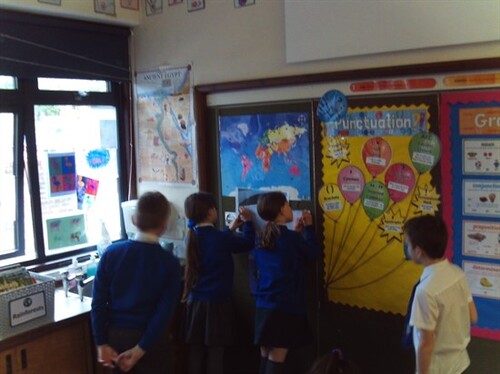
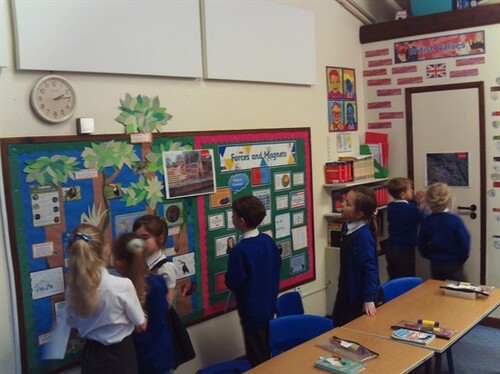
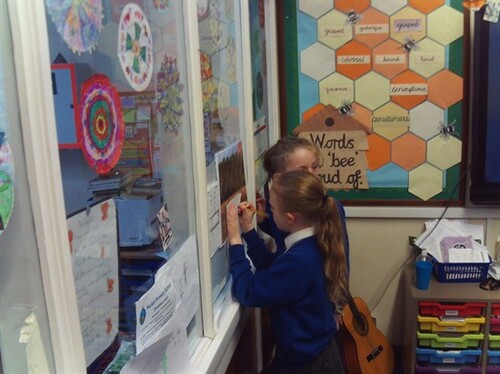
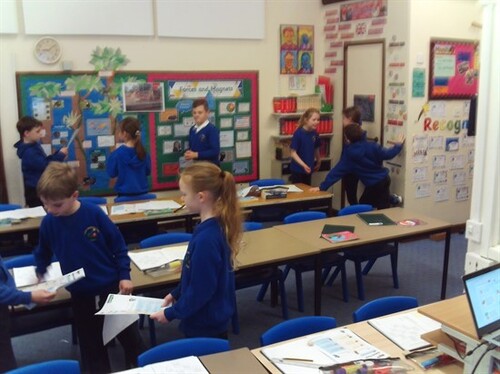
During Art Week, we looked at the paintings of Henry Rousseau, and created our own Rousseau inspired paintings of rainforest birds.
We practiced colour-washing using water-colours, and imitating the shapes and colours of rainforest plants. We then used these techniques to build up the backgrounds of our paintings and to create a sense of thick undergrowth and forest.
Finally, we practiced painting the shapes of different rainforest birds, including birds we had looked at whilst studying adaptation in Geography, before selecting one to paint on the foreground of our work.
We were so proud of the results, and enjoyed the week!
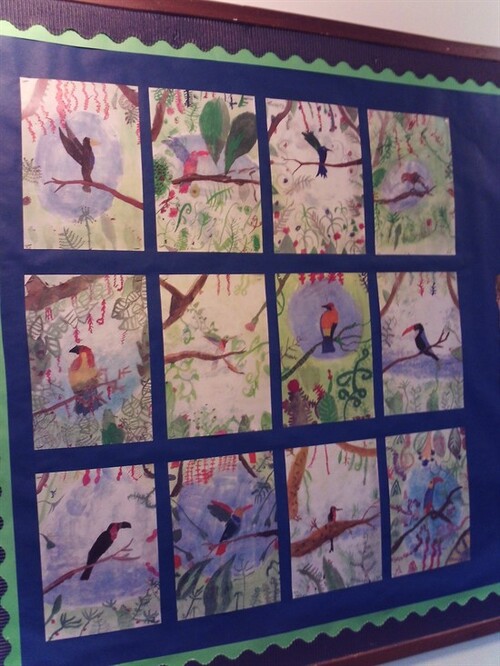
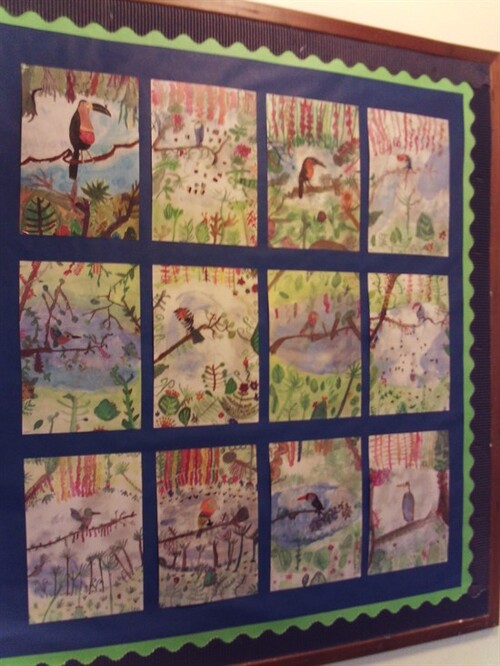
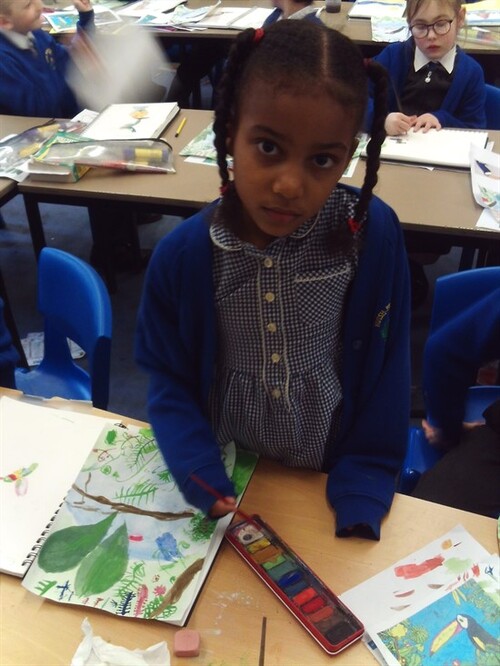
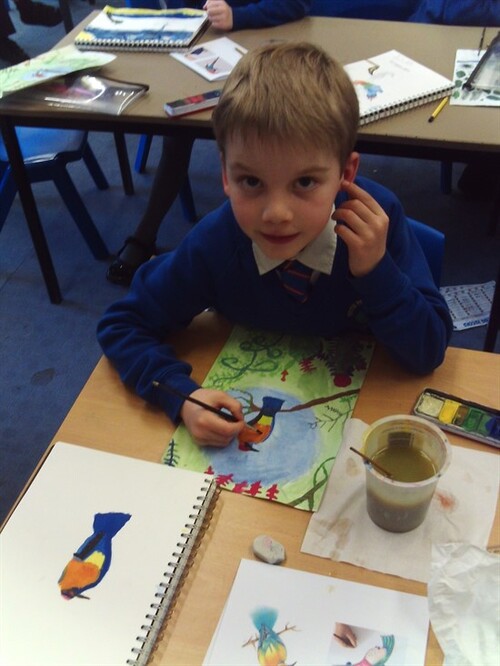
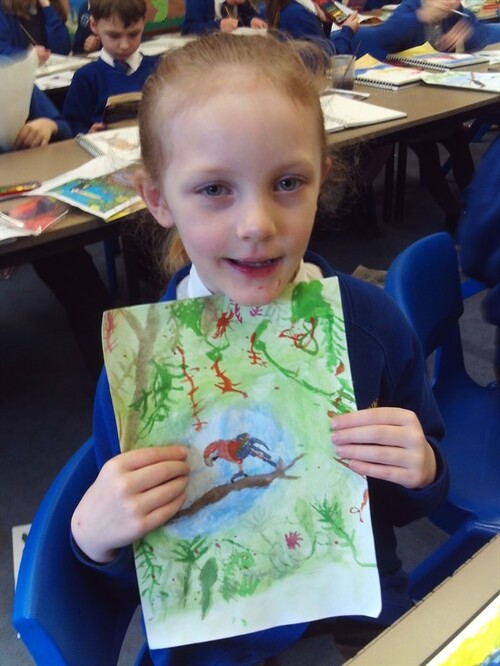
In Computing we have been looking at using data loggers.
We practiced measuring different aspects of our surroundings, including temperature, noise levels and light.
We then measured these in different areas of the school, before presenting our data in a table.
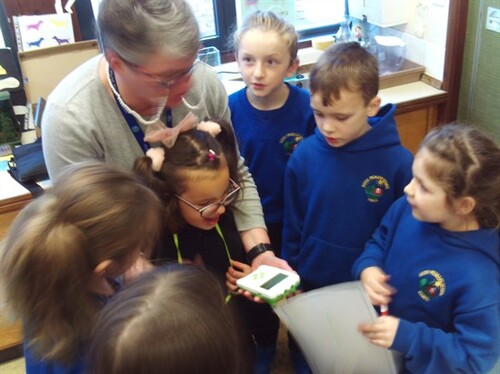
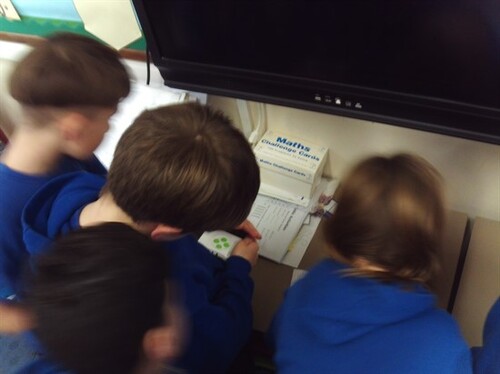
We have been looking at balanced discussion texts in English.
As part of this, we have been looking at practicing oracy to engage in verbal debates. This has helped us to build our arguments, and become more confident at speaking!
These pictures show a class debate about, where we all practiced using formal vocabulary and talking using our APE rules.
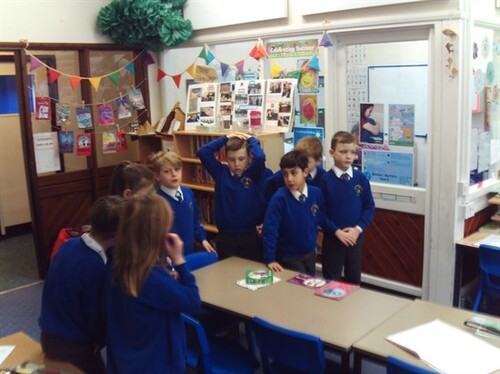
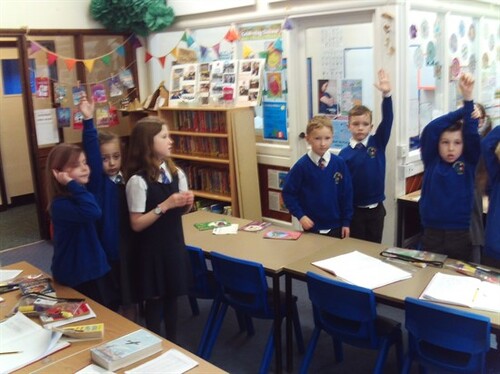
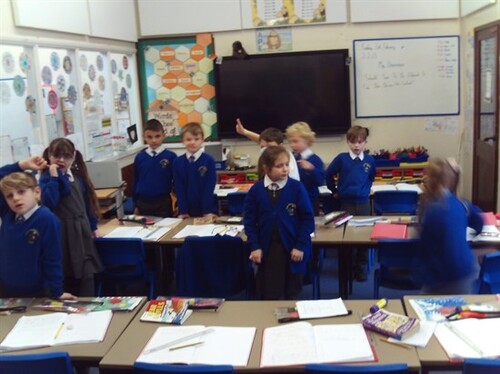
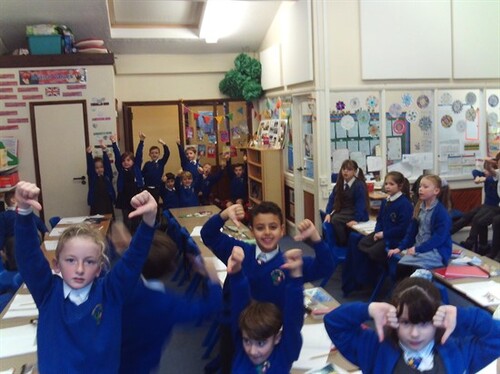
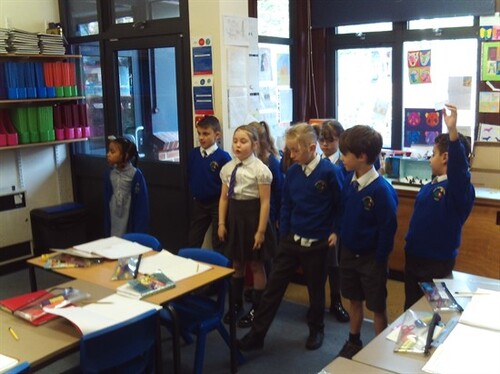
As part of Children’s Mental Health Week, we looked at the theme of connecting. We wrote about how to connect positively with a friend and wrote acrostic poems based around wellbeing.
We took part in a treasure hunt, connecting with another class whilst looking for letters that spelt out ‘wellbeing’.
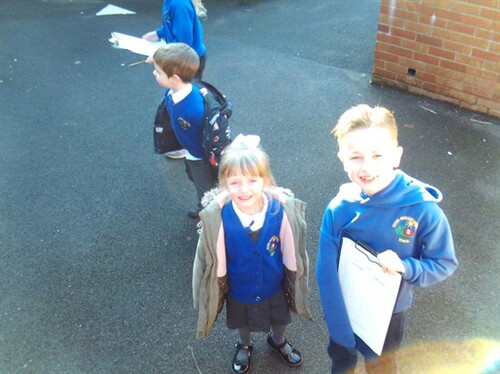
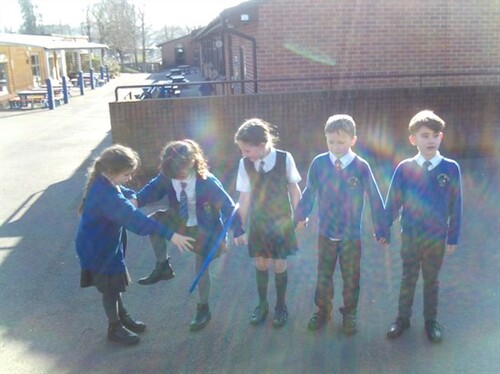
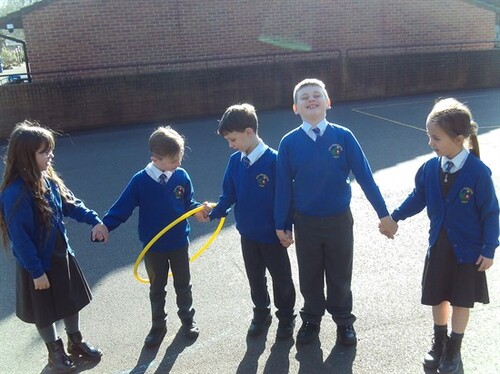
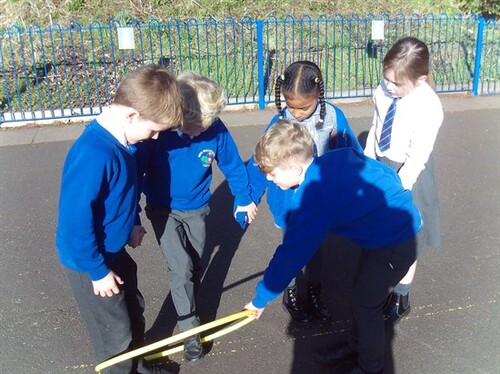
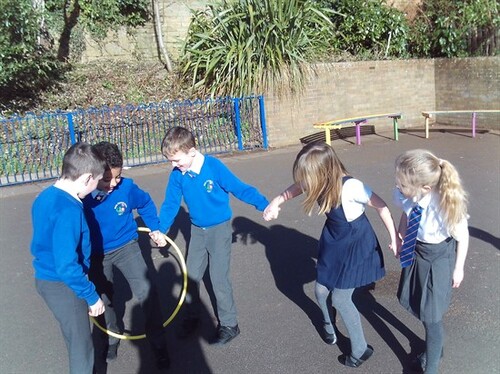
We have been looking at a script in our Guided Reading sessions. We acted it out in groups, using our APE rules to make sure it was engaging. We then performed in front of the class. We will be using our knowledge of scripts to act in front of green screens in computing.
In R.E., we have been studying Judaism. As part of this, we have been looking at the Torah and its importance to followers of Judaism. We shared our reflections on this, and what else we would like to know.
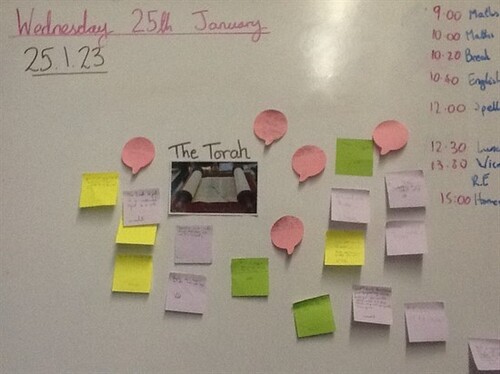
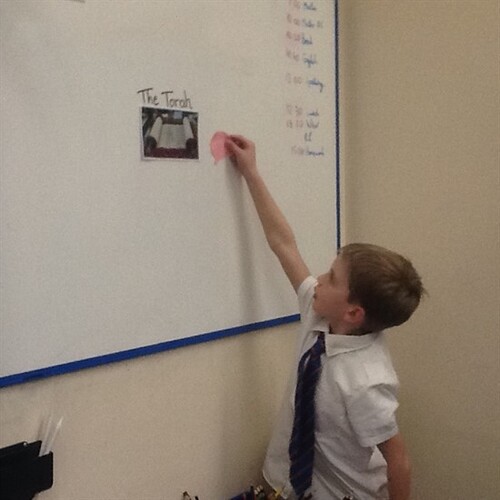
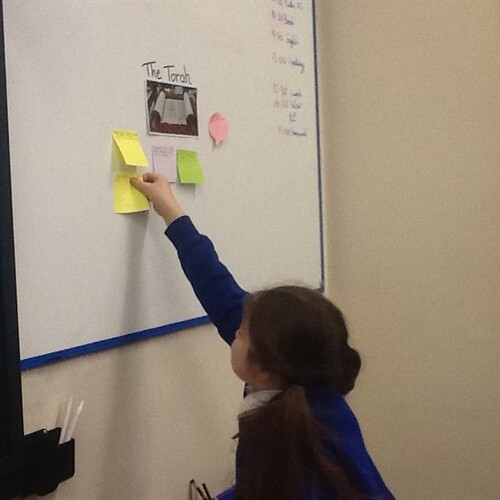
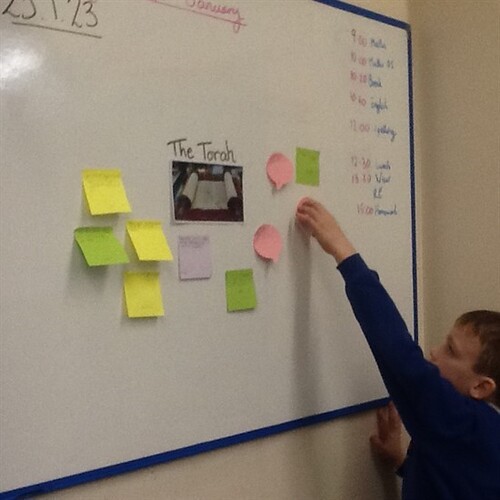
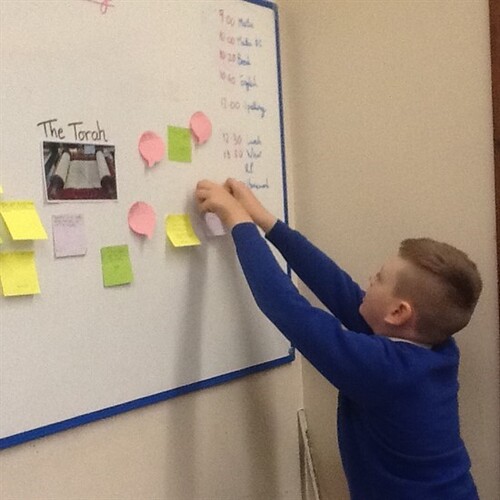
In RE, we have been looking at Mezuzahs as part of Judaism. We made our own Mezuzahs - they look fantastic!
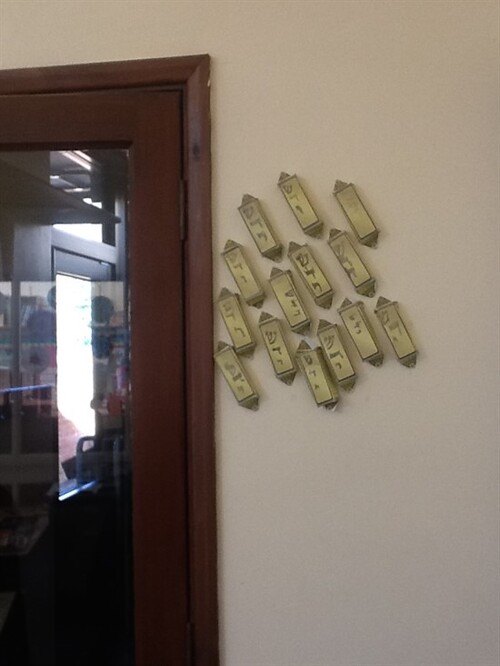
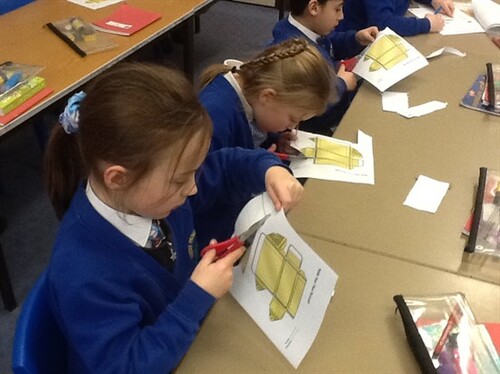
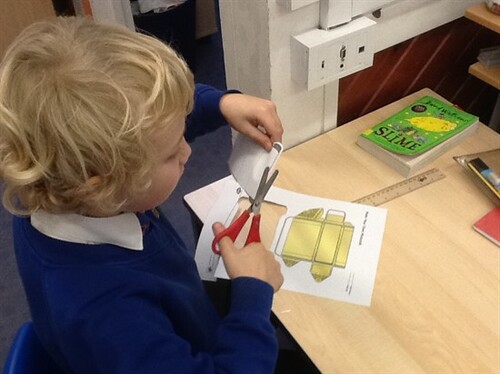
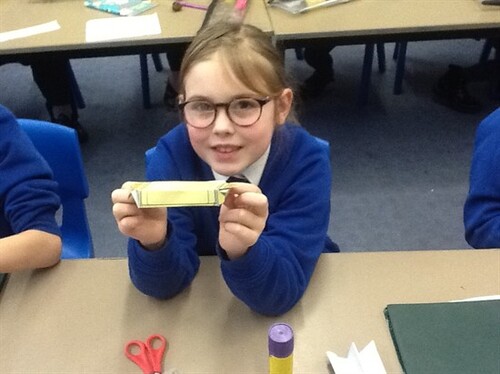
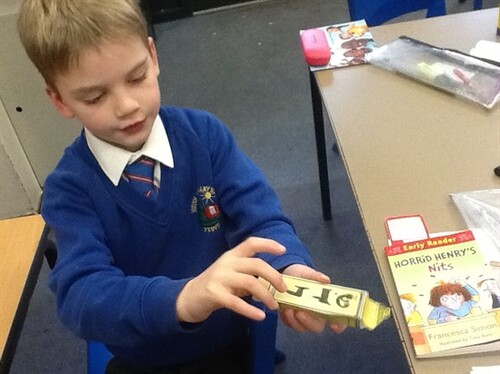
To begin our Mental Health Week, we completed a teamwork activity where we had to finish a variety of challenges moving a hoop from one end of a line or circle to the other, without breaking the human chain!
We then used the qualities we felt helped us to create a 'jigsaw piece display'.
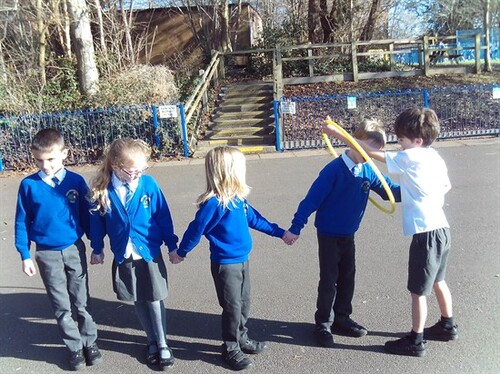

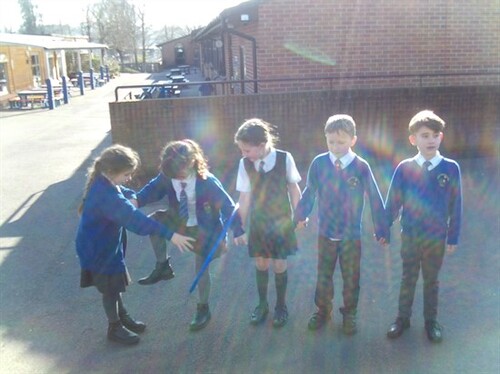
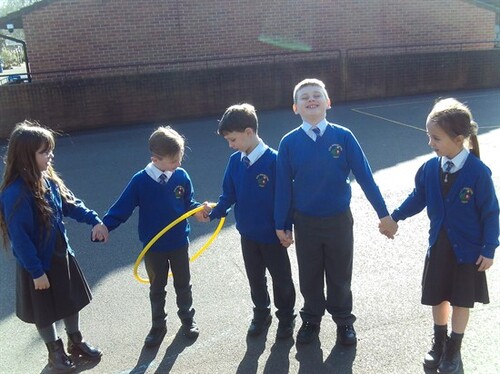
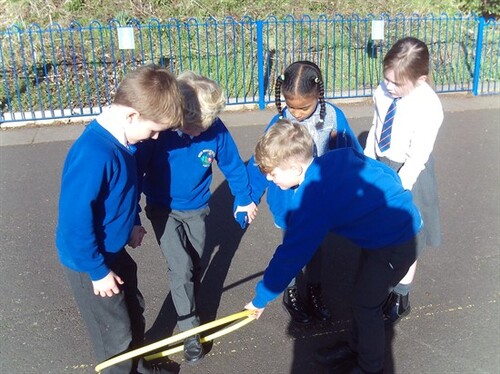
In English, we have been looking at discussion texts. Recently, we used a verbal debate to introduce our newest piece of writing: should children be allowed to bring electronic devices into schools.
We took it in turns to offer our ideas, and then query and clarify them if we disagreed. We stood in different places in the classroom to show how we currently thought about the debate.
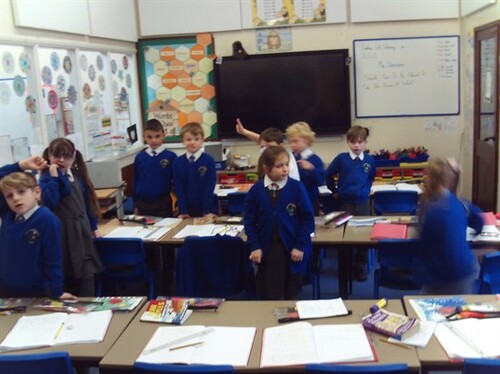
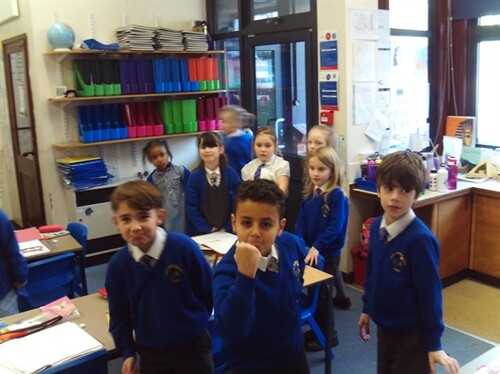
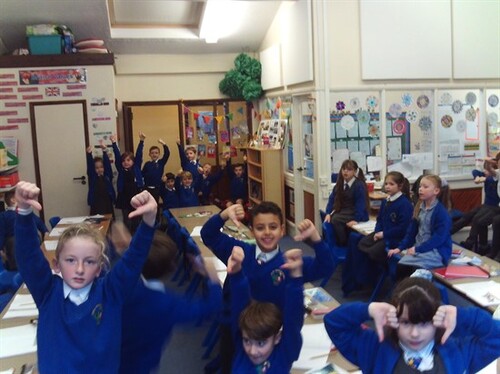
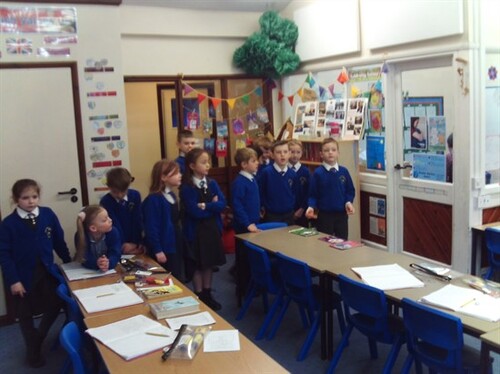
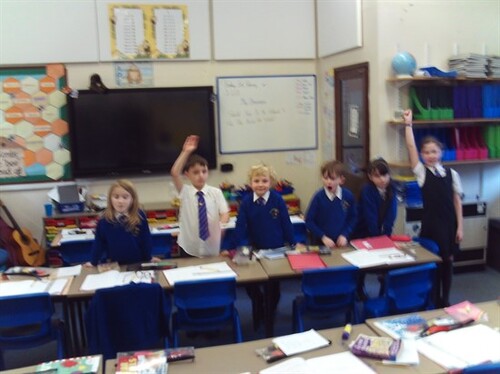
Year 3 were lucky to have Nick the ‘Bug Man’ visit them this term.
He brought a range of insects and ‘mini-beasts’. (Some less mini than others!)
Nick spoke about Exoskeletons, Endoskeletons and Hydrostatic skeletons, and showed us real life examples of animals to demonstrate this. We even got to hold insects such as millipedes, an African Giant Snail, tarantulas, a cockroach and much more!
It was very interesting to learn just how important mini-beasts are to our world, as well as all the amazing ways they can use their skeletons to protect themselves. Some can even use their skeletons to whistle!



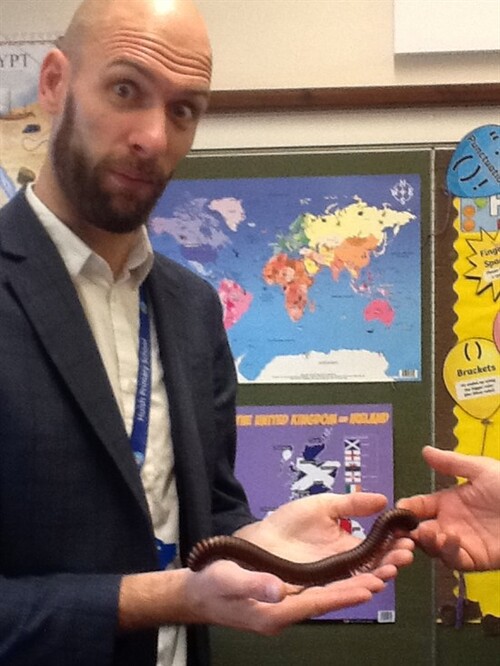
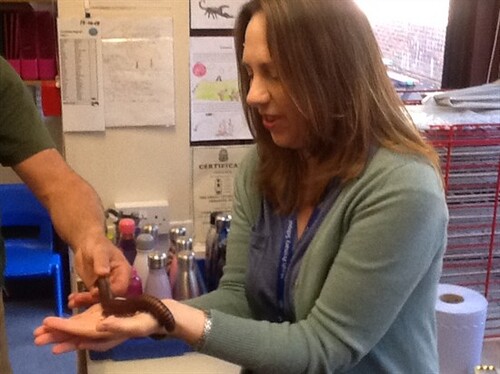
We looked at a strategy game called Nim – 7.
After trying our hands at it and looking at a few example games, we looked at a set of reasoning questions.
We then tried to work out full answers to each of the questions, along with explanations as to why we thought that.
These were explored through discussion, and are part of our work on using appropriate language in Maths, and speaking in full sentences when discussing problems and reasoning.
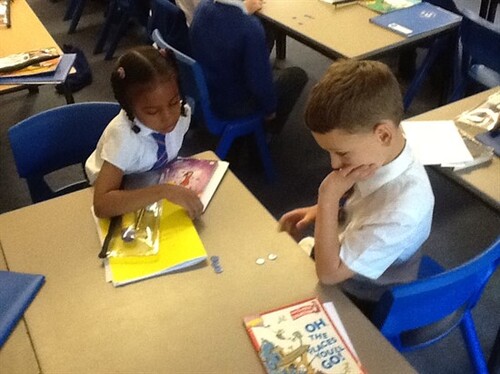
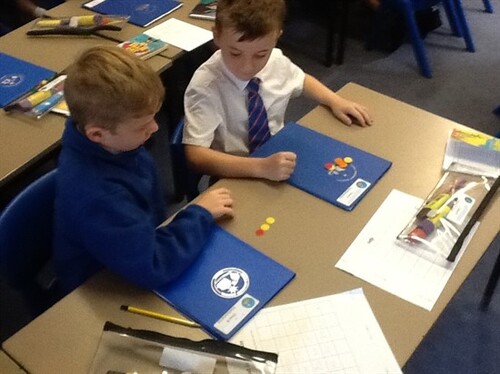
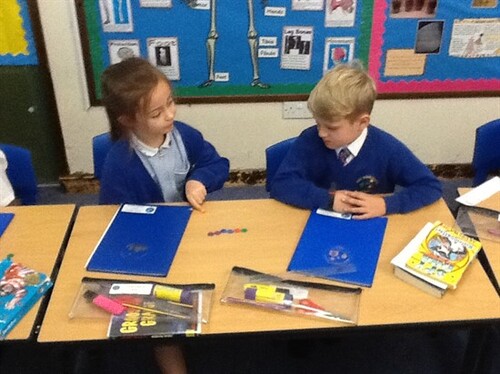
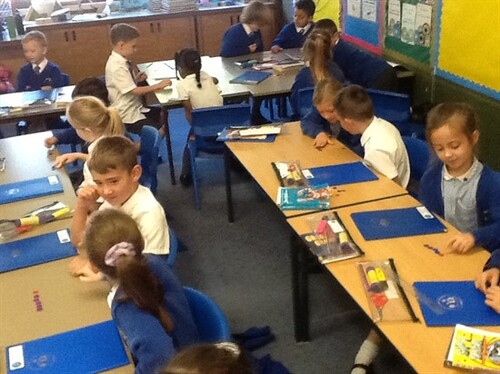
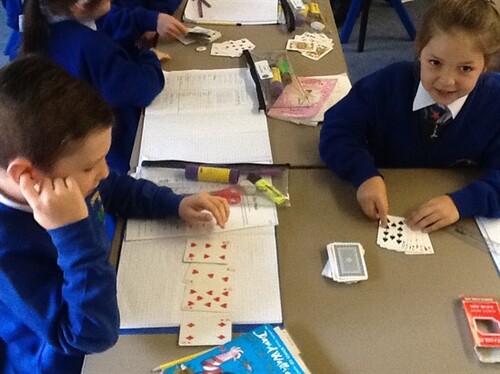
In Maths, we sometimes use playing cards as a way of practicing our times-tables and number bonds.
Often, we will work in pairs and draw a card, seeing how quickly we can name a number bond to 10 or 20. This works for times-tables, too, where we will pick a times-table to practice on, and multiply the card we turn over by that number.
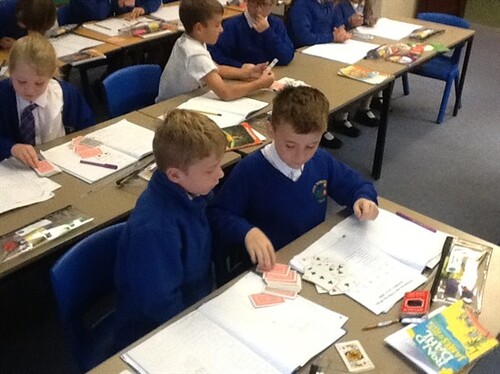
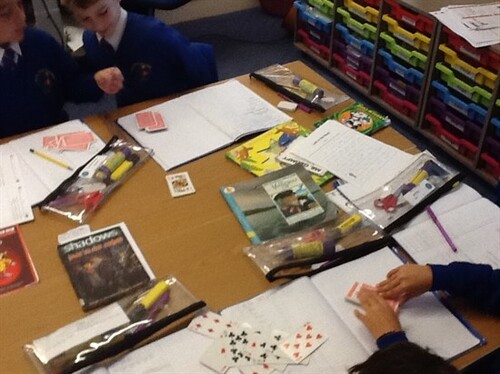
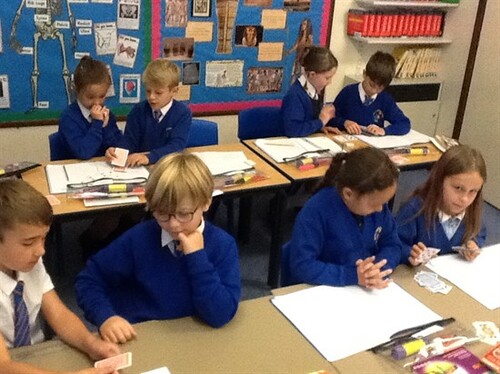
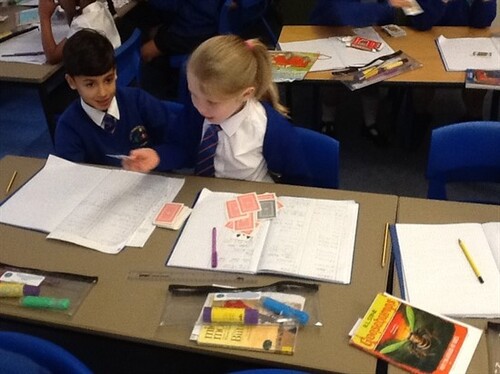
We looked at what the Ancient Egyptians believed about the afterlife, and how mummification linked to this. We looked at each stage of the process, and how it served a purpose in the afterlife. We then carried out a mummification on one of our classmates! After we had finished, we compared and contrasted the way the Ancient Egyptians treated their dead, to they way we do today. We thought about the question: why has this changed?
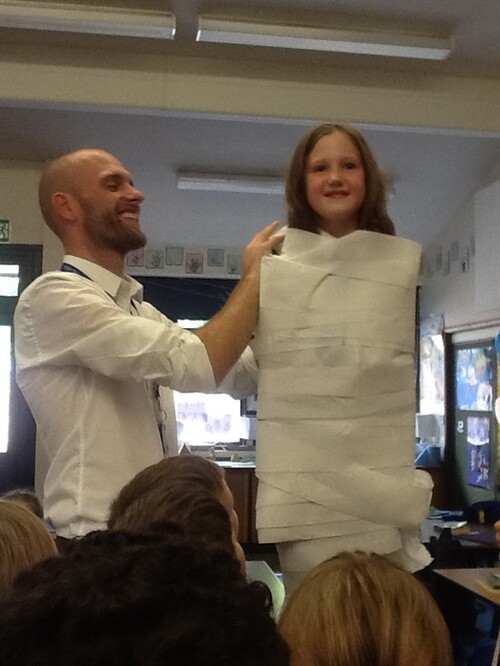
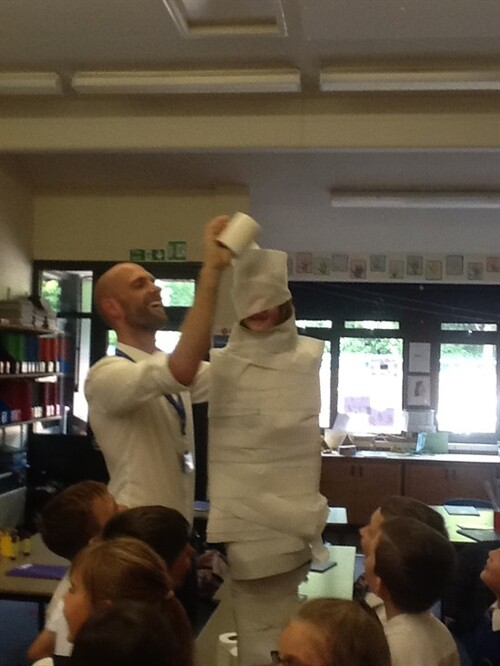
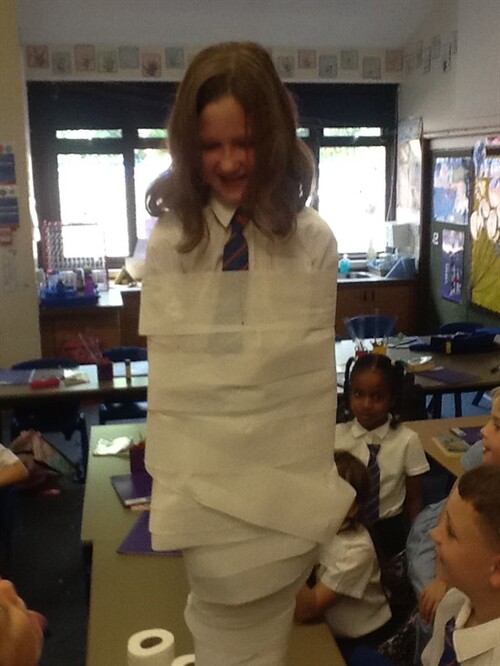
We were tasked with arranging a mixed up 100 square jigsaw.
We started with a discussion of how a hundred square was arranged, and what patterns we could find when looking at one.
There were some surprises when arranging them. Some children remarked on what could change when a hundred square starts at 0 compared to when it starts with 1.
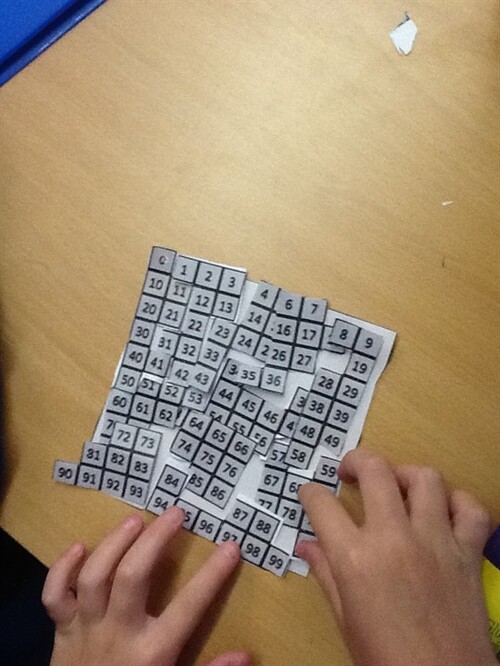
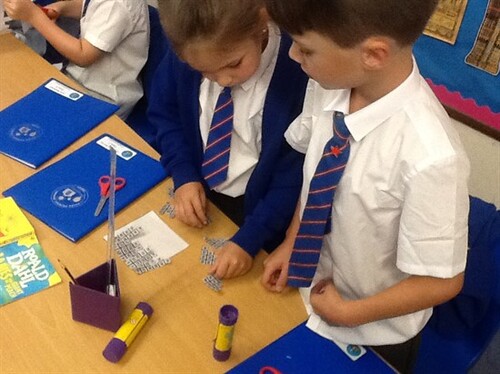
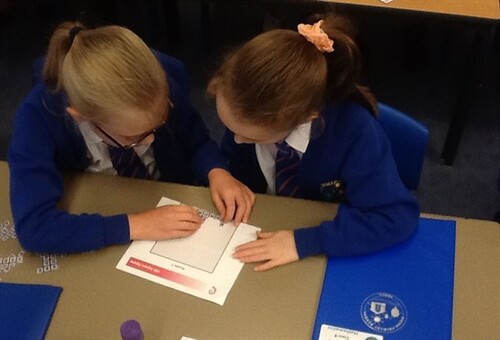
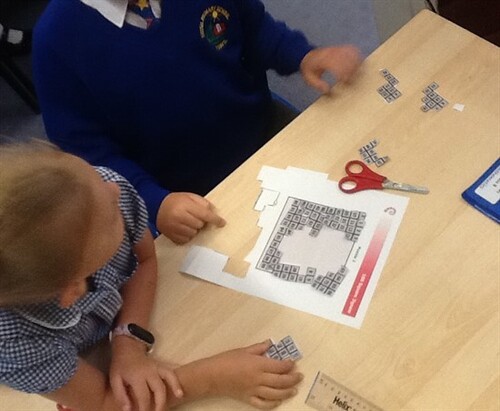
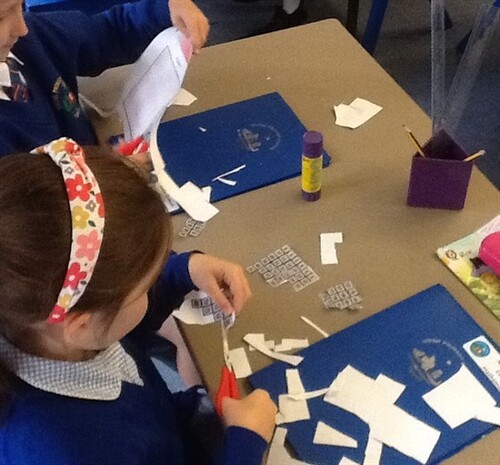
We looked at extending our understanding of 100 squares and the number system by completing a task where we had to arrange a coded 100 square jigsaw into its proper shape.
First, we noticed that some symbols repeated in certain ways. We talked about whether there were any similarities between these patterns and the patterns we would see in a more familiar 100 square.
Next, we noticed that some numbers had only a single symbol, whilst others had 3 symbols. We discussed what numbers these could represent, based on our understanding of a normal 100 square.
Finally, we used these observations to begin piecing together the first and last parts of the 100 square. This helped us to infer what numbers individual symbols represented. We were very proud of completing this task!
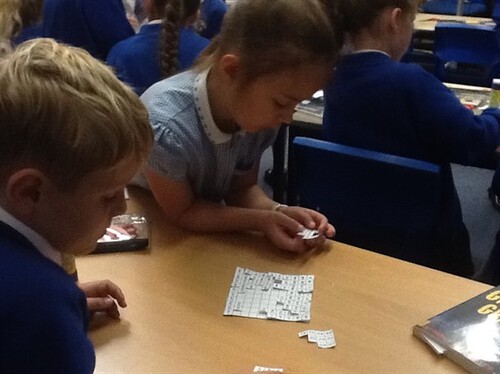
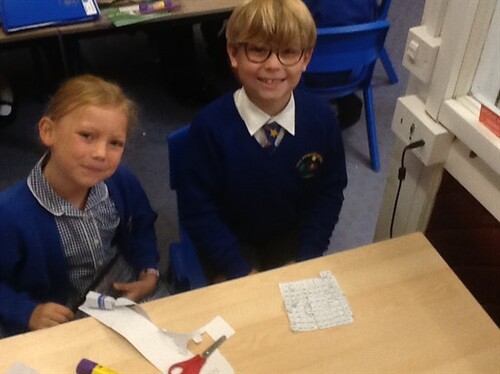
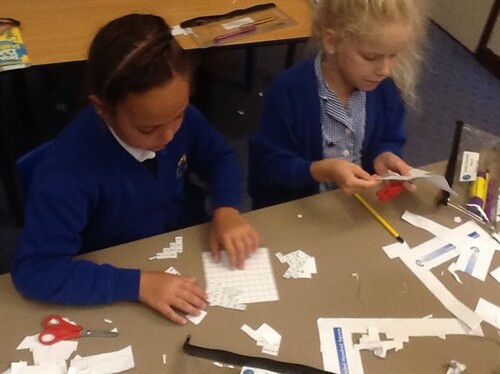
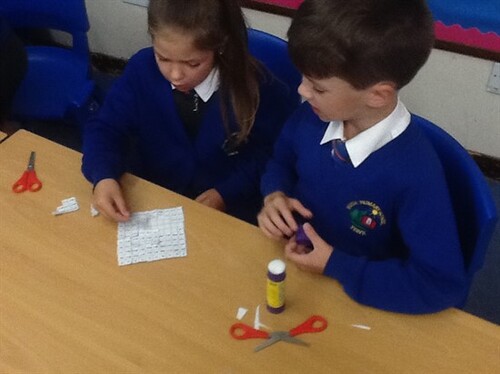
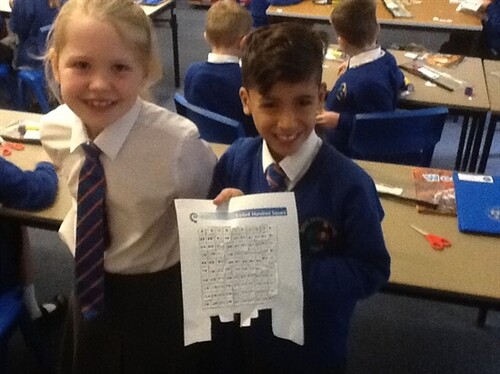
We used part of our first afternoon back at school to share our wonderful holiday homeword on our History topic – the Anicent Egyptians!
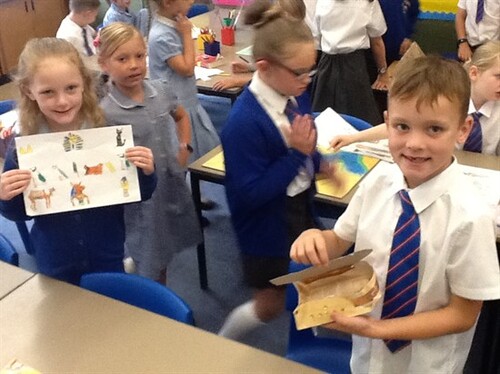
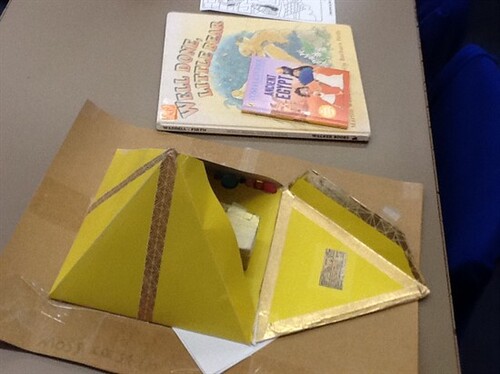
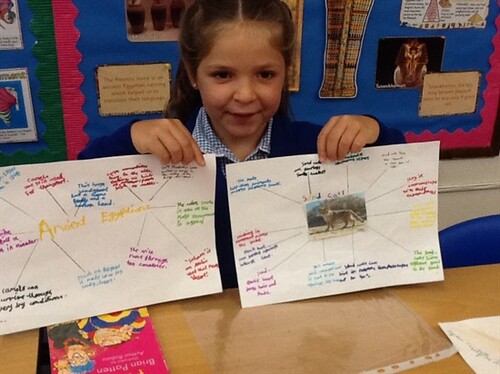
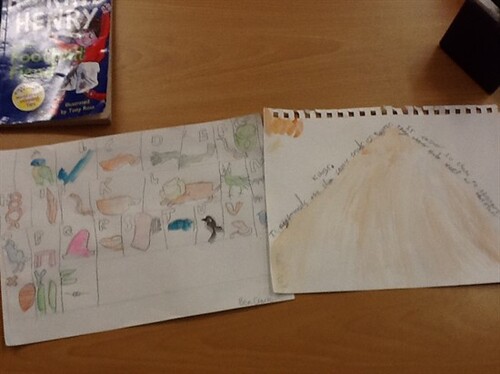
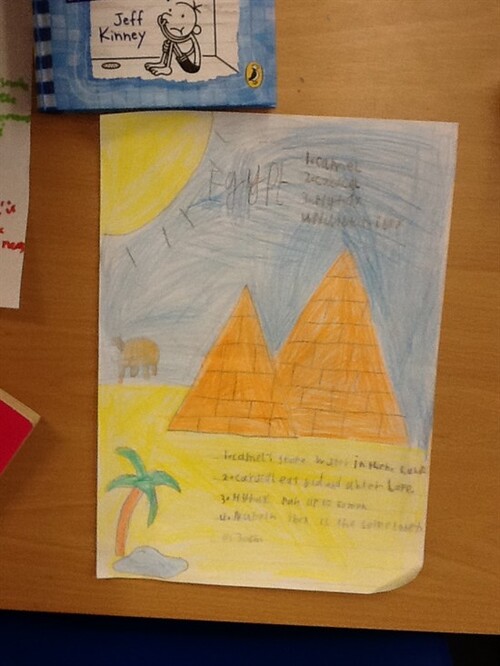
Following a discussion of what ‘value’ means, we played a place value game.
We took it in turns to roll a 6 or 9 sided dice, and place the resultant roll in a place value grid and, later, straight into a blank number.
The aim was to make a higher number than our partner. We discussed where the best place to put these numbers was.
We then introduced a rule where we could ‘gift’ one of our rolls to our opponent. Which were the best numbers to gift? When was the best time in the game to give these numbers.
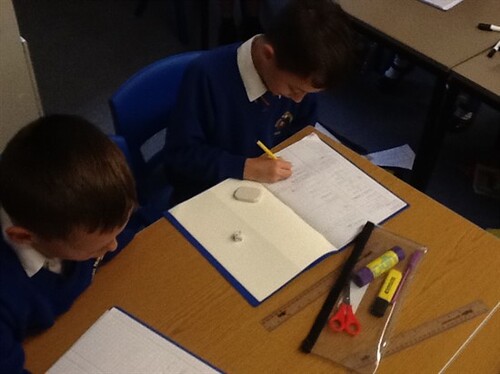
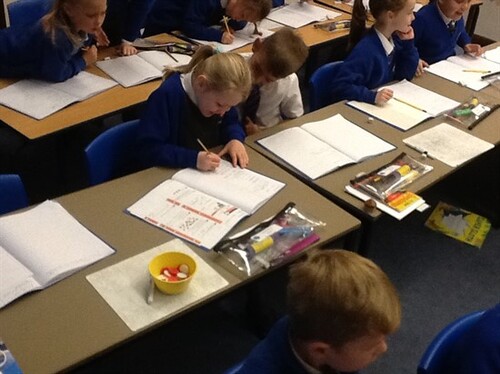
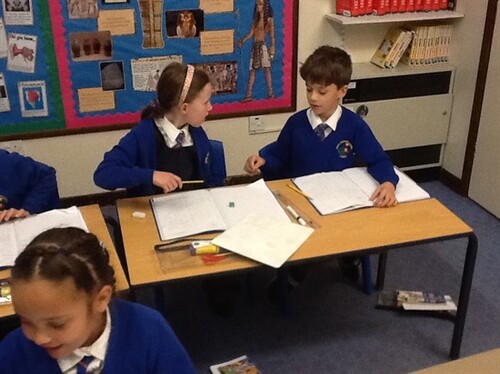
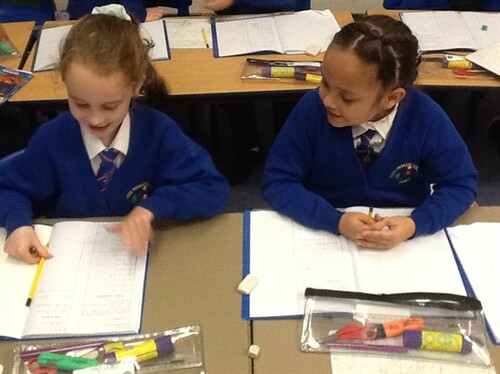
We looked at creating a variety of numbers using place value grids and counters, as well as Base 10.
We looked at what happened when we added and removed counters from different columns.
We also discussed what happened when we had more than 9 counters in a column? How could we express this number? Was that possible? This led on to a discussion about exchanging, which we practiced using our counters and grids.
We have used these resources to support us in our addition lessons, too.
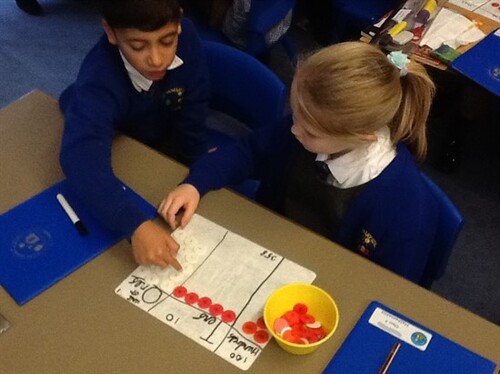
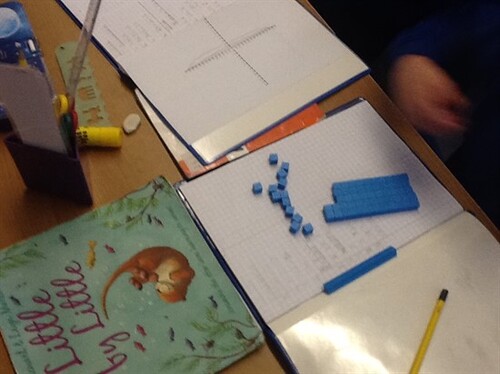
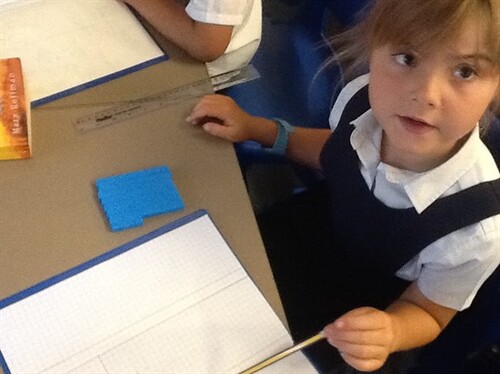

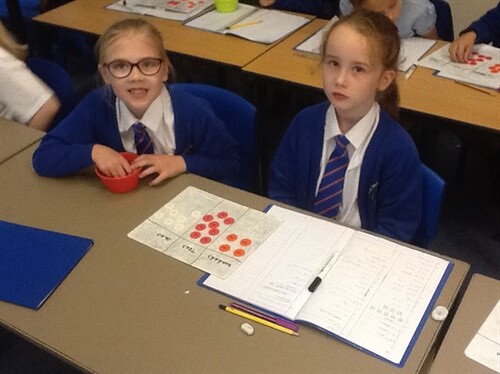
As part of our DT project on seasonal and healthy food, we made fruit skewers.
We used this as an opportunity to practice good kitchen hygiene, as well as to practice safe cutting techniques on soft fruit.
We also discussed where each ingredient is from, and revised food miles whilst we did so.
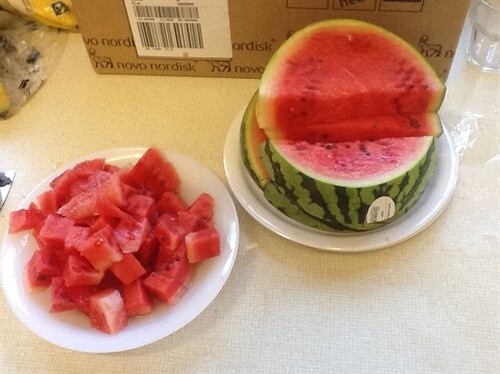
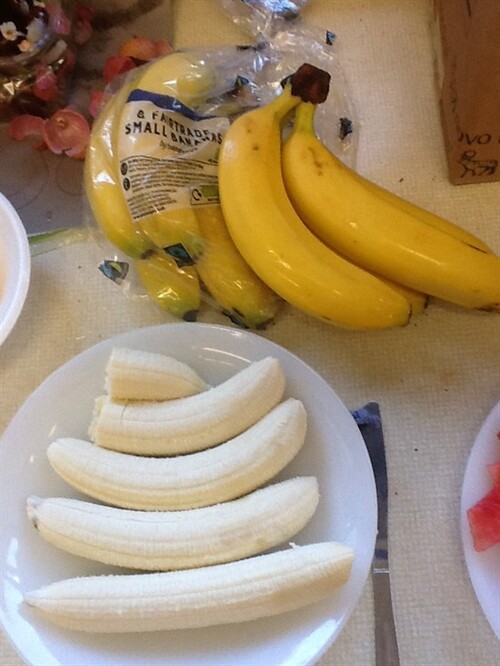
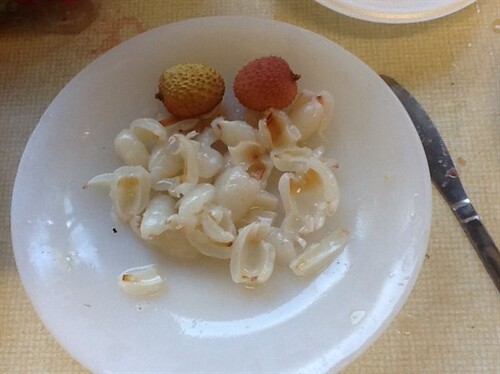
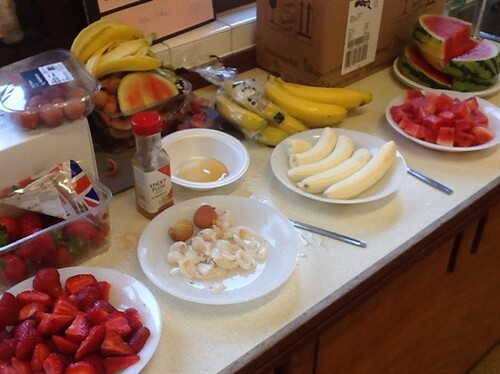
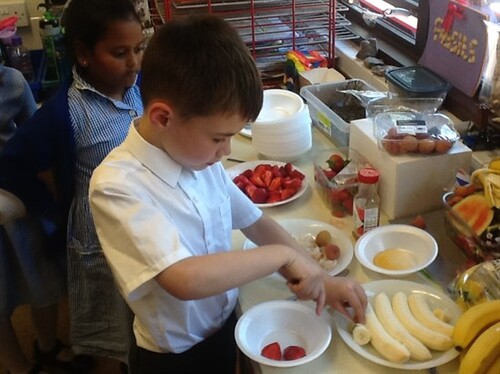
We planned and designed our own vegetable tart in DT.
We looked at the concept of a ‘rainbow plate’, and each group chose from locally sourced ingredients to create their vegetable tart. These were chosen based on several criteria, including contribution to a 'rainbow ’plate' and taste.
We then prepared and cooked our tarts, and ate them together.
The next day, we evaluated our project, and decided what went well, and what we would change about our tarts in the future.
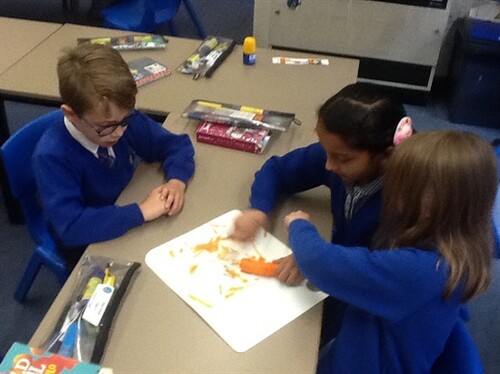

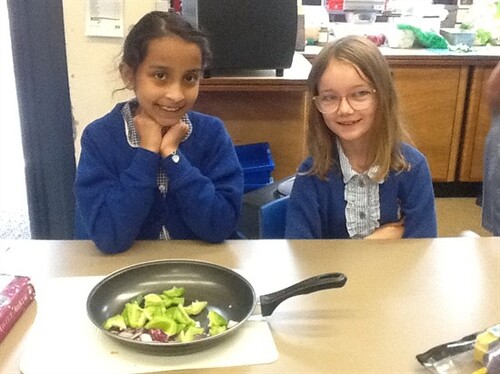
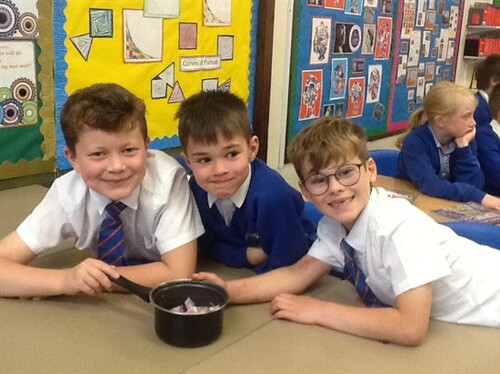
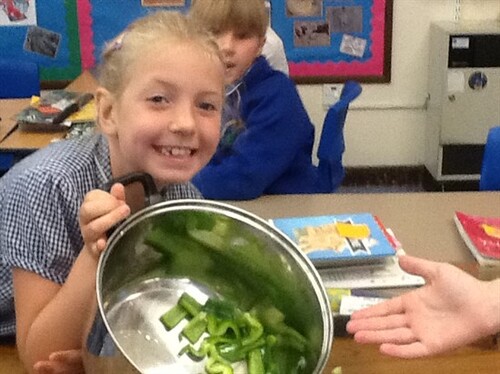
We had a visitor from the South West Heritage Trust to lead some activities about the Ancient Egyptians. This was a fantastic way to revisit the Ancient Egyptians, as well as an opportunity to compare them to our current topic, the Ancient Greeks.
We took part in an archaeological dig, and categorised the objects we found based on the social status and wealth of the person who might have used it. We also baked Egyptian bread, comparing it to bread today, and used colours to symbolize different meanings whilst painting scarab beetles.
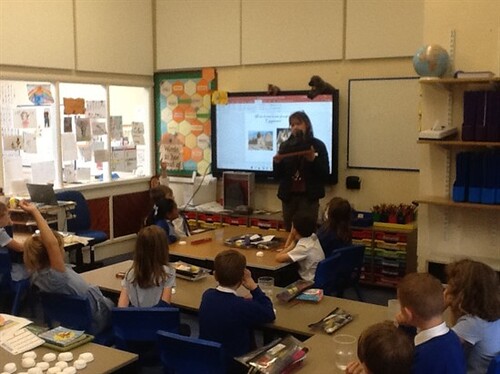
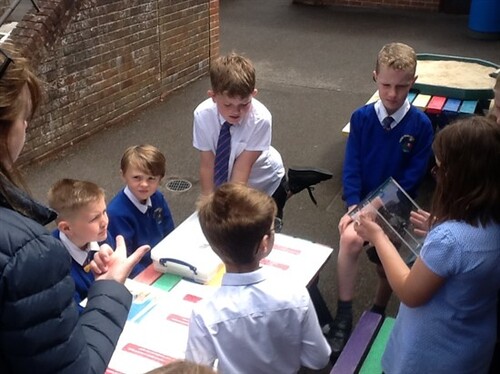
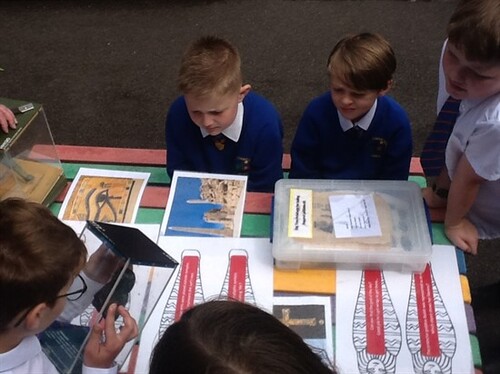
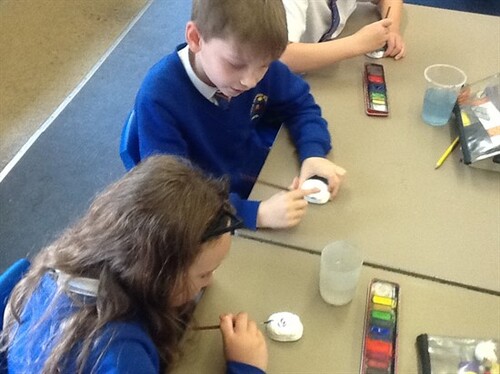
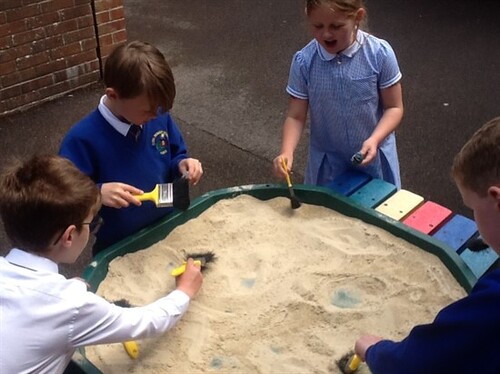
We looked at a variety of primary sources on the National Museum website to find out about daily life in Ancient Greece.
We split into groups, and each group investigated a different part of life, looking carefully at the details found on artefacts such as pots, jars and carvings.
Each group then presented their findings to the rest of the class.
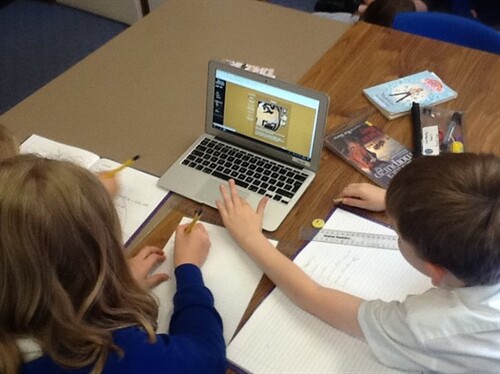
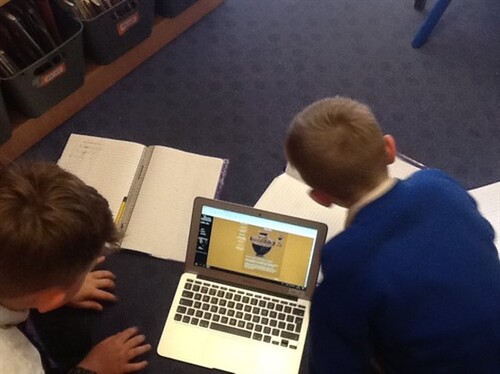
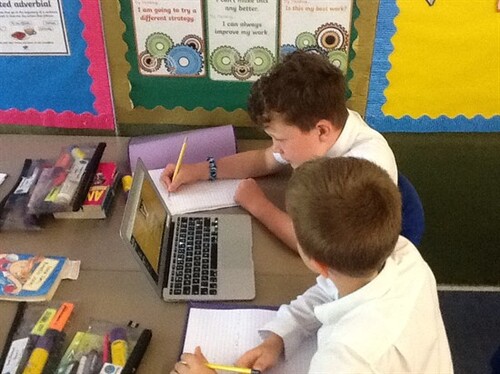
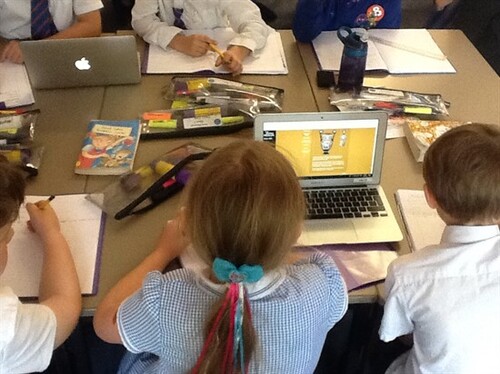
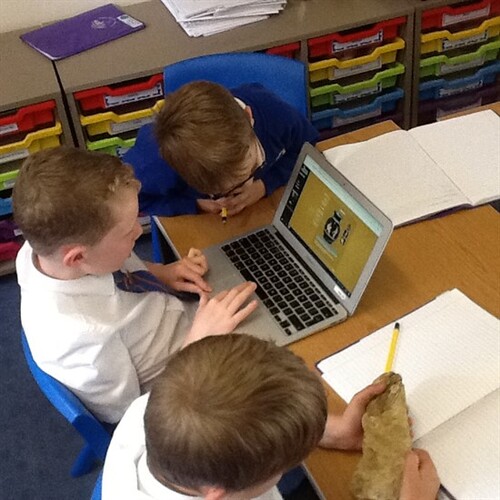
To follow our lesson on democracy in Ancient Greece, we arranged our class into different sections of the Ancient Greek lawmaking apparatus.
We then conducted speeches and held votes on a variety of new laws, including whether slaves should receive more payment for their services, and whether woman should be allowed to vote in the Athenian council.
We also conducted a criminal trial, deciding on the fate of a slave who had been accused of murdering his master.
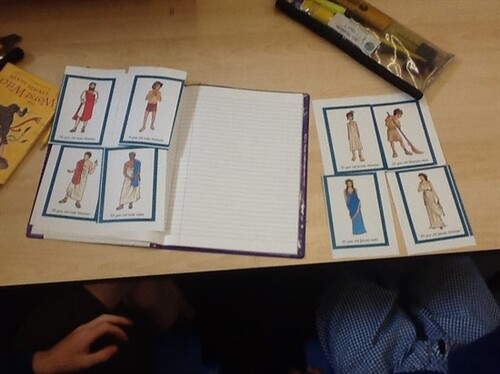
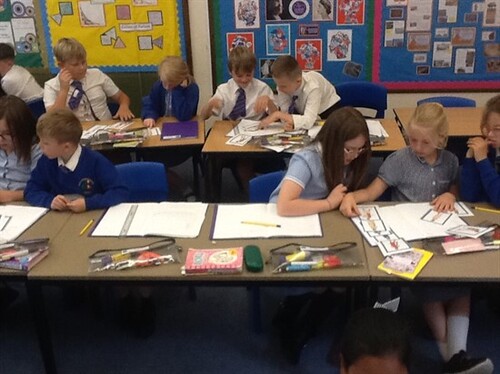
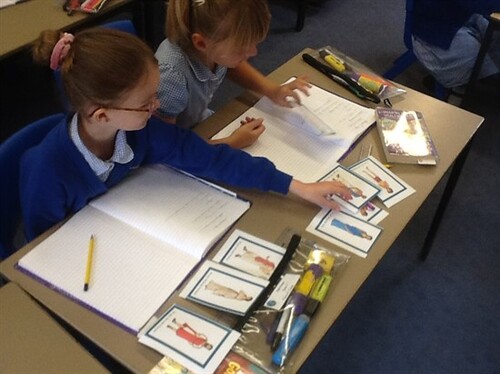
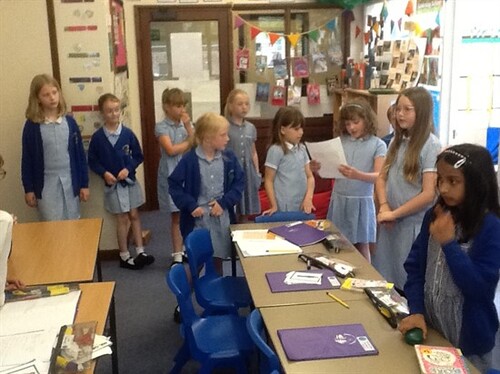
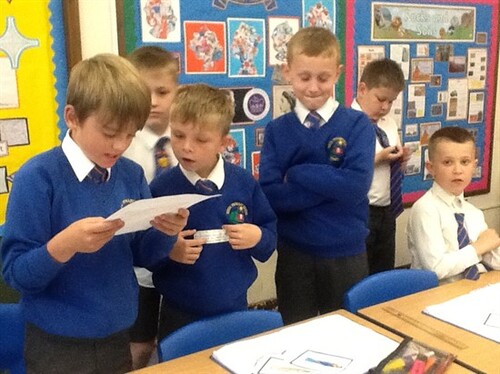
We have been creating 3D shapes using marshmallows and spaghetti.
We used this to help us count the number of vertices and edges on a variety of different shapes.
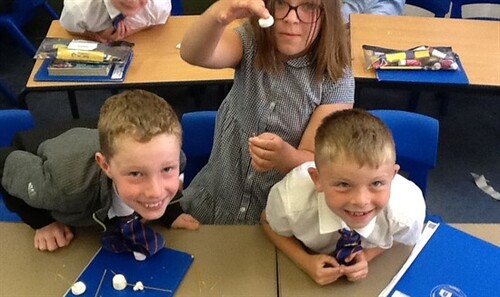
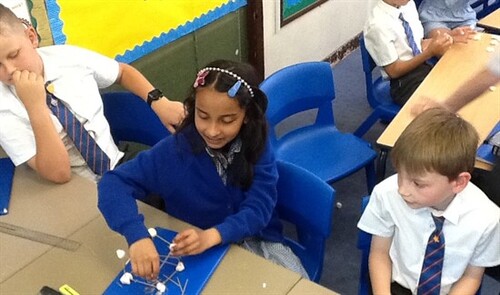
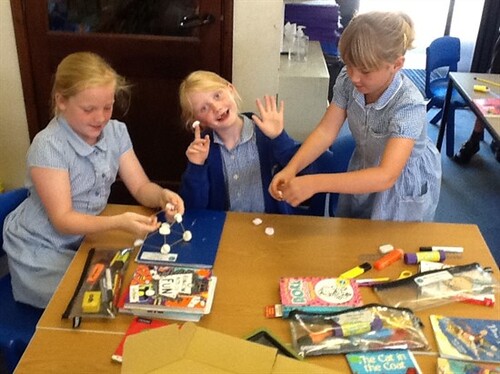
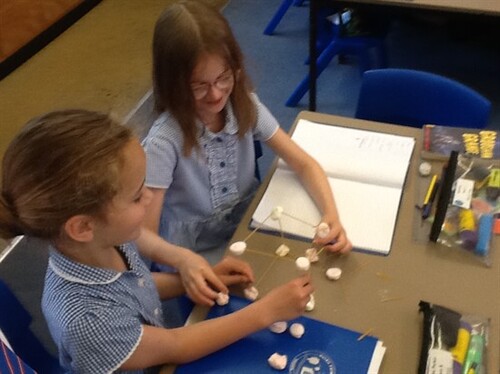
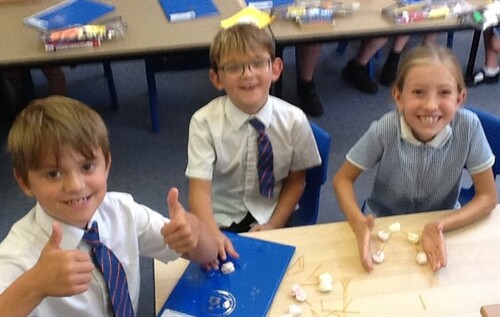
As part of our unit on persuasive writing, we are creating a leaflet advertising our school to prospective parents.
We spent the morning exploring the school to remind ourselves of all the features that we would like parents to know about.
It was great fun remembering all the things that helped and entertained us in Reception and Year 1!
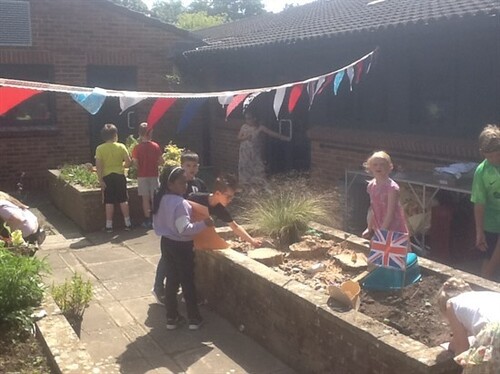
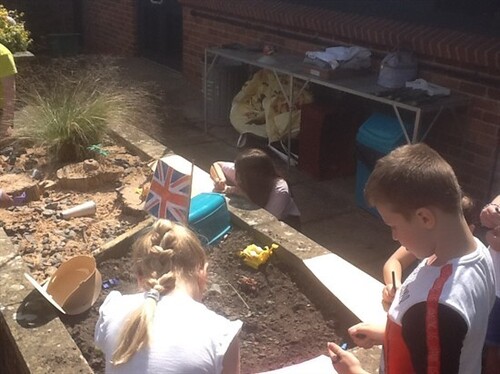
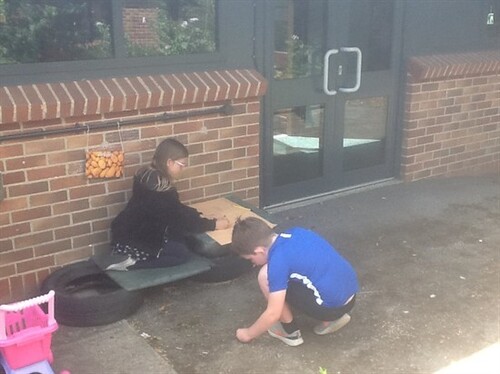
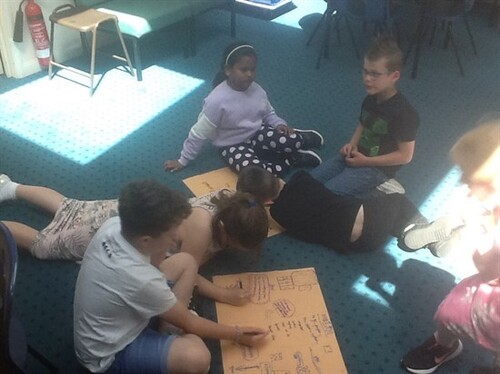
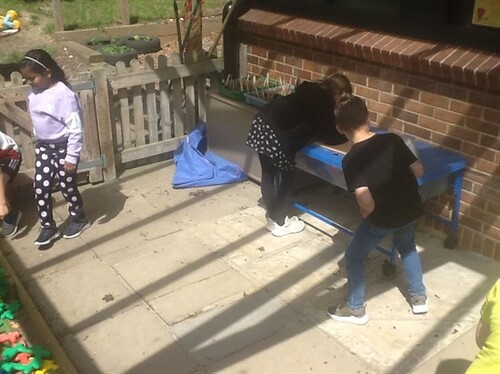
As part of our unit on the Ancient Greeks, we learned about archaeologists, and how they discover and analyse historical sources.
We then conducted our own archaeology on fragments of an Ancient Greek artifact.
We looked at the fragments one at a time, and tried to work out what the artifact was, and what it showed.
We then pieced together the whole artefact, and looked at analysing the source by asking questions such as ‘What type of artifact is it?’ and 'What sort of images or patterns does it show?'
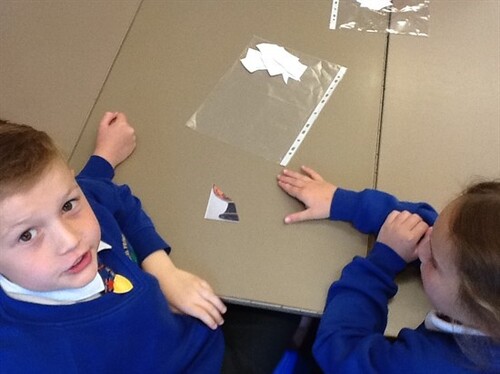
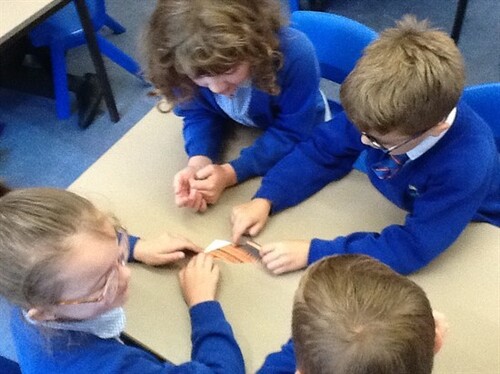
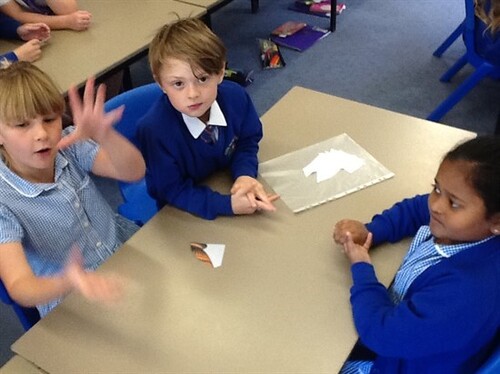
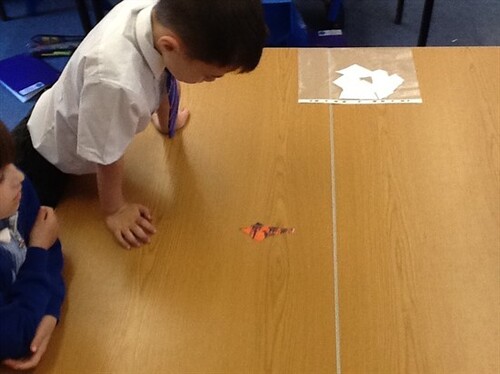
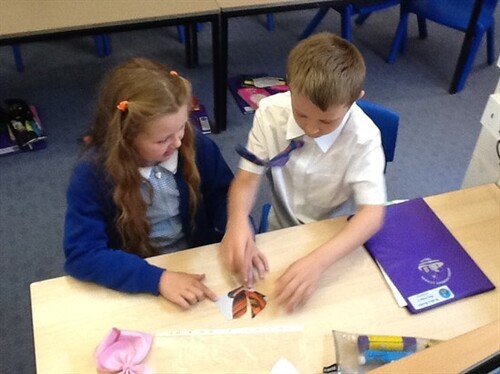
We completed a variety of tasks to celebrate Children’s Mental Health Week.
These included mindfulness, creating a ‘self-help’ booklet, practicing breathing and meditation techniques, visualizing our emotions and creating characters to represent how we are feeling when these emotions make themselves felt.
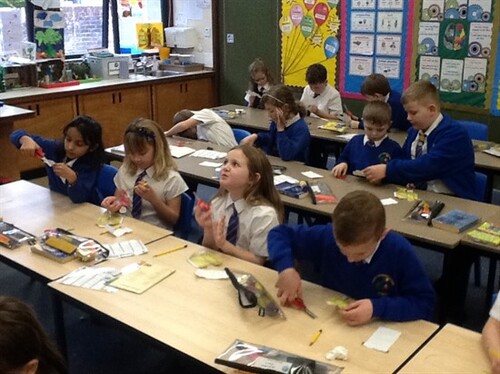
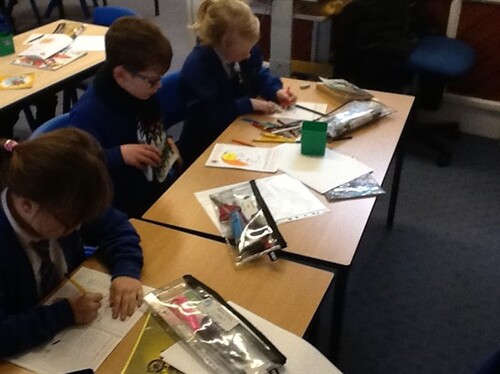
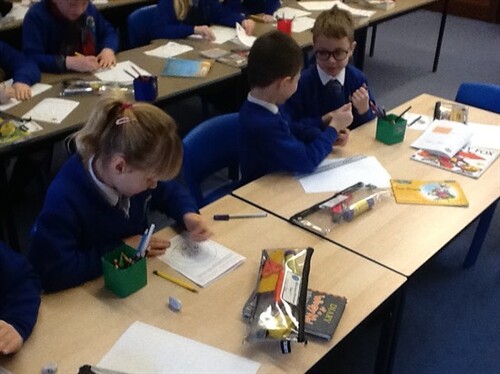
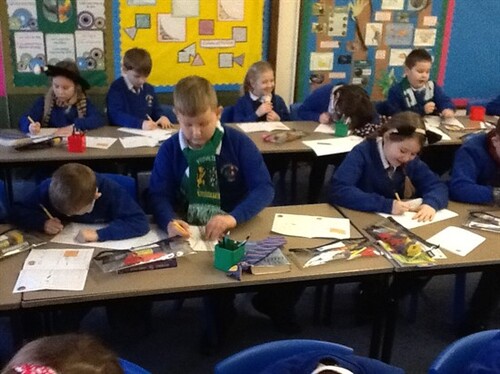
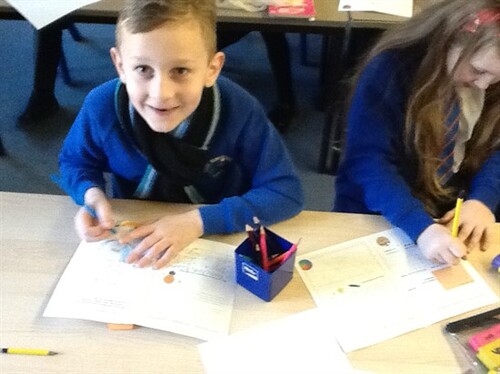
During computing, we looked at how data loggers worked, and practiced using them to measure light and temperature.
We thought about which areas of the school have different conditions for growing plants in. We then measured the light and temperature of these places using the data loggers, and put this data in a table. We will grow runner beans in these places, and observe their growth to see if there is a relationship between that and the data we measured.
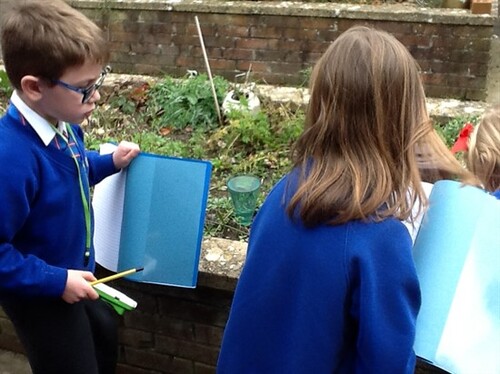
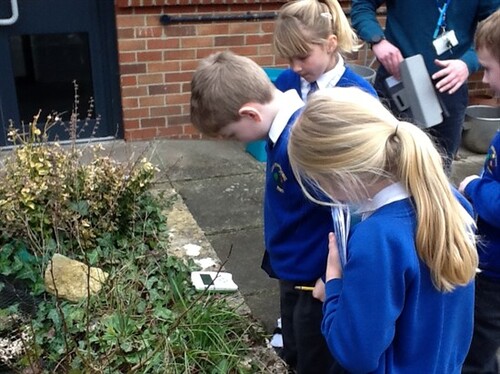
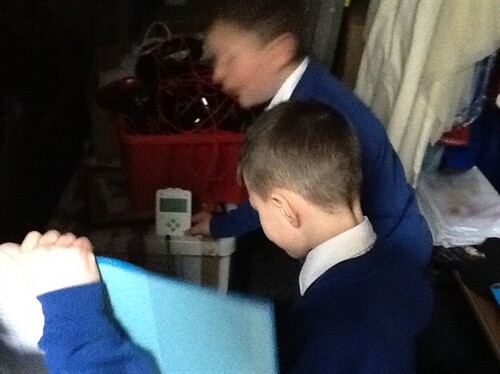
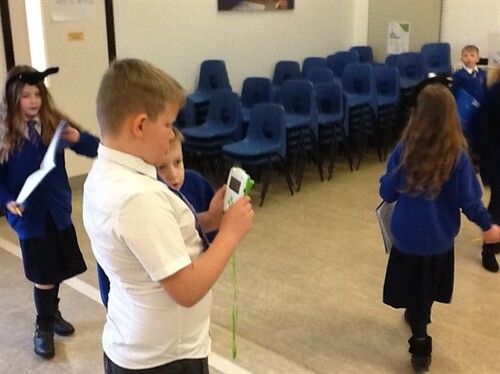
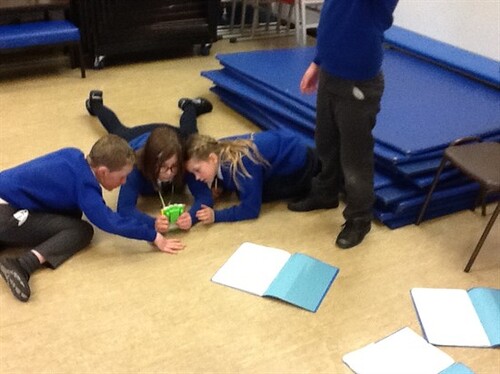
As part of our Geography topic on rainforests, we have placed two rain gauges on the school grounds.
We take it in turns to measure the daily rainfall, looking at the gauges at 13:30 each day. We will compare this data to the rainfall in an area of the amazon over the same period, and plot this on a graph using 2Graph on Purple Mash, which has been part of our computing project.
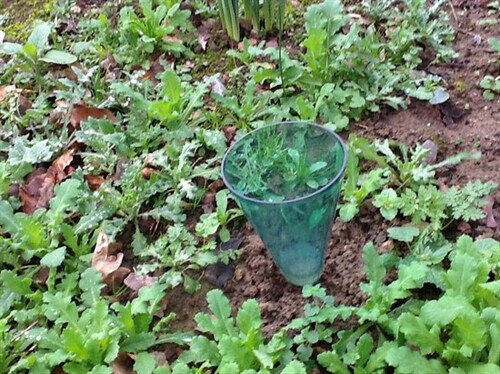
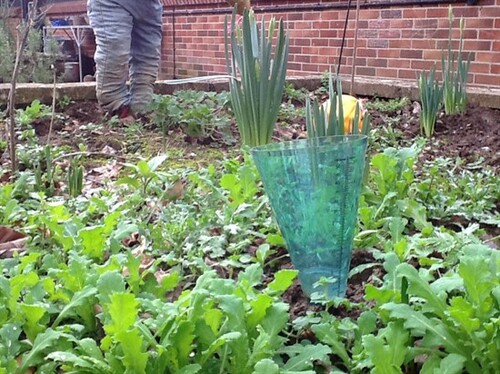
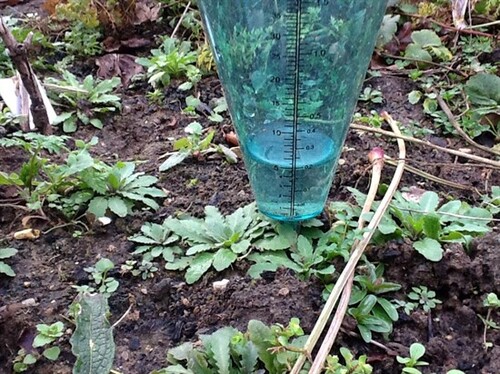
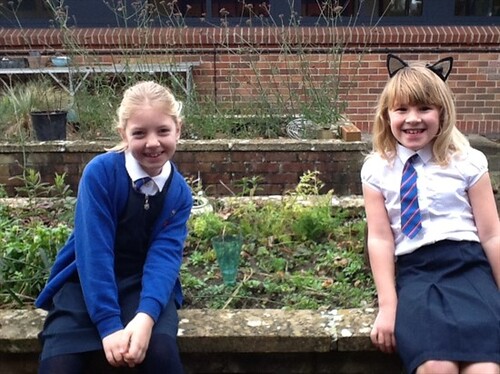
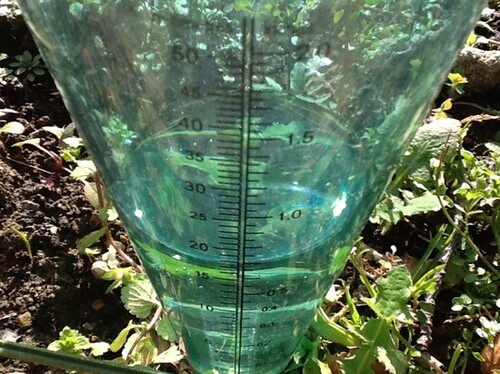
We have loved performing a variety of poems during our English topic on performance poetry!
We have practiced reading these in pairs, putting expression in our voices, using gestures, and practicing making sure we are loud, clear and easily heard. Some of our performances have been incredibly funny, as well as excellent!
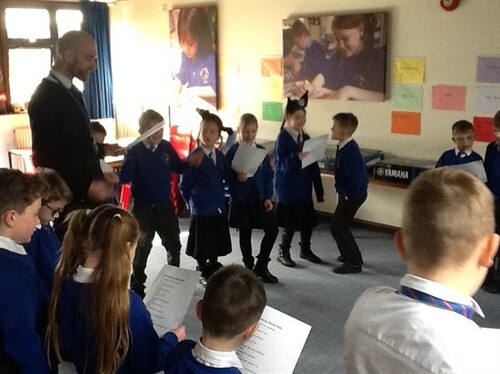
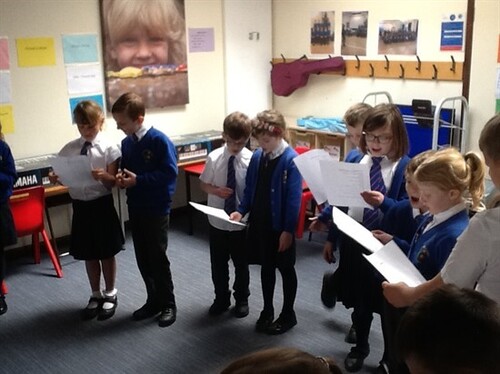
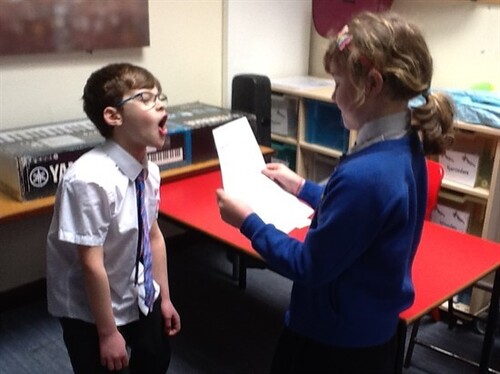
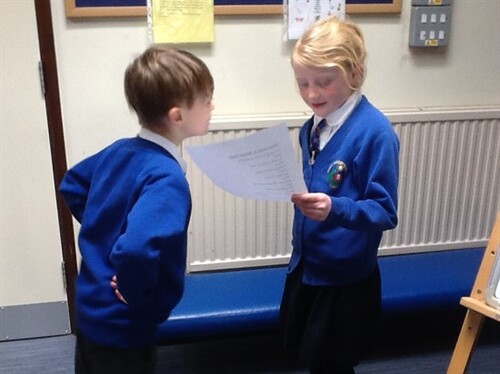
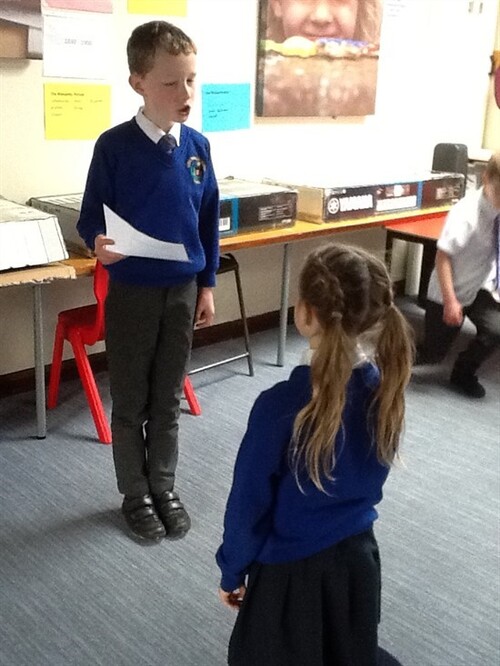
We have looked at collecting data in Maths, and as part of this collected data on each other’s favourite hobbies, food, animals and sports clubs.
We then plotted this data in bar graphs to show which things people liked best.
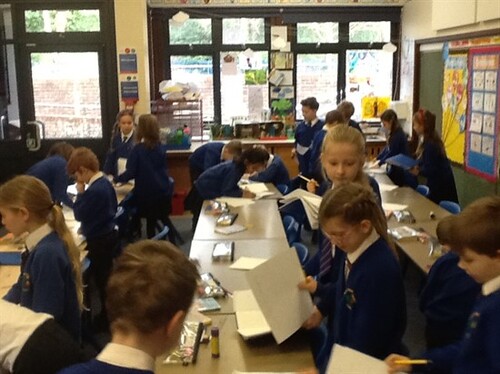
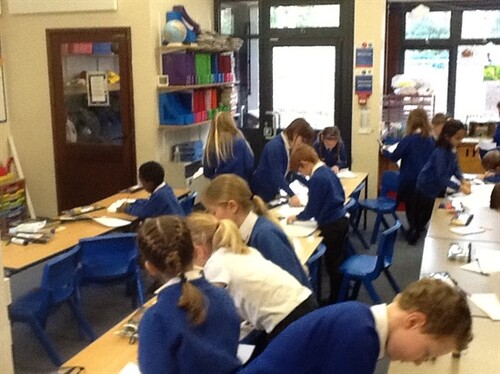
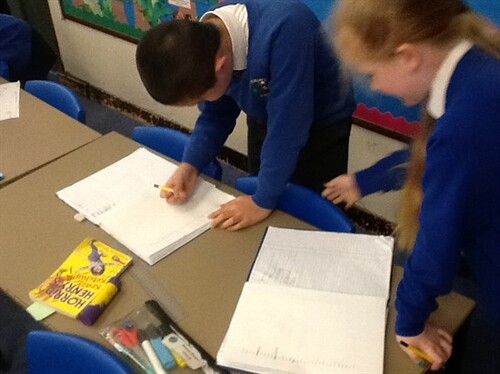
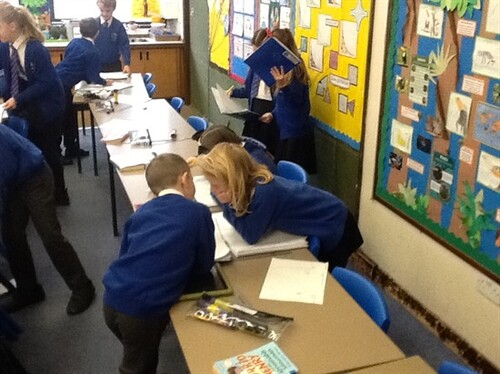
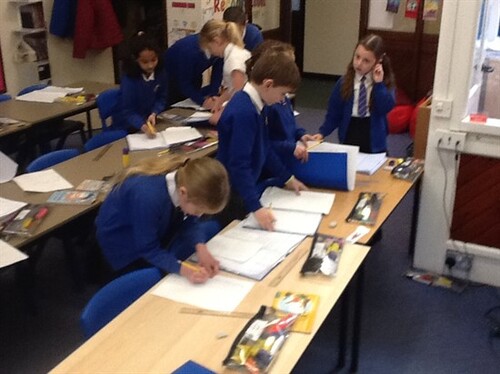
We used trundle wheels and meter sticks to measure the lengths of various objects in the playground.
We then plotted this on rough maps that we drew of that area of the school. We used Digimaps to help us create these maps.
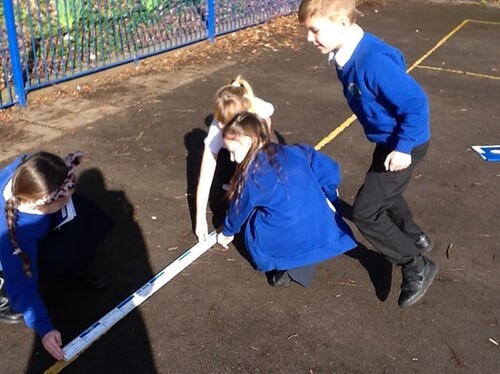
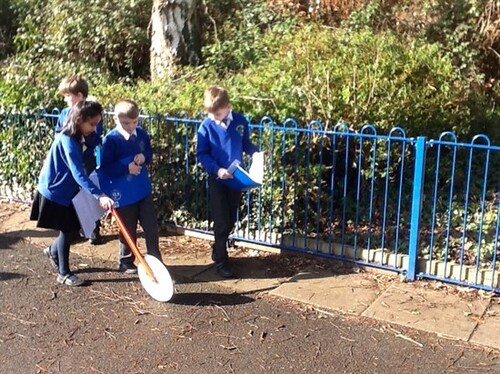
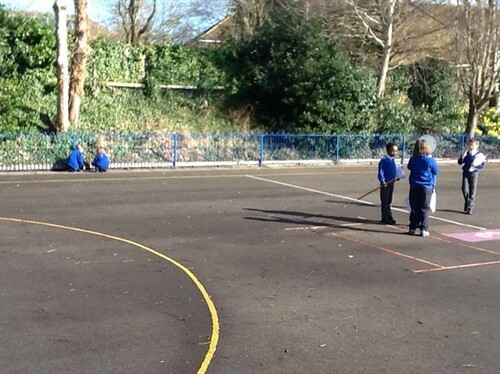
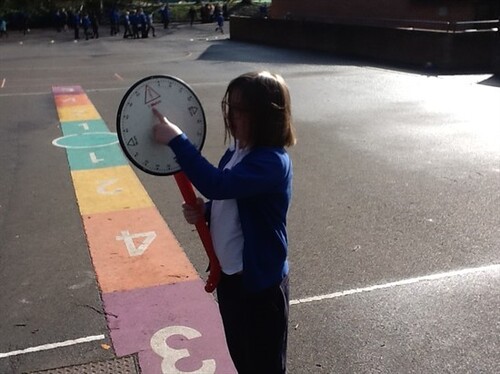
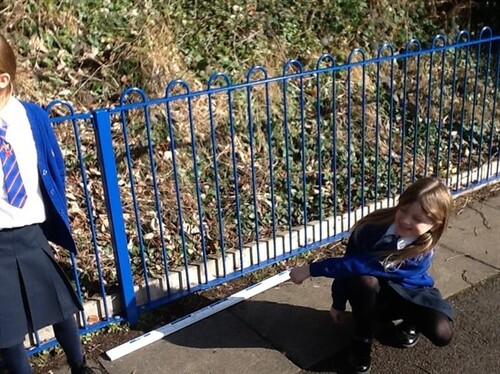
As part of our Science topic on living things, we made some sketches of the wildlife and plants that we found outside. This included making detailed observations of features of leaves and plants, and being careful to make our drawings show these features.
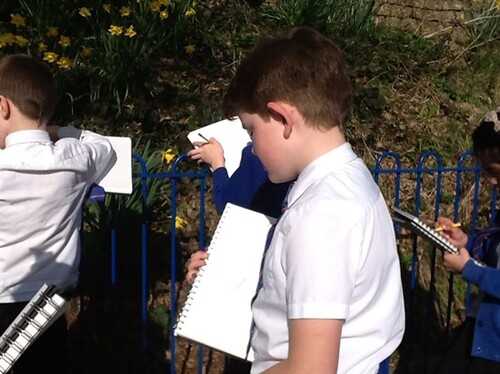
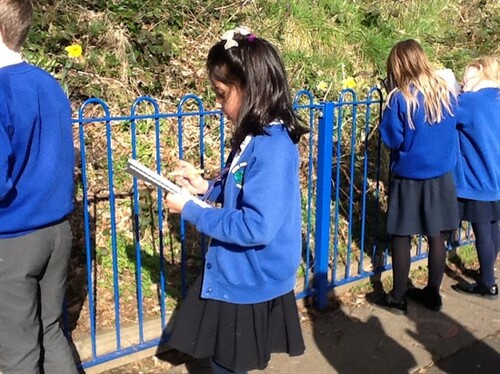
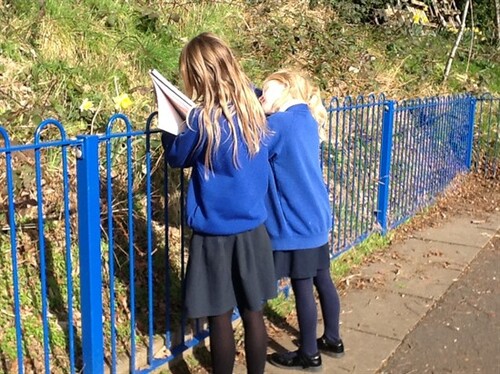
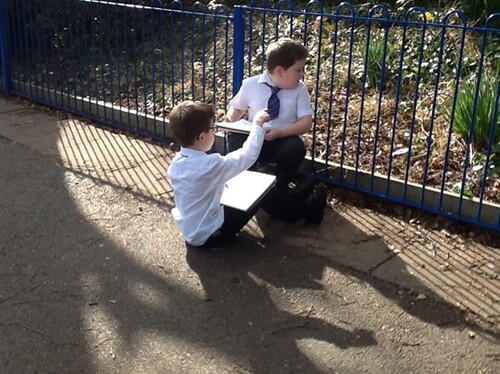
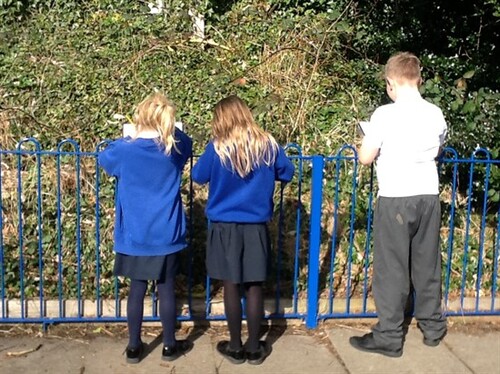
We did a PSHE lesson on different things that we can do, eat or drink in life, including different food types, medicines and activities.
We then plotted these on a Healthy/Not Healthy Venn diagram, and discussed where we put them. There were lots of different ideas, and we were not afraid to argue our points! We agreed that many activities can be healthy, but can also be unhealthy if we do them too often.
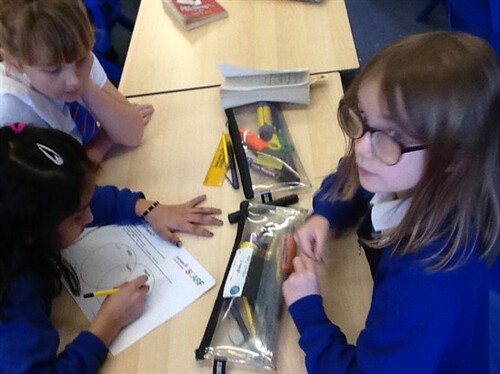
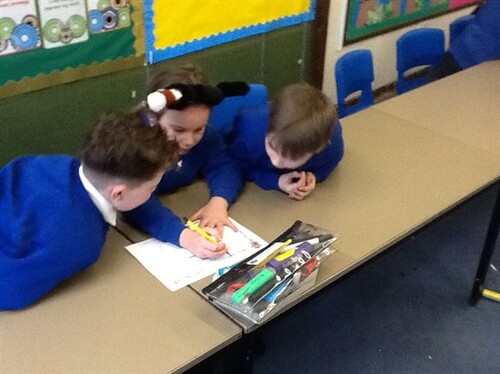
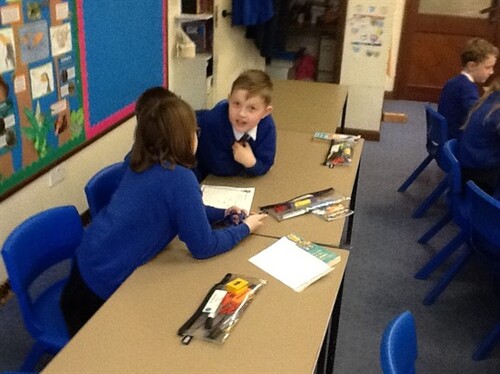
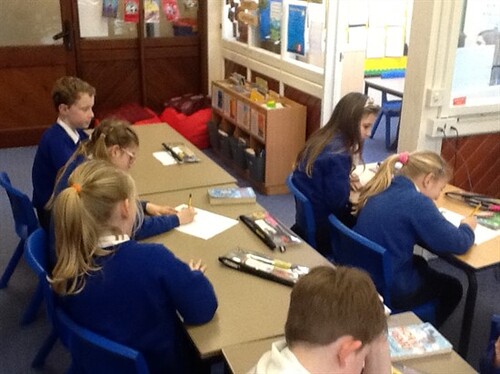
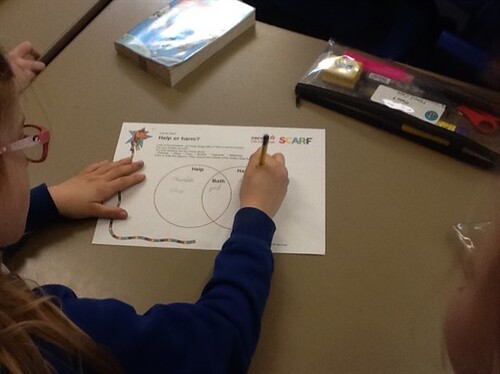
As part of our English topic on balanced arguments, we collected lots of ideas in groups about whether we think earing school uniform is a good idea.
We made sure to think of as many points as we could for both sides of the argument, and presented these to the class. We then used these to help us write our first balanced argument.
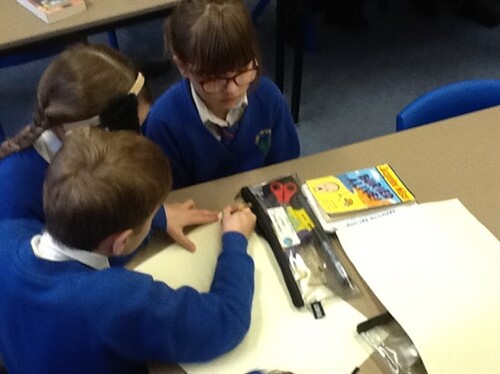
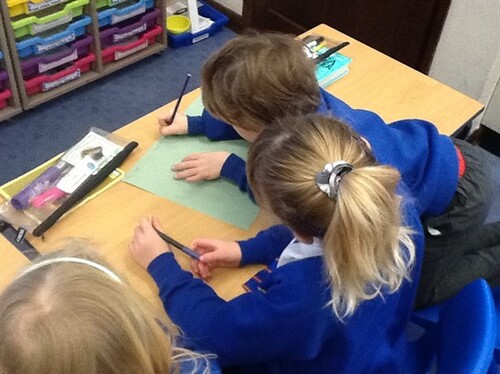

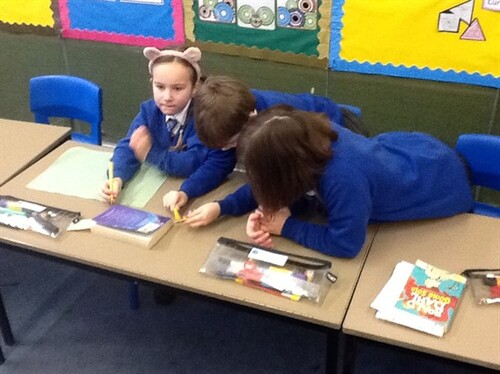
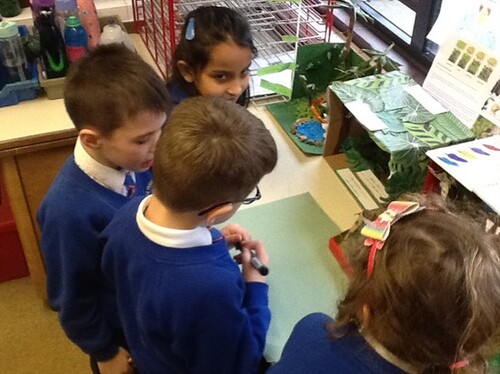
We explored Digimaps, and found Yeovil and our school, whilst exploring the different layers that we can use on it.
We then learned how to annotate maps, before taking pictures of our favourite trees and plants around the school grounds – we had discussed this earlier in the week, and had spent some time in the grounds observing plants and wildlife.
We then plotted the location of the plants on Digimaps, using the pictures to annotate areal imagery of our school grounds.
As part of our unit on money, we undertook a problem-solving investigation.
We attempted to answer the question: which of the amounts, from 1p-99p, can I make with 5 coins.
We used coins to help us, and had to work systematically to determine whether each number was possible.
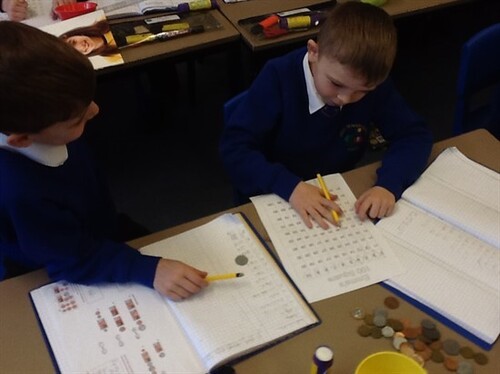
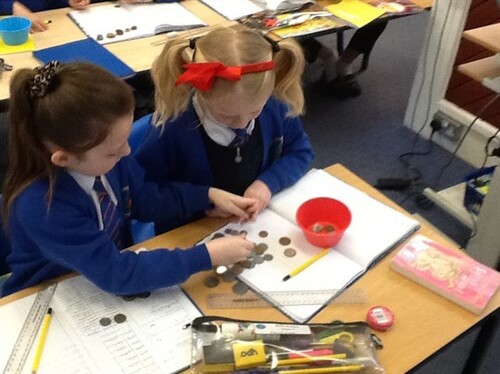
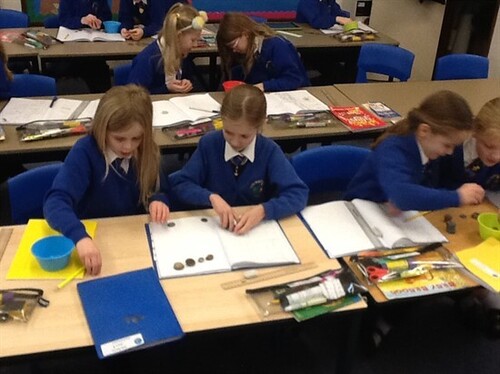
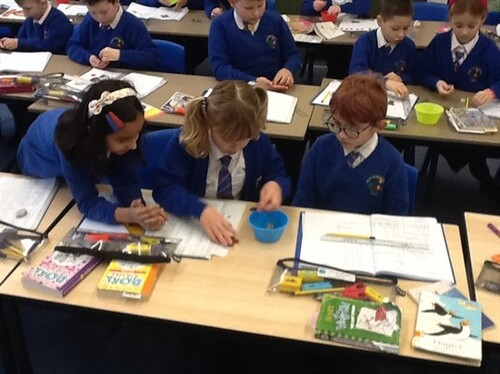
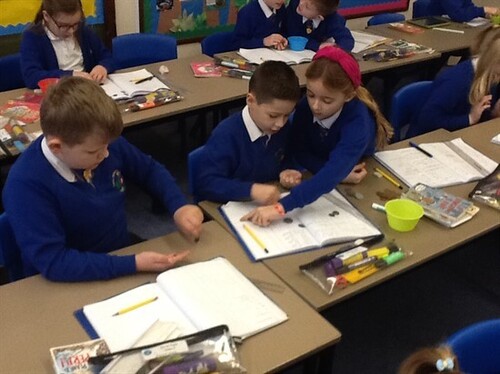
As part of our unit on division, we used straws and lollipop sticks to help us understand remainders.
We answered questions about how many shapes we could make using amounts of straws.
The amount of straws we had left over represented our remainders.
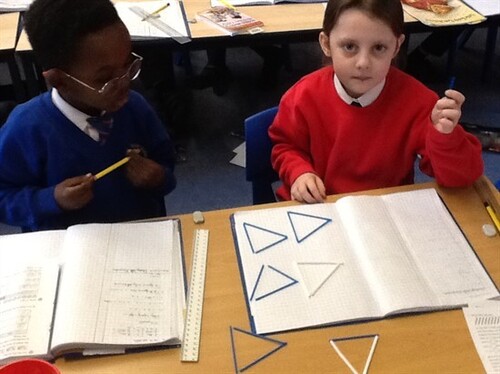
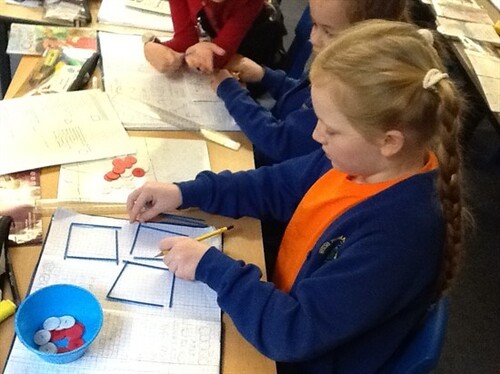
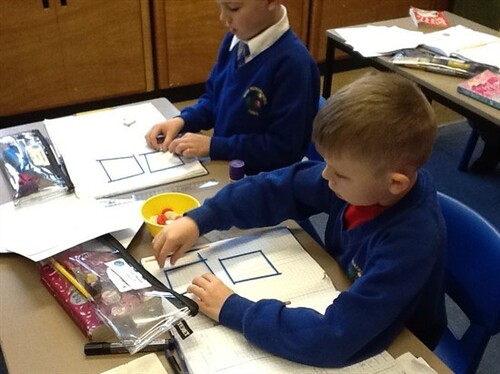
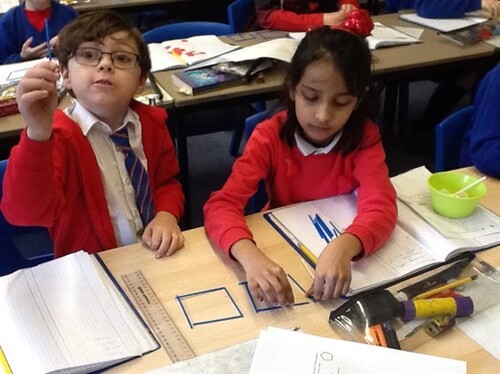
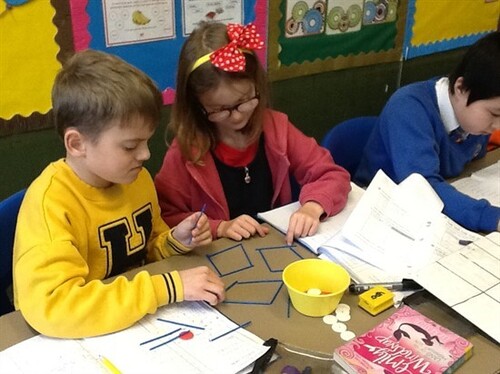
We did an investigation into number patterns!
We looked at applying a rule to a number under 100; add the digits of the number together, then multiply the result by 2.
We noticed that all of the numbers ended up falling into a pattern, which we called loops. We identified 3 loops.
We then used a 100 square to find out whether we could predict which ‘loop’ a given number would fall in to.
We split into groups, and chose a different set of numbers to investigate. We then got together as a class and shaded in the numbers on our 100 square different colours according to which ‘loop’ they fell in to.
We used this information to make our predictions, and spotted patterns. Most of us found that the ‘loops’ depended on being a multiple of 3 or a multiple of 11.
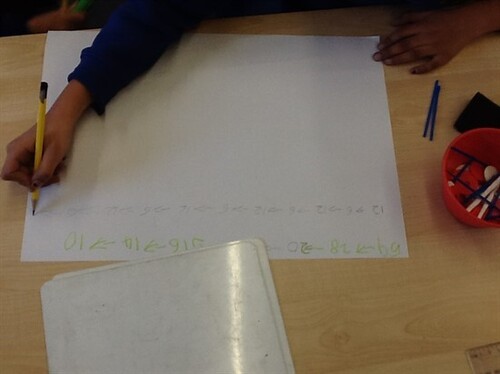
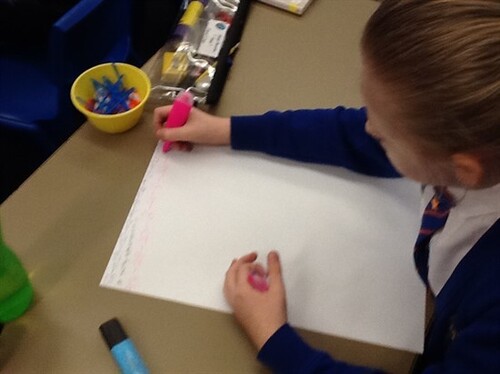
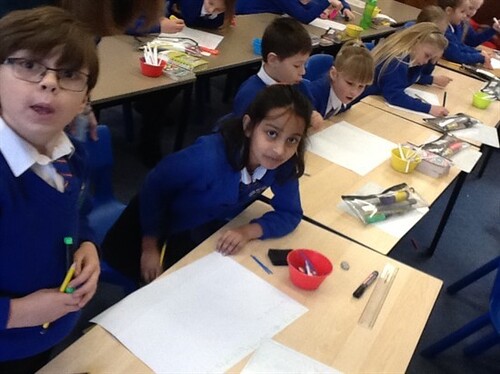
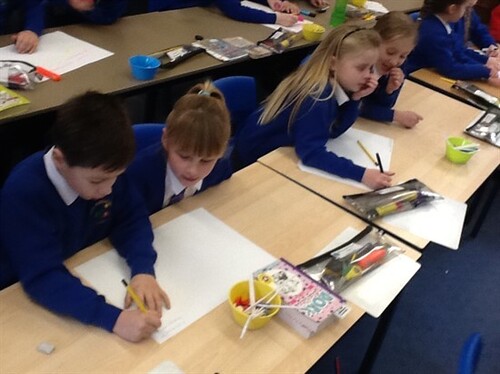
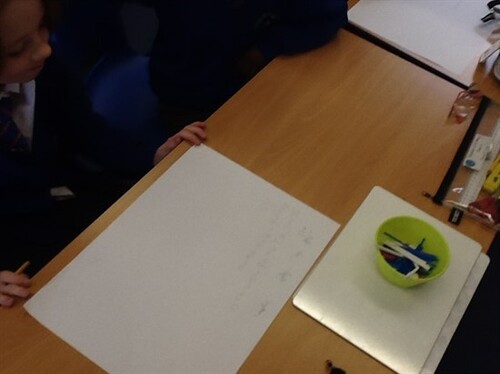
As part of our Geography project on the rainforest, we looked a deforestation and its causes.
We had a debate, with a group of children representing loggers, and another group representing indigenous people.
We took it in turns to make points, before we decided whether we fully agreed with either side, or whether it was too complex to
We then had a chance to try to think of solutions to the problem of deforestation.
As part of our Geography topic on the rainforests, we created some ‘pick ‘n’ mic’ homework.
The effort our class put in was incredible, and we enjoyed sharing and showing off our work!
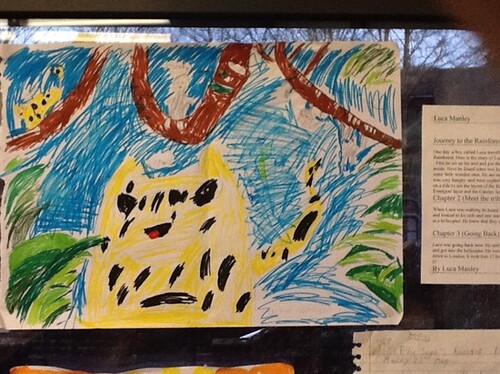
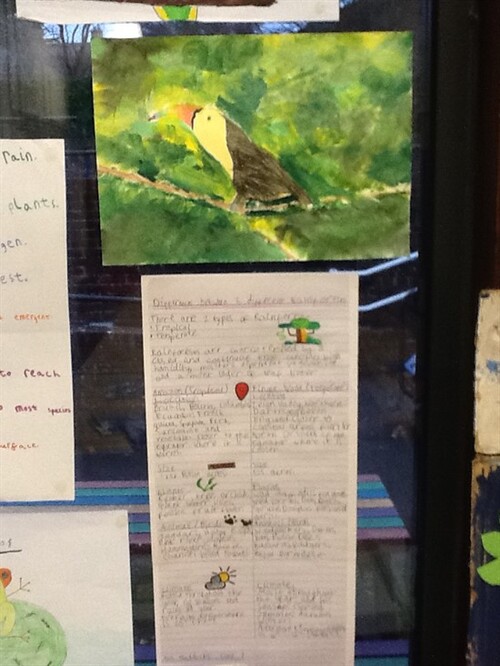
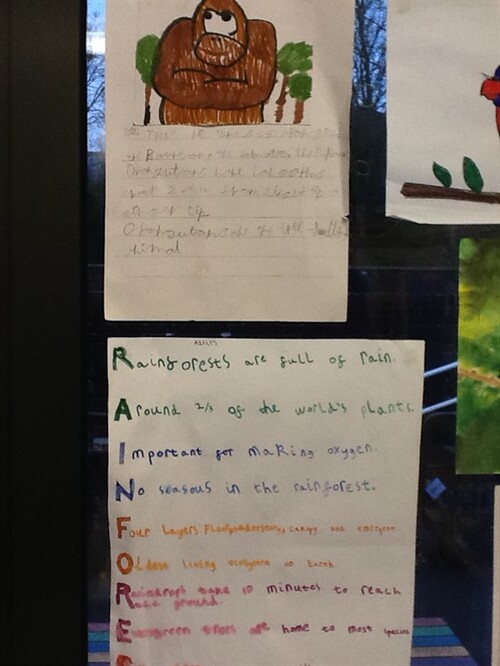
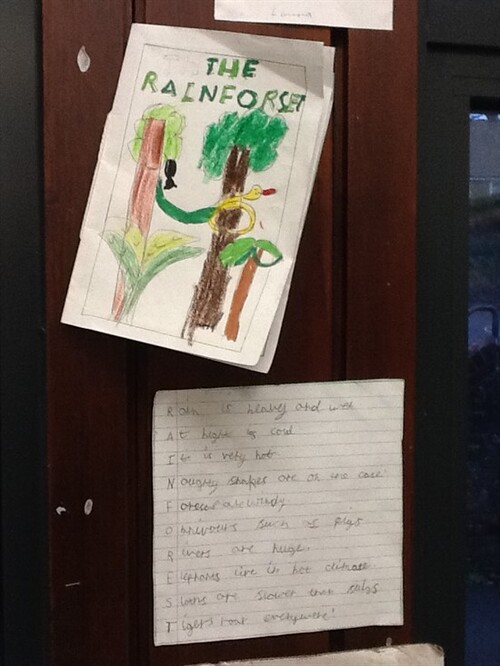
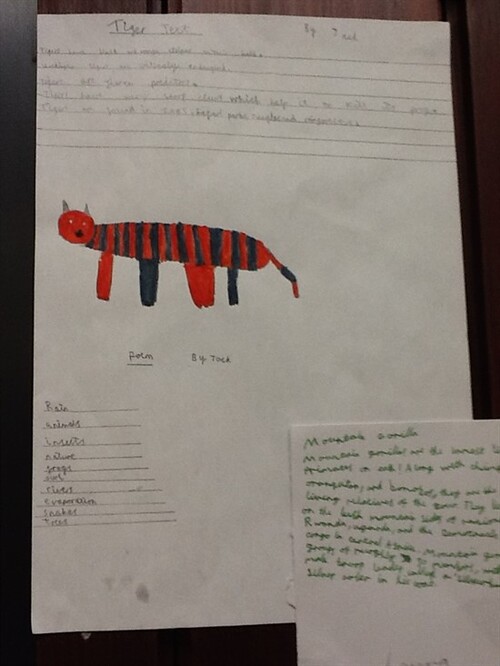
A group of us in Class 7 were so touched by our lesson on deforestation, that they created some anti-deforestation campaign posters to share with the class. They wanted to put them up in the class window, so children from other year-groups could see them when they walked past, so that’s exactly what we did!
We had a fantastic time at our Christmas Party – dancing, party games, dares and treats were all part of the fun!
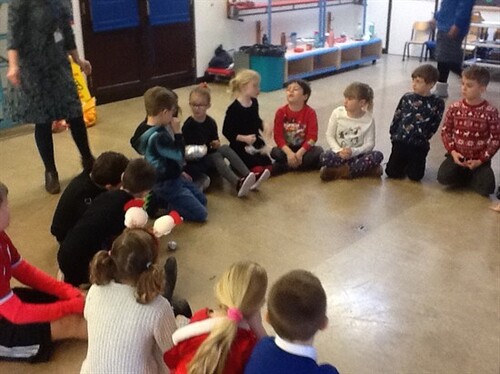
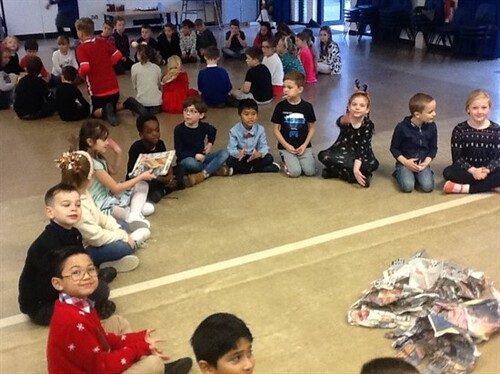
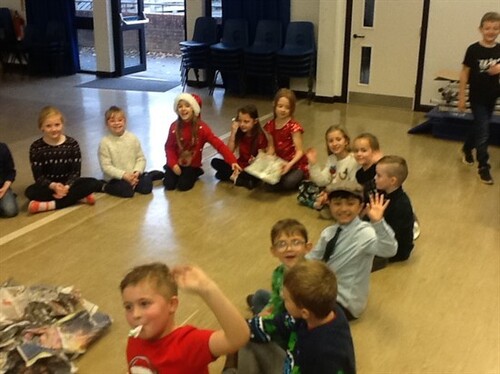
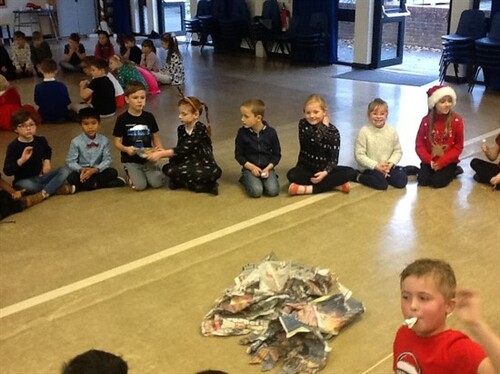
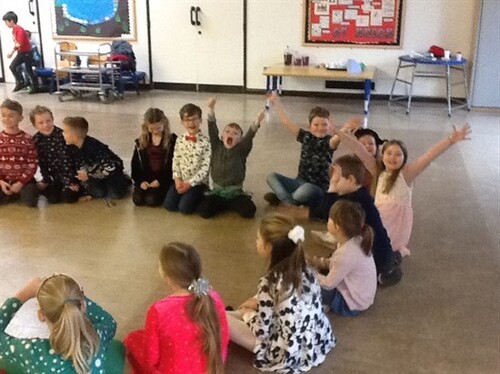
We were invited to visit Yeovil Methodist Church. We took part in a number of activities to explore the Christmas story and the importance of this to Christians.
We looked at the different items and parts of a church, and talked about what we had learned about these in our R.E. lessons.
We then sung some songs of praise.
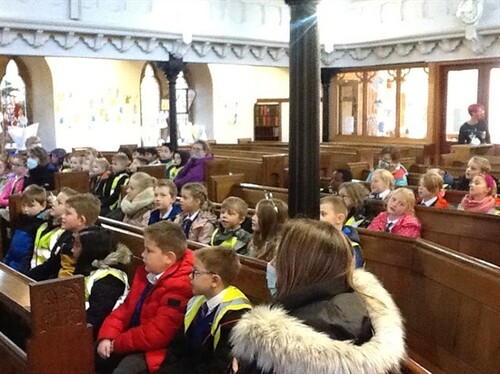
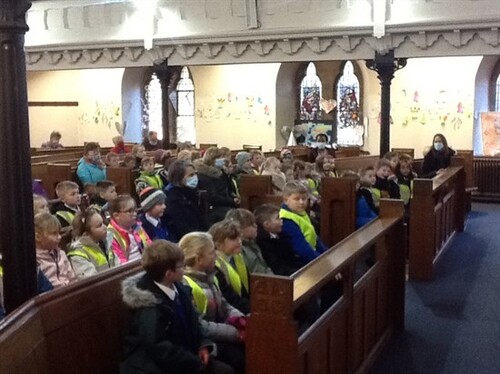
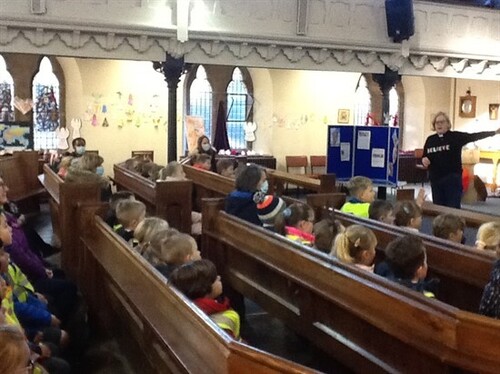
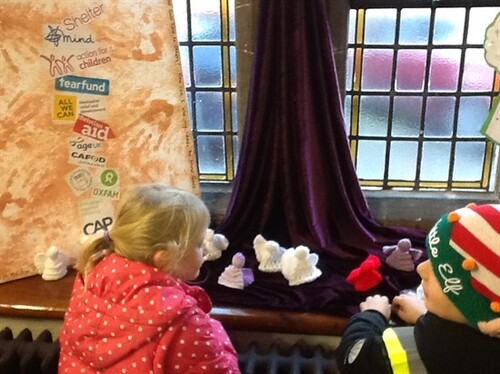
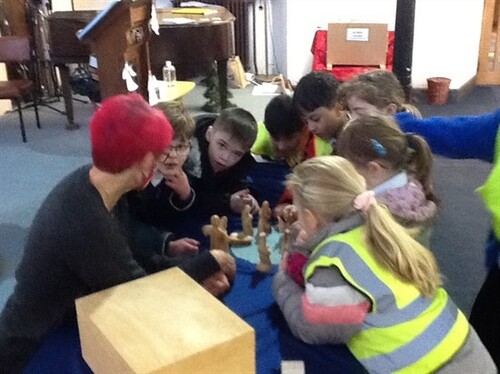
For our Autumn DT project, we designed and built slingshot cars.
First, we built the base using glue guns, lollipop sticks, paper and plastic straws and paper clips.
Then, we looked at aerodynamics and the important aspects of fast car design.
We then used this knowledge to design our own templates and nets for our car bodies, before building and decorating the bodies and attaching them to our cars.
We had to change parts of our design and rebuild some aspects of the cars as we went, so we have left the testing until next term!
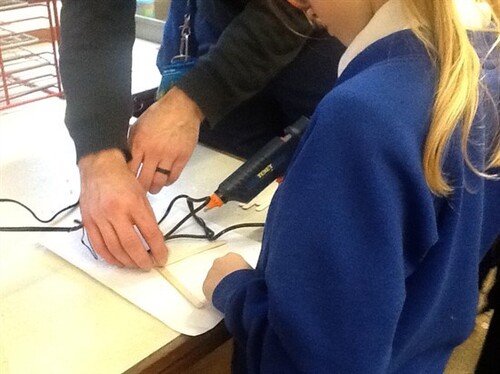
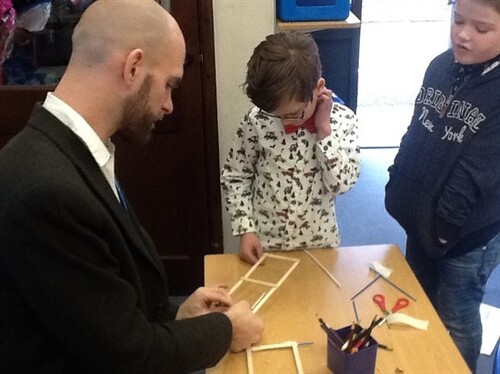
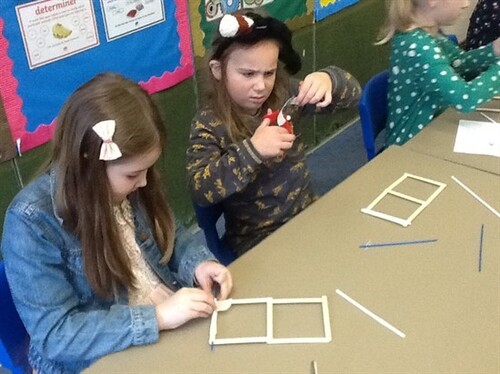
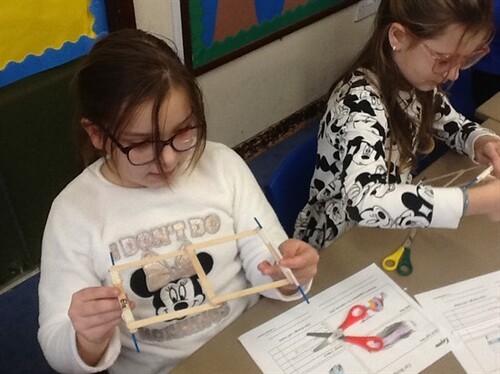
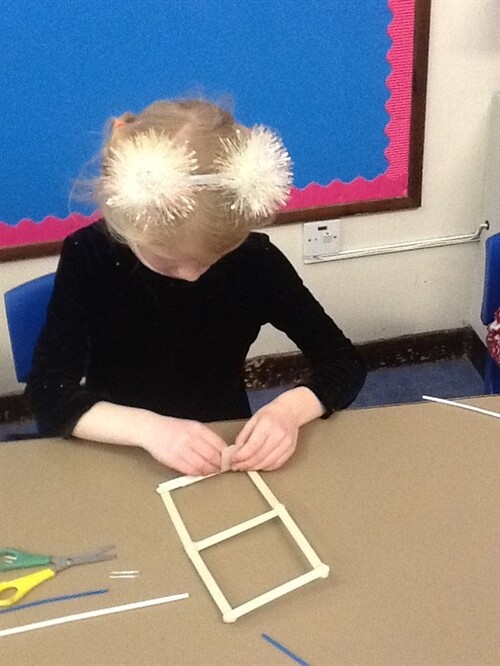
We have continued to use concrete resources, particularly place value counters, to support our understanding of multiplication.
This has included making x lots of a number, and showing arrays and groups.
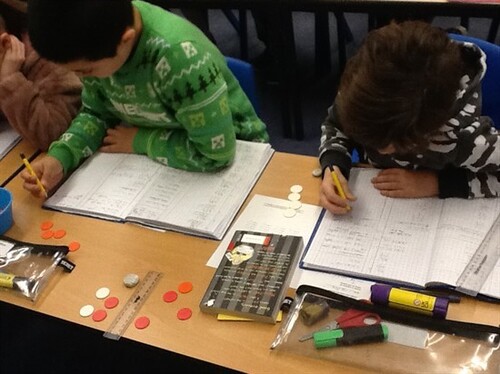
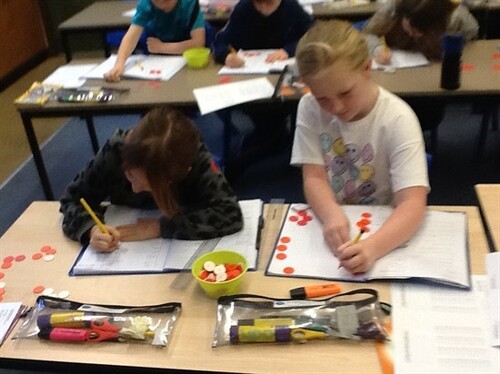
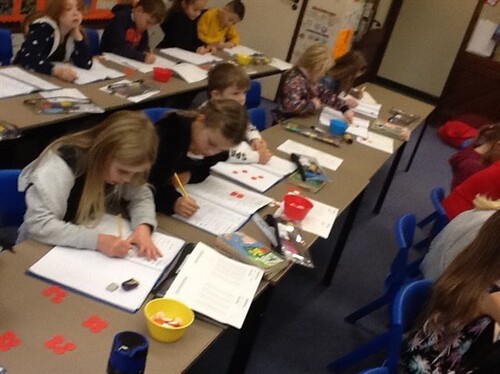
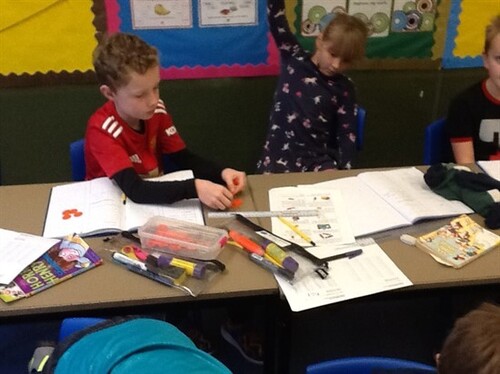
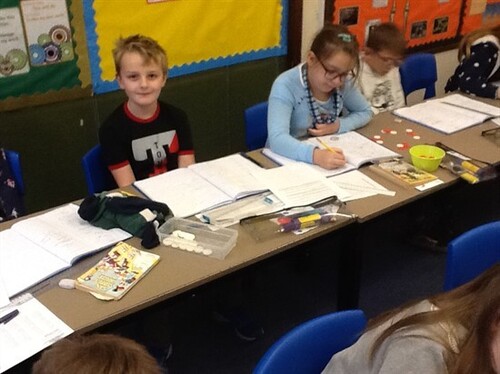
We listened to a story about a person on a different planet who was born with a unique feature. He felt very different, but eventually found acceptance in his world, and met people like him, and people who valued and treated him for what he was.
We discussed the story, and drew links between the story and how we can act and value people in our world.
We then created a comic-strip story board to re-tell the important aspects of the story.
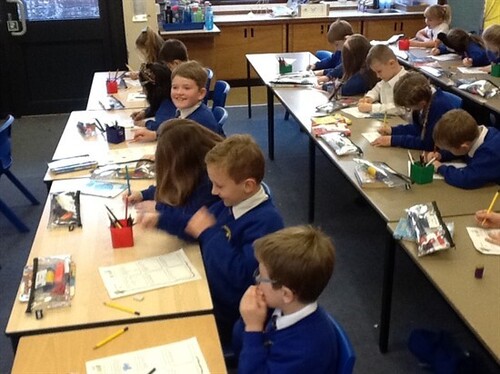
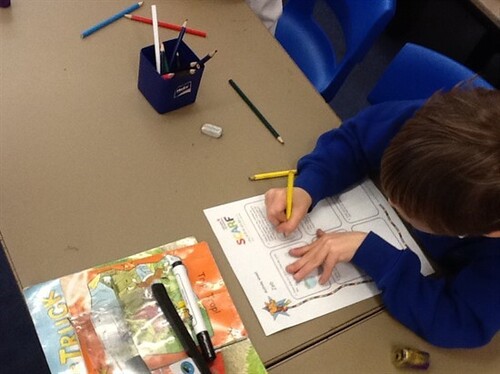
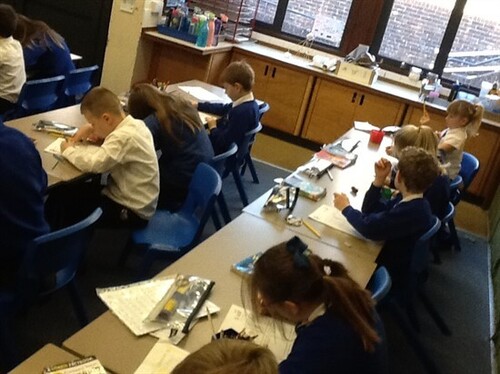
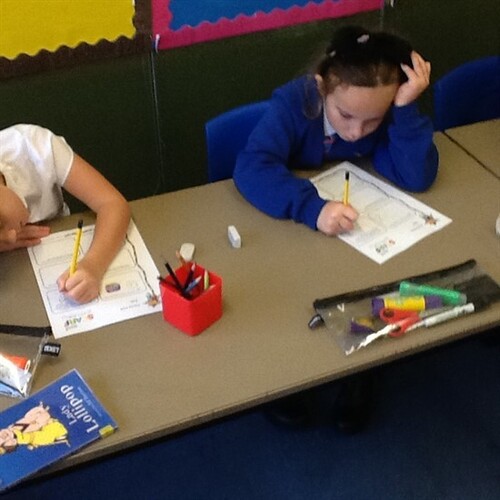
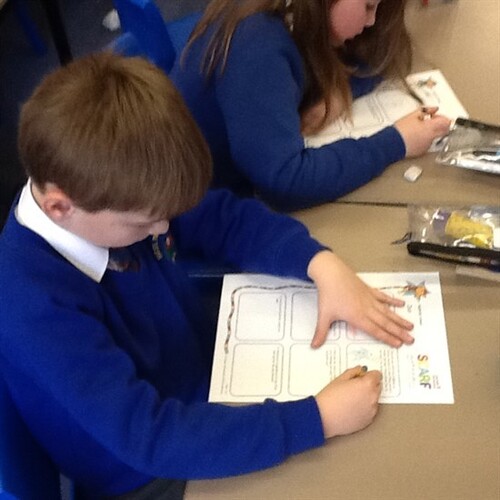
We used a set of scenarious with different amounts of risk as a basis to explore how to have a structured debate.
We looked at how we can present our ideas, and how we can respond to these. We focused on speaking in full sentences, and keeping our points relevant.
We stood in different parts of the classroom based on which side of the argument we agreed with.

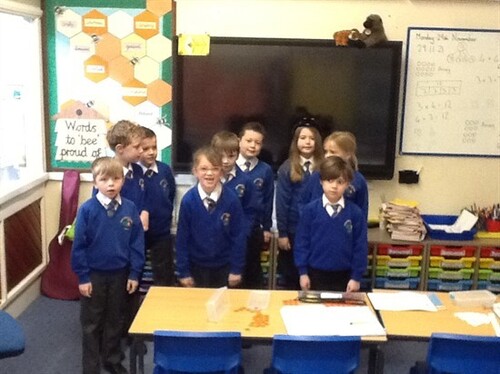



As part of our lesson on the different layers of the rainforest, we measured the heights of different layers on the school playground.
We then stood at these distances to get an idea of just how tall the canopy and emergent layers were. We were surprised by just how long these distances were!
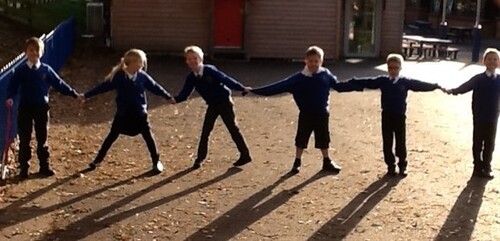
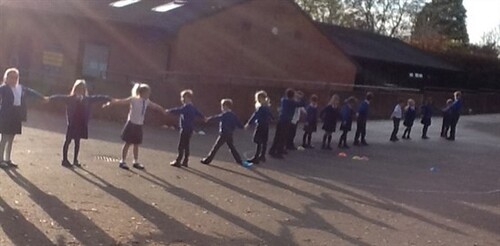
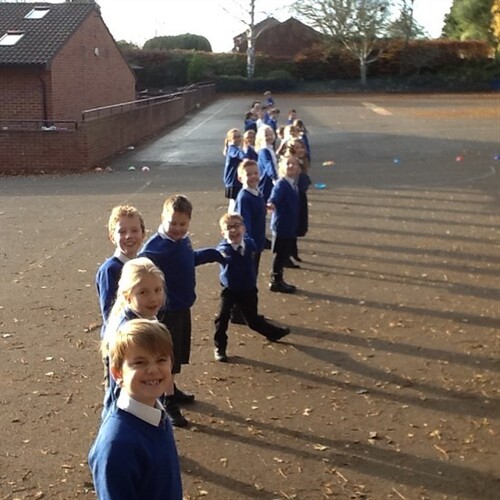
We had a visitor come and talk to us about the importance of road safety, and about the different ways we could make sure we looked after ourselves near roads.
We learned a lot about the different sorts of crossings, about how to cross the road, about some of the laws about the road, and about the dangers that we might face.
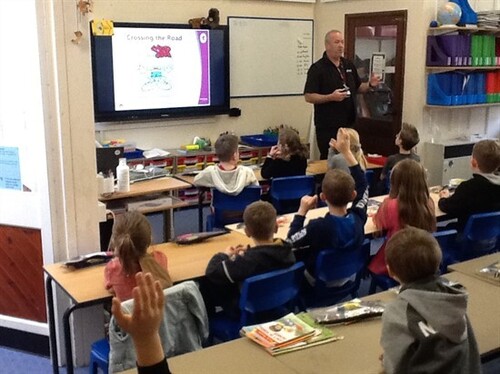
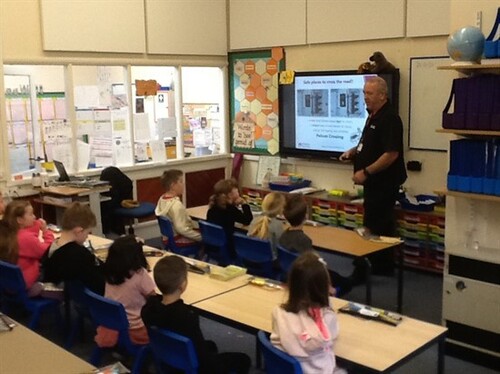
For Earth day, we looked at a variety of ways that humans are affecting Earth, its climates and its habitats.
We then looked at a number of solutions to some of these problems. We discussed what we could do on an individual level, too.
We then created a piece of art, showing 5 pledges to help the environment. We came up with our own pledges after discussion.
To help us create a well-painted piece of art, we had a lesson on blending water colours, and practiced different techniques and brushstrokes to achieve this, before selecting the methods we liked best for our final piece of Earth Day art.
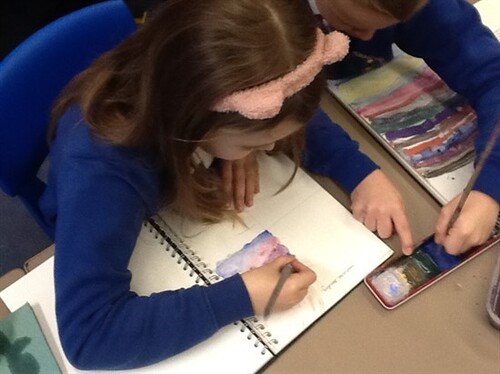
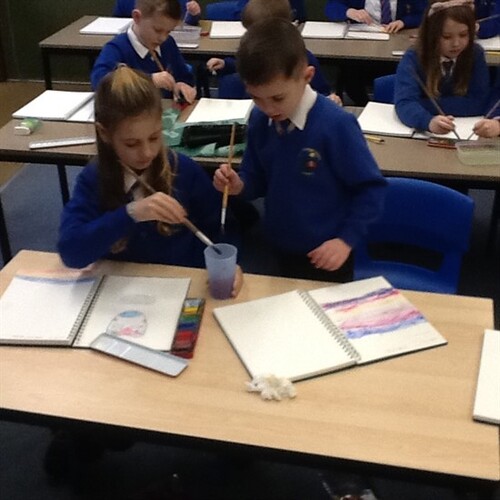
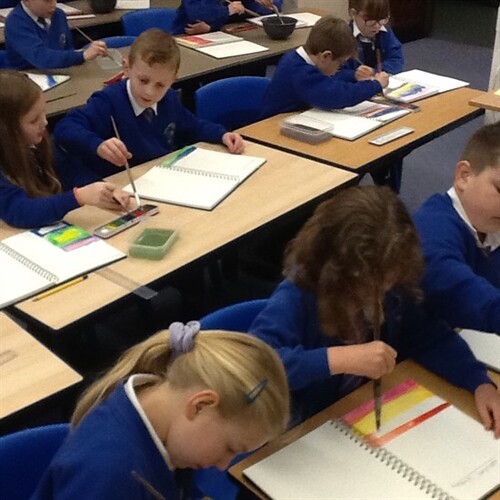
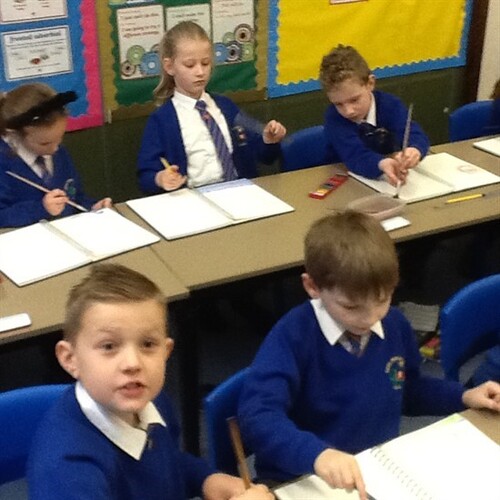
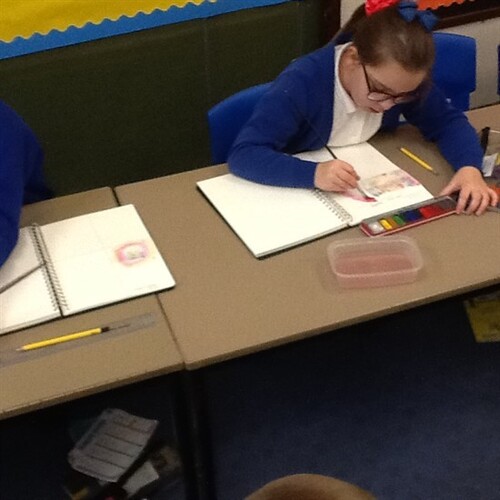
As part of our unit on forces, we carried out an experiment on friction.
We looked at different surfaces, and measured how far cars travelled before stopping on those surfaces, after accelerating down a ramp.
We only changed one variable – the surface – whilst we tried to keep the other variables the same.
We then compared our results and discussed what they showed us in class.
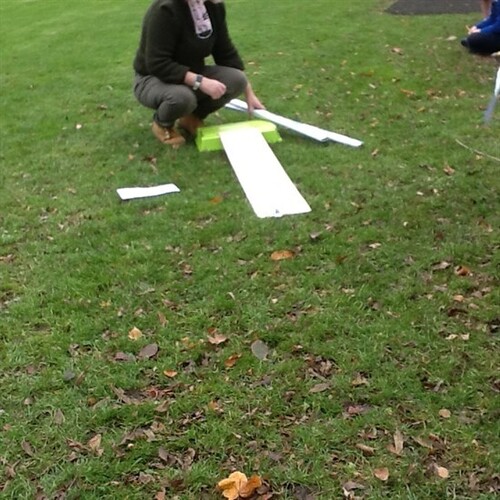
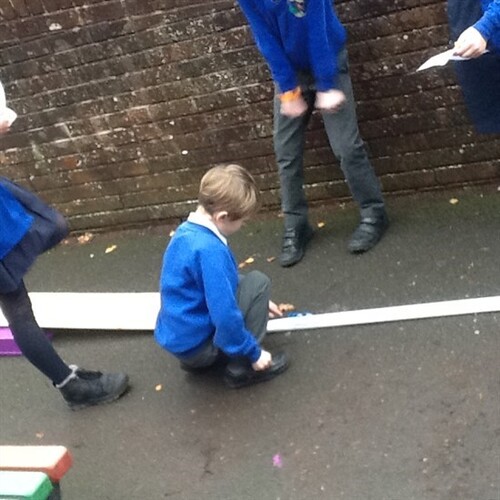
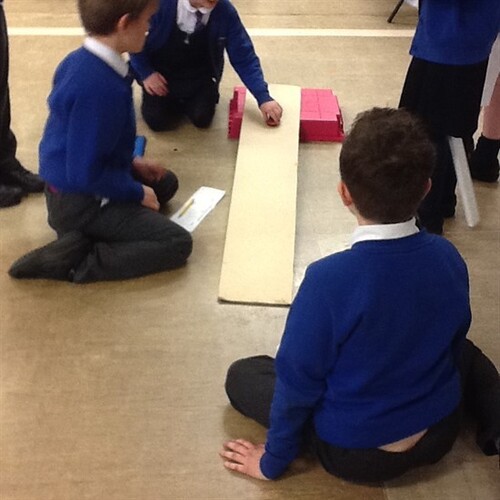
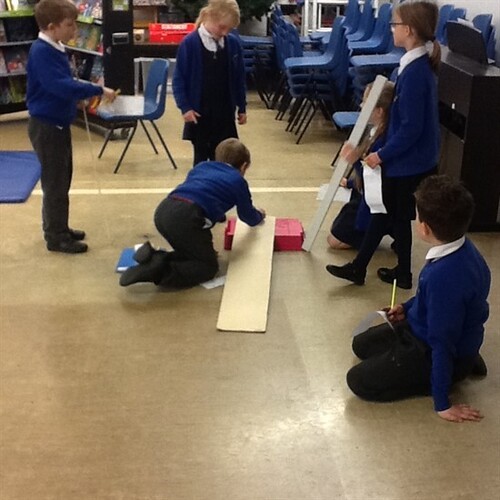
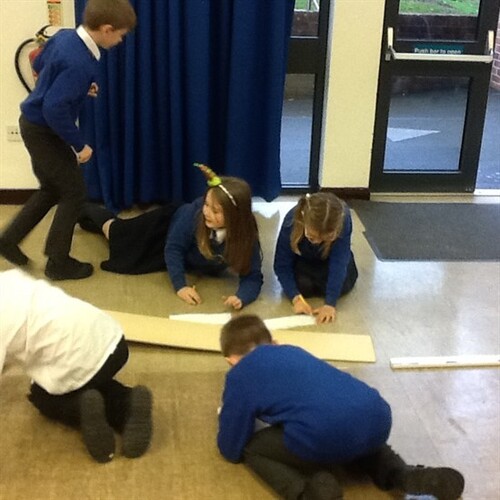
We looked at what the Ancient Egyptians believed about the afterlife, and how mummification linked to this.
We looked at each stage of the process, and how it served a purpose in the afterlife.
We then carried out a mummification on one of our classmates!
After we had finished, we compared and contrasted the way the Ancient Egyptians treated their dead, to they way we do today. We thought about the question: why has this changed?


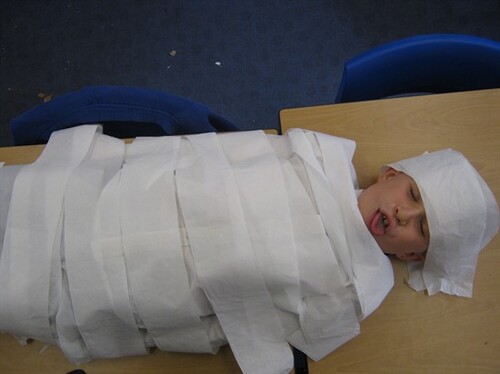

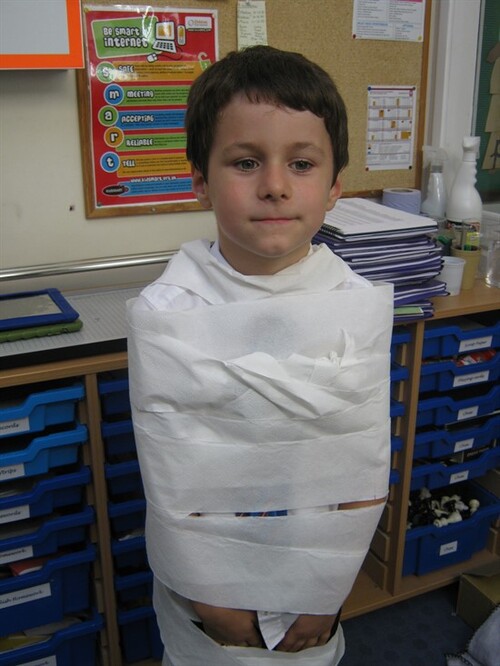
In Science, we looked at different food groups, their properties, and tried to group some examples.
This led to a discussion about how each food group impacts our health.
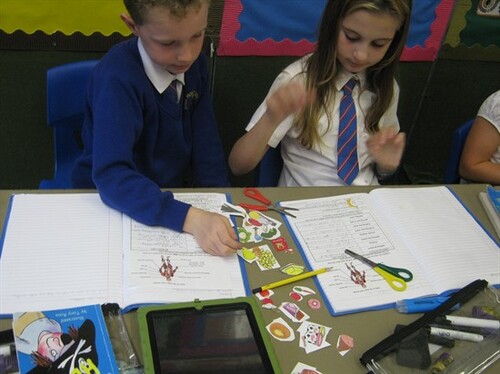
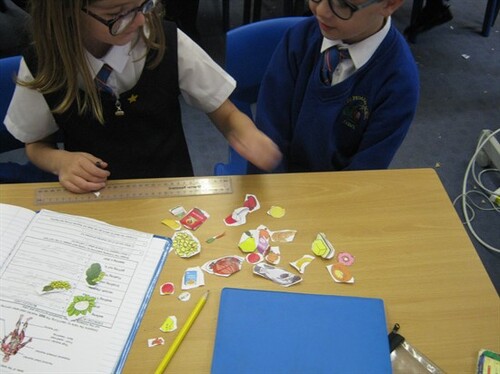
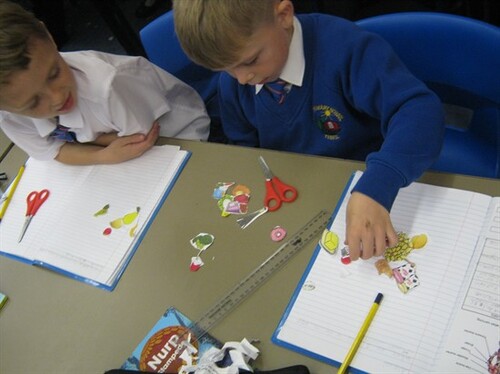
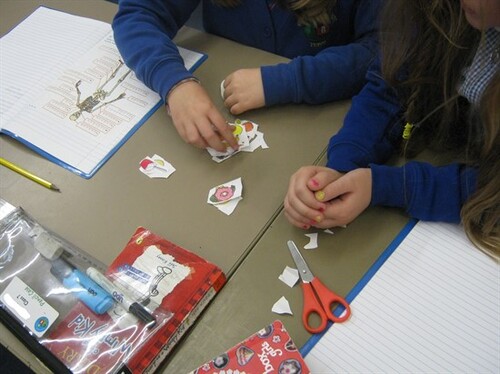
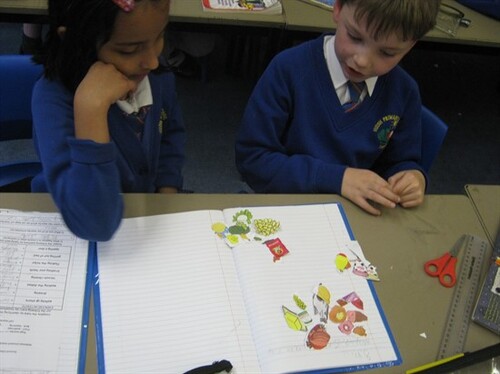
In order to practice fluency with mental calculations and strategies when bridging 10, we approached the Nrich ‘Maze to 100’.
This meant we had to look at different methods to bridge 10, and we also had to count back using subtraction strategies if we were off our target.
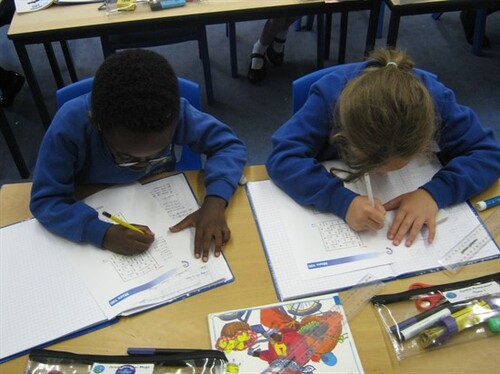
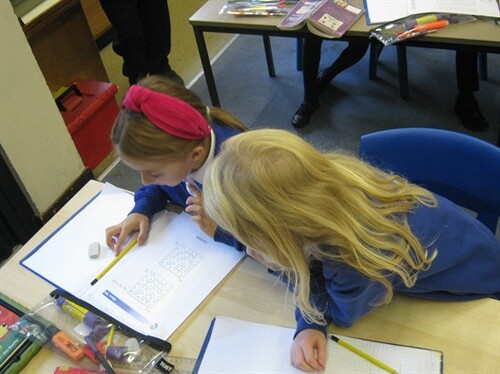
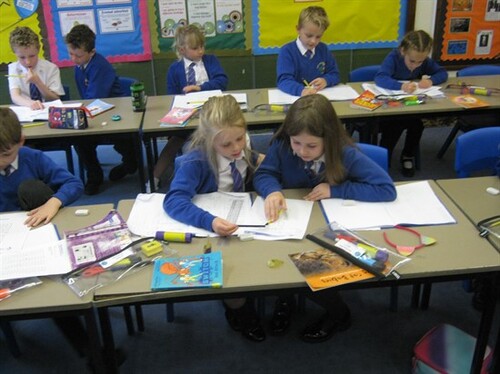
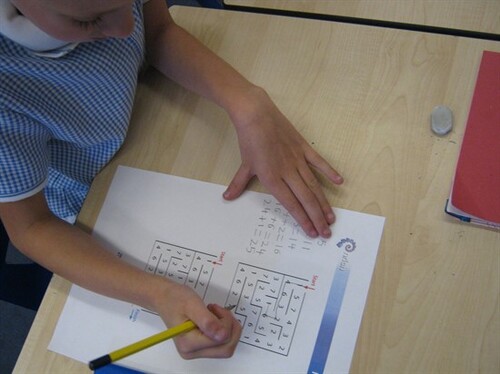
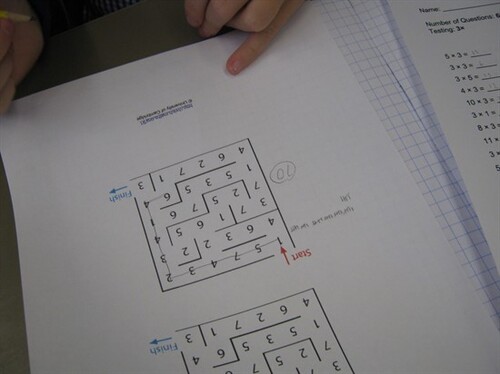
We looked at a Guided Reading text in the form of a play.
In order to understand stage directions and other features of a play, we acted it out in small groups. We were sure to follow all instructions and directions carefully.
Even our teachers joined in!
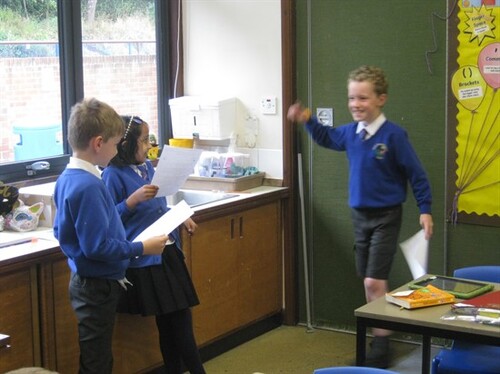
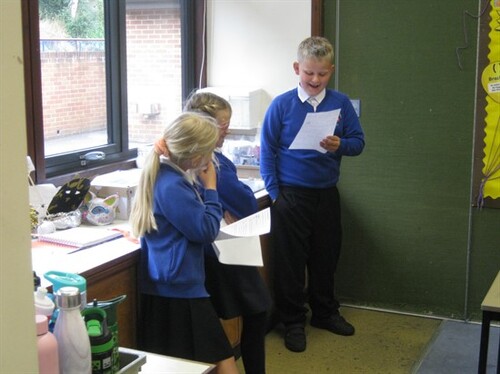
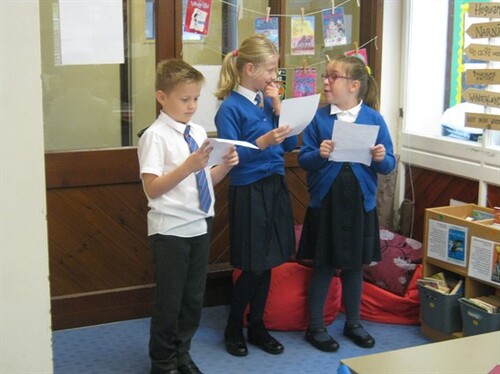
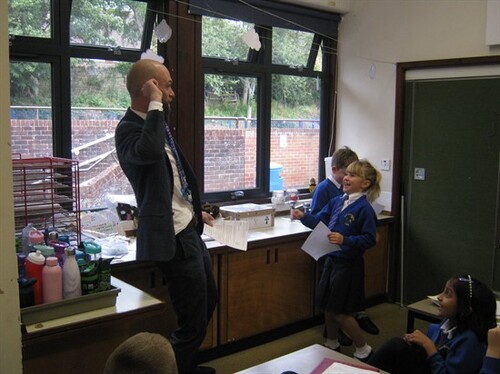
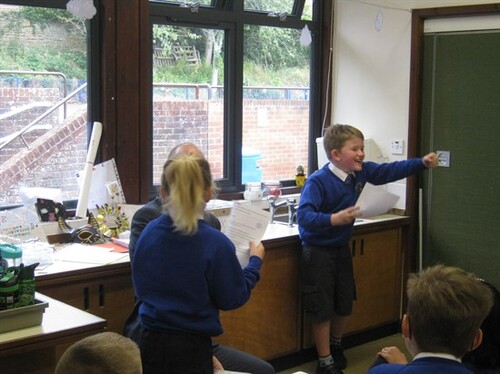
We looked at a strategy game called Nim – 7.
After trying our hands at it and looking at a few example games, we looked at a set of reasoning questions.
We then tried to work out full answers to each of the questions, along with explanations as to why we thought that.
These were explored through discussion, and are part of our work on using appropriate language in Maths, and speaking in full sentences when discussing problems and reasoning.

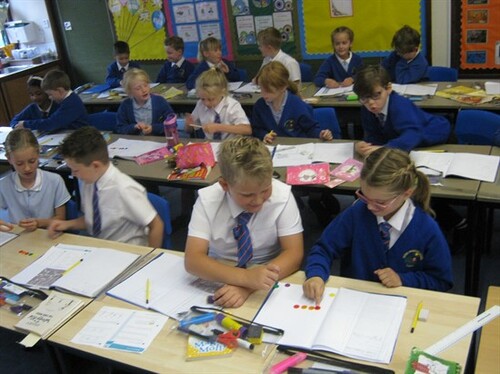
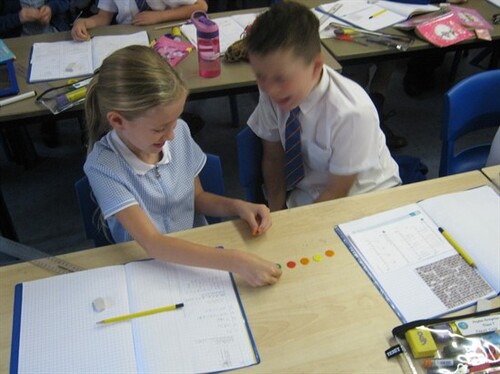
Throughout our unit on subtraction and addition, we have used a variety of resources to help with understanding the place value and exchanging involved.
Place value counters have been particularly helpful to show exchanging, and we have also looked at ways we can represent counters and exchanging on whiteboards and in books.
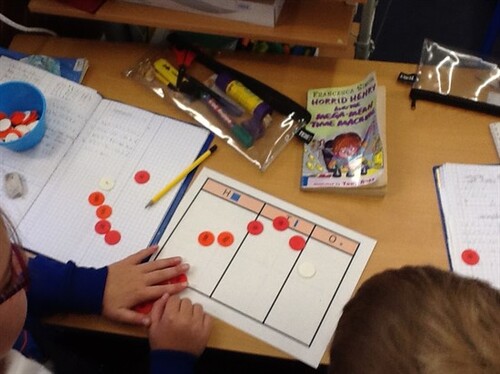
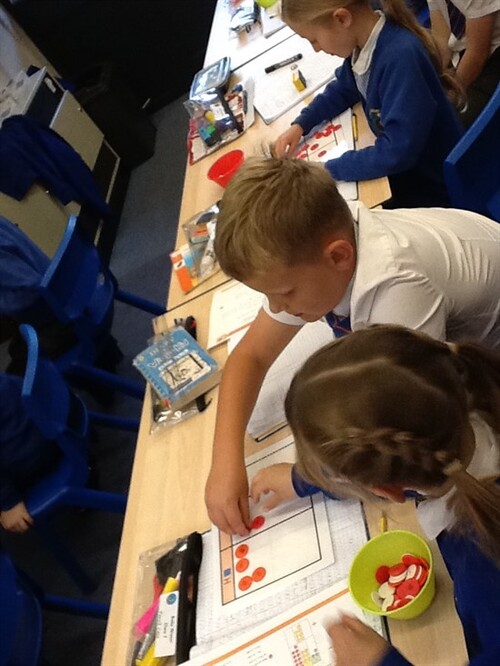
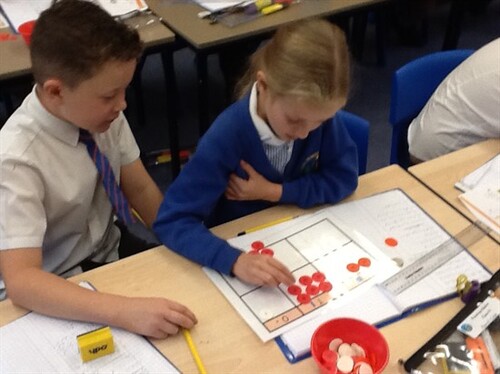
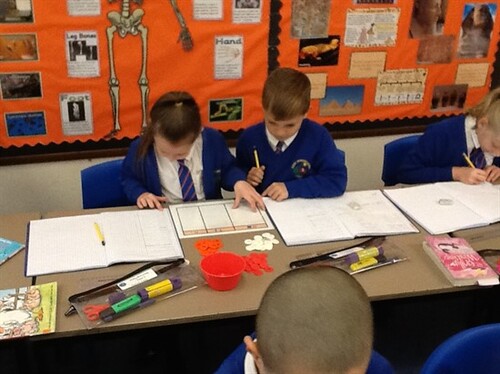
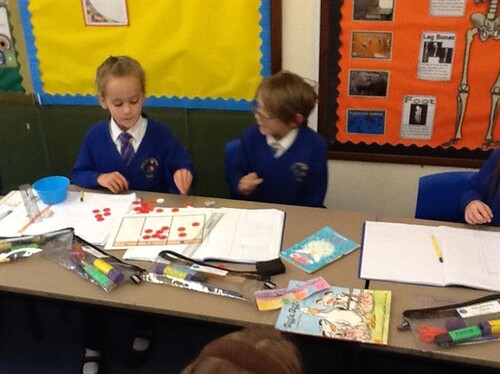
We looked at teamwork in PSHE. Children had to work in pairs and groups to solve problems involving the ancient Chinese game on Tangrams.
This led to some excellent discussion around how teamwork can work smoothly, how we can decide when to talk and share ideas, and what children thought about having leaders in groups.
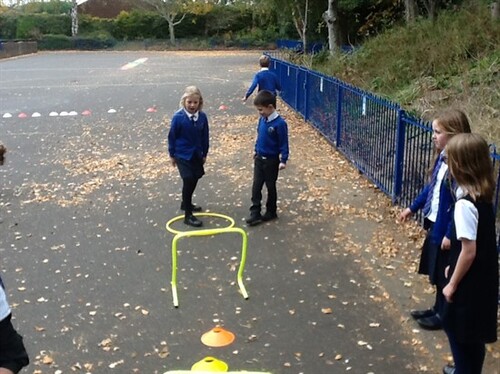
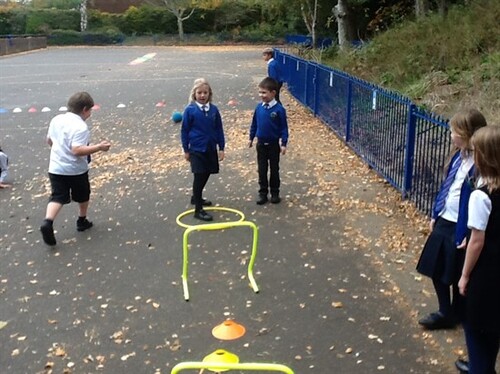
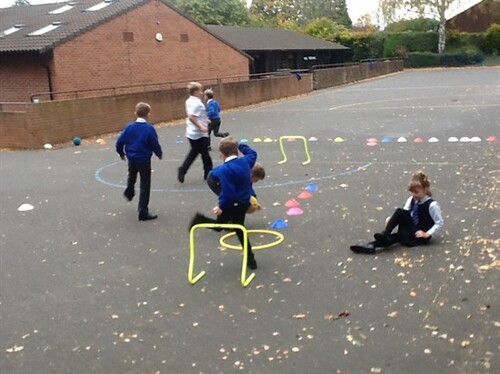
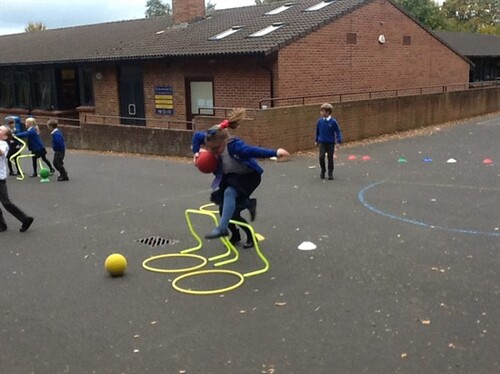
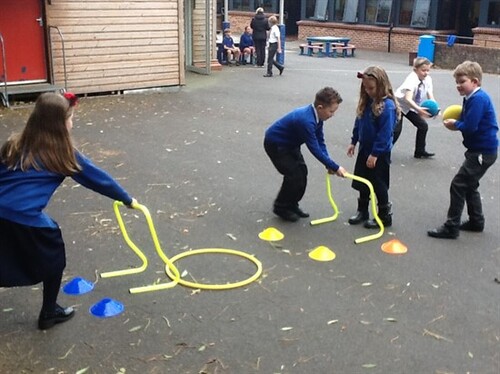
Year 3 were lucky to have Nick the ‘Bug Man’ visit them this term.
He brought a range of insects and ‘mini-beasts’. (Some less mini than others!)
Nick spoke about Exoskeletons, Endoskeletons and Hydrostatic skeletons, and showed us real life examples of animals to demonstrate this. We even got to hold insects such as millipedes, an African Giant Snail, tarantulas, a cockroach and much more!
It was very interesting to learn just how important mini-beasts are to our world.
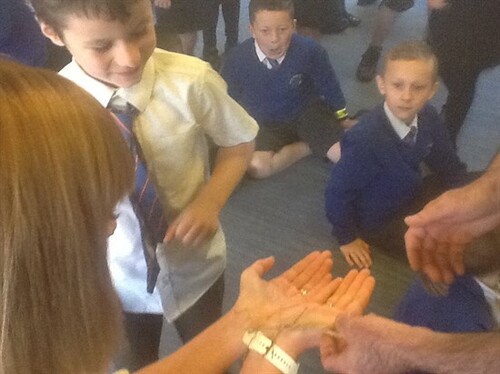
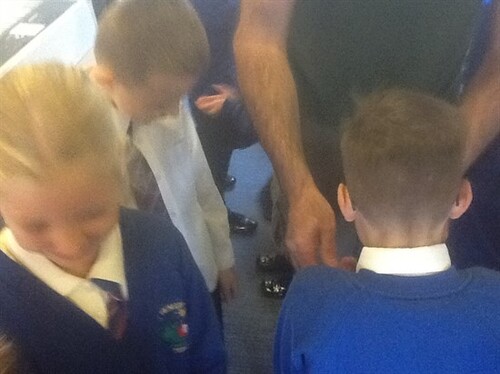
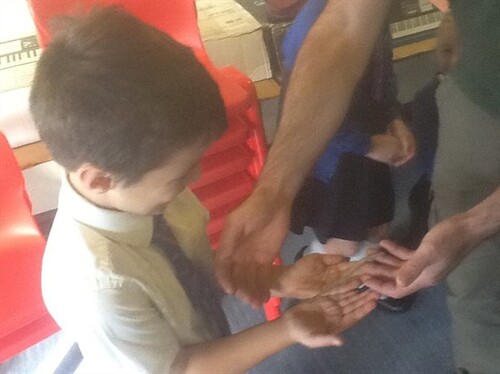
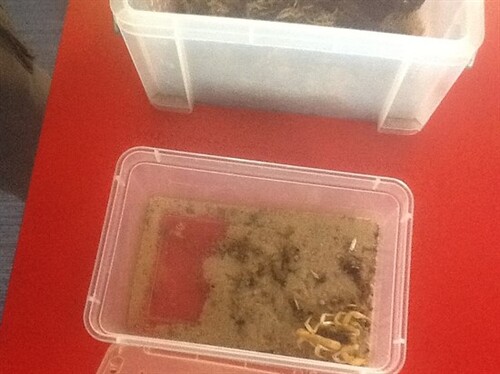
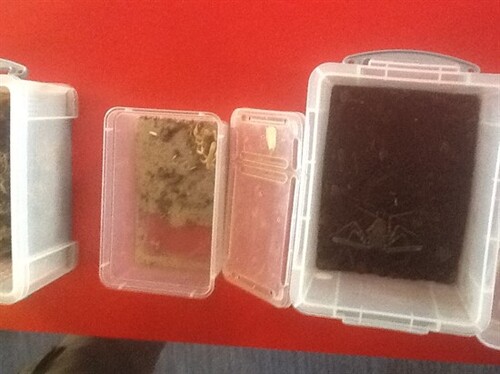
As part of our Egyptian topic, Year 3 looked at mummification, why it happened, and how it was done. We even performed a mummification on one of our classmates!
We have also had the opportunity to share our Egyptian pick ‘n’ mix homework. Thank you so much for all your hard work at home!
Year 3 have been learning how to tell the time to the nearest minute. We found this quite tricky at first, but have been making lots of progress. It would be helpful if we could practice this at home over the holidays.
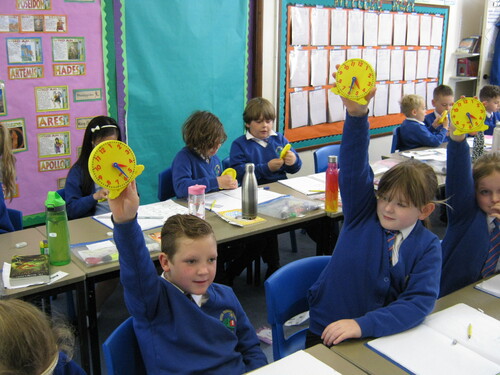
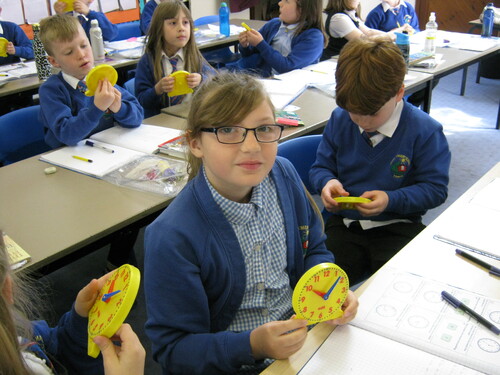
In year 3, the children have been enjoying learning about the Ancient Greeks! The children have been learning about where Greece is in the world and they have been taking a closer look at Athens and Sparta in more detail as they were both very different! They have also been learning about the different Greek gods and goddesses and how democracy dates back to the Ancient Greek times! As a new topic in year 3, the children have really enjoyed taking part in the pick n mix homework leading their own learning!
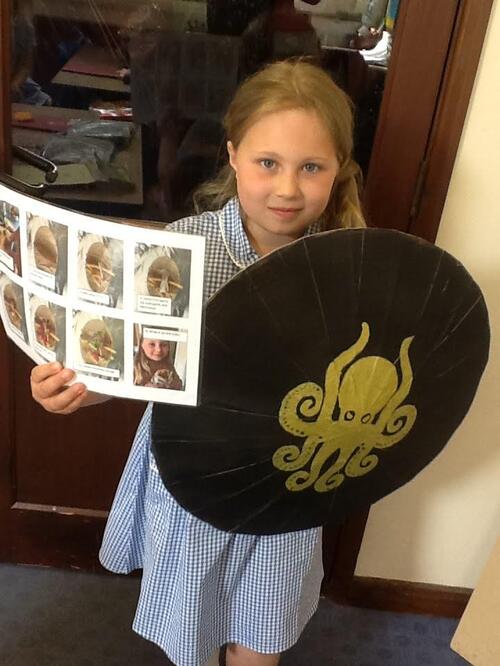
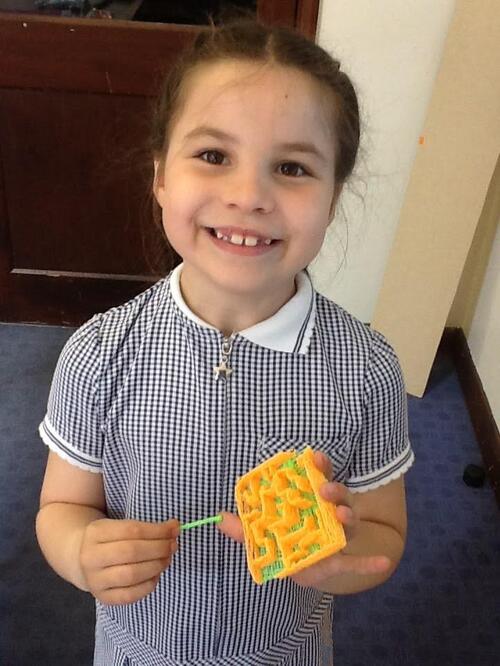
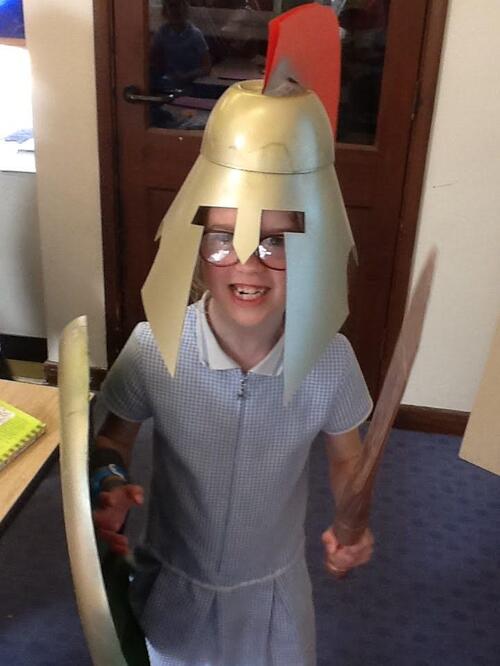
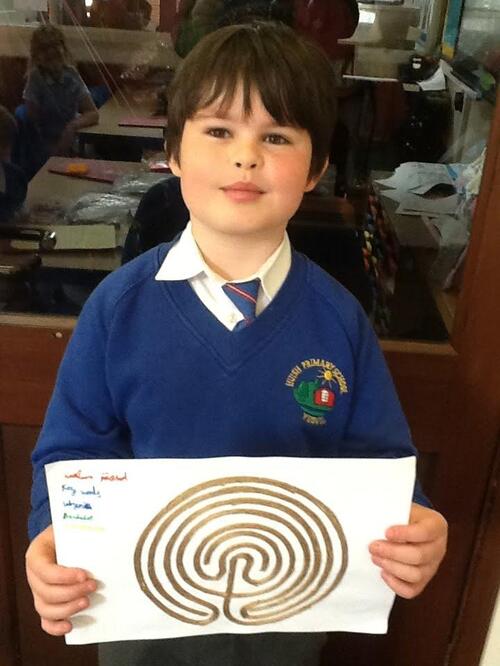
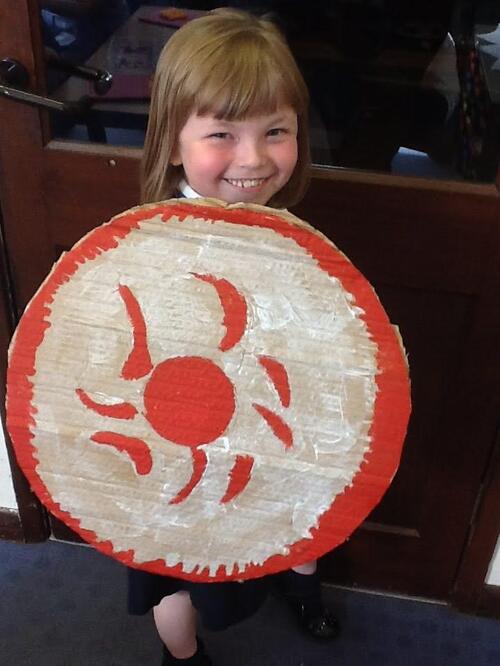
Where are the germs in our school?
During Science week, we learned about bacteria and viruses and how they are spread. We knew quite a lot because of the pandemic! Acting as researchers, we planned an experiment to find out where there are high concentrations of bacteria around school.
Can you make it Float?
For our last activity in Science week, we learned about floating and sinking. We made predictions and tested certain objects to see which things could float. We had lots of suggestions for why or why not. Next, we tested a ball of plasticine and found that it doesn’t float. Our challenge was to make a boat from plasticine that will carry a plastic cube…a bit tricky using something that does not float?! But we DID have success! Ask someone how and why!
Cress Investigation
As part of Science week, we planned a fair test to try and understand the things that a plant needs to grow healthy and strong. We came up with a plan to only change one thing for each plant, testing whether they need water, air, warmth, soil and light. We decided that we’d let one of the plants have access to all of these things but remove one from each of the others. Can you see what happened?
Clever Classifiers
We have been learning about botany – the area of Science involving the study of plants. We thought about how important it is to us that we understand as much about plants as possible, not only so that we can grow and choose safe food but also for medicine, materials and in tackling pollution. We used keys to prompt us to think about features of plants and to identify different types.
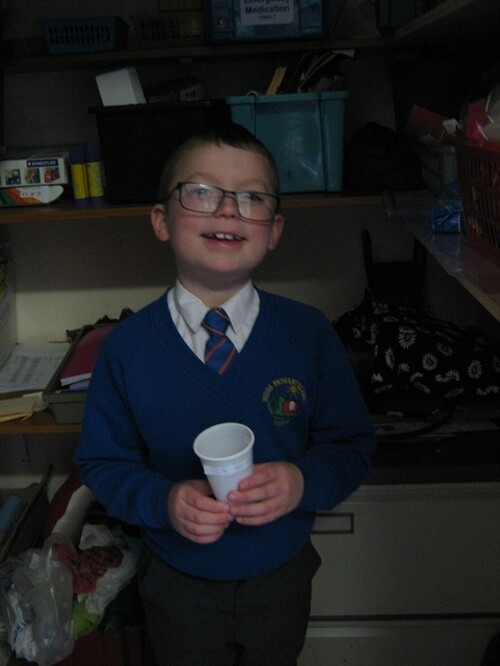
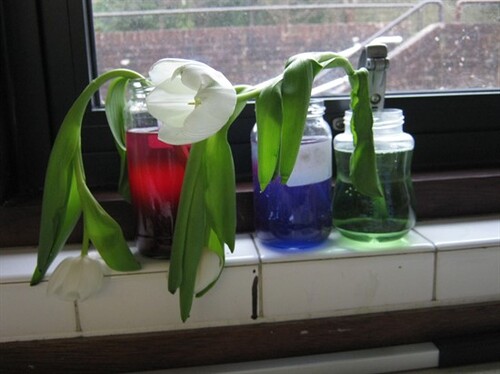
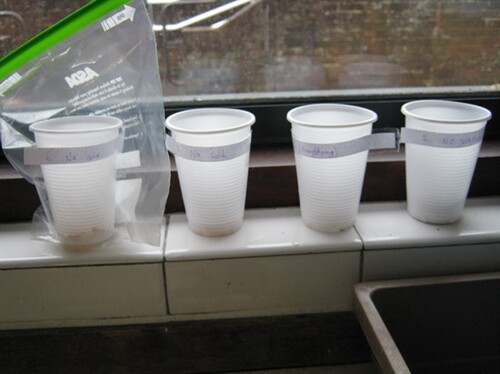
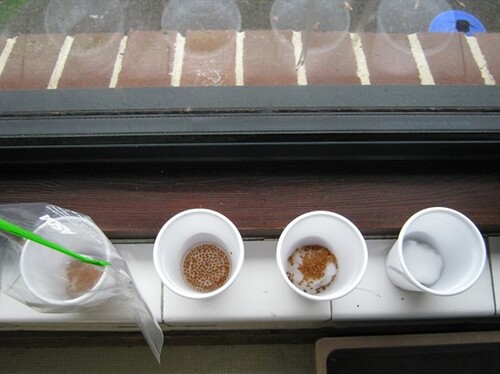
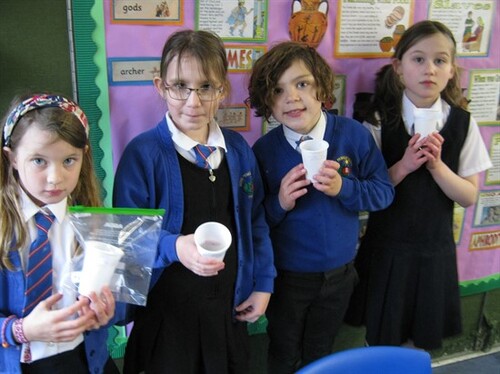
One of our activities in Year 3 on World Book Day was to create a bookmark to celebrate the event. Some of us made corner bookmarks out of folded paper on an ‘animals and monsters’ theme and some of us even honed our sewing skills to create a lovely embroidered page-saver! Some children produced ‘Reading Rivers’ illustrating the things they read in the course of a day and we received some great ‘Shelfies’ from home! Your bookshelves are bursting Year 3!
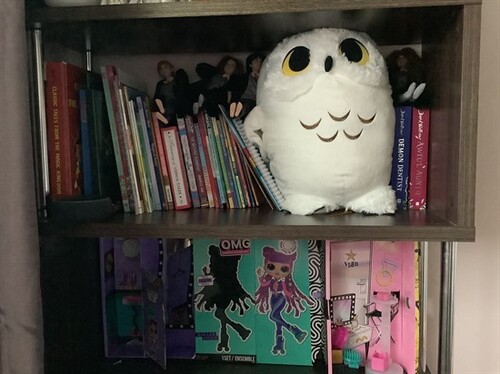
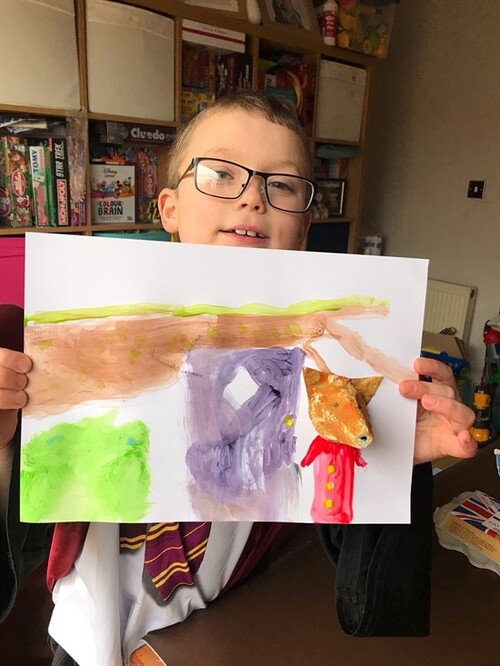
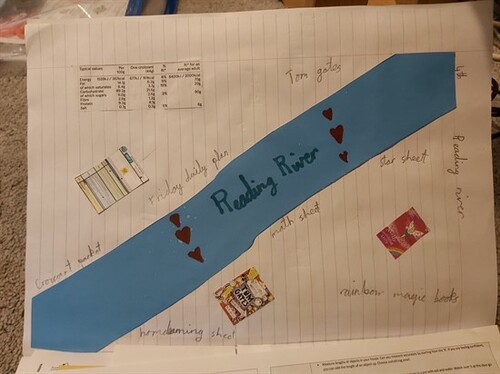
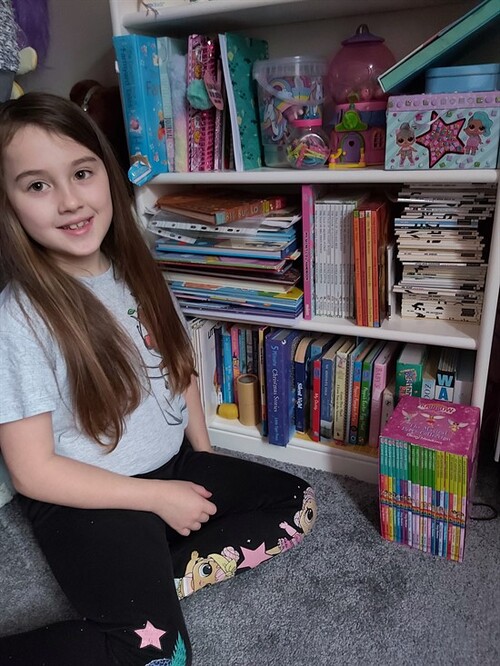
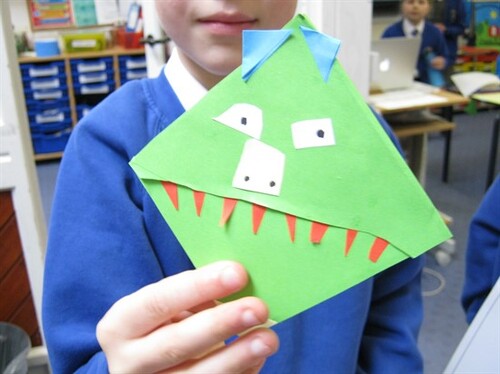
We are off to a flying start with our home learning in Year 3. We have been working on Multiplication and Division in maths and responding to the ‘Hetty’s Unicorn’ story in English. In Geography, we have been inspecting the labels on fruit and veg around the house and investigating how far it travelled to get to us! I’m sure you’ll agree there is some outstanding work here! Thank you so much to everyone who has sent in their work to show us – we are so proud of how well you have been doing!
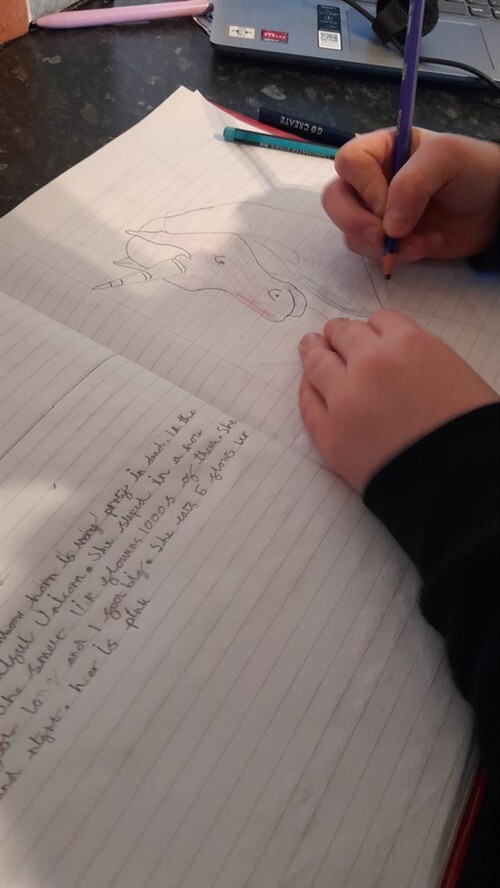
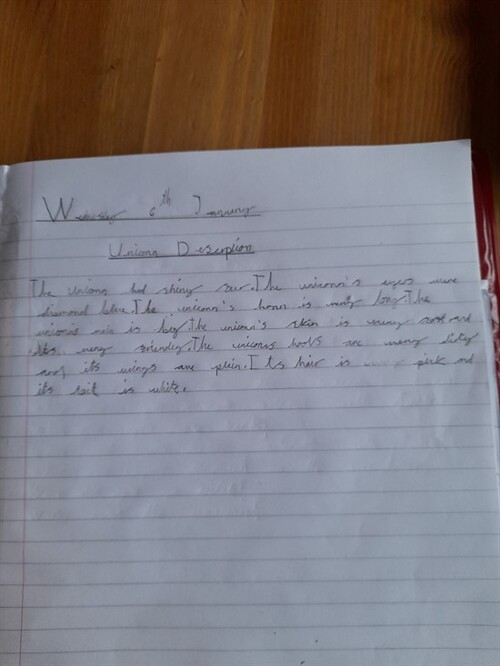
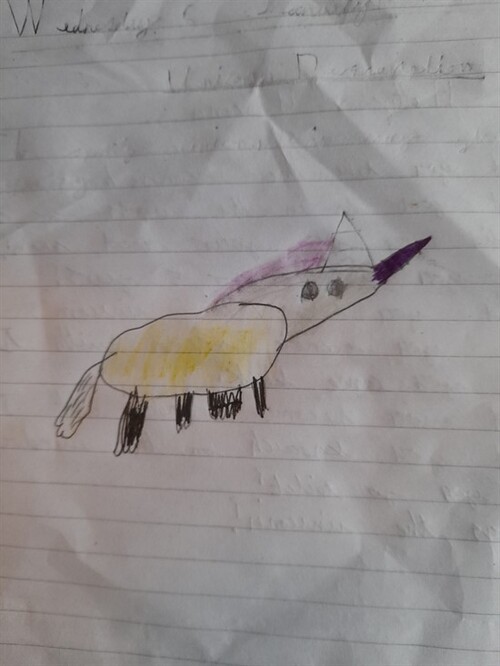
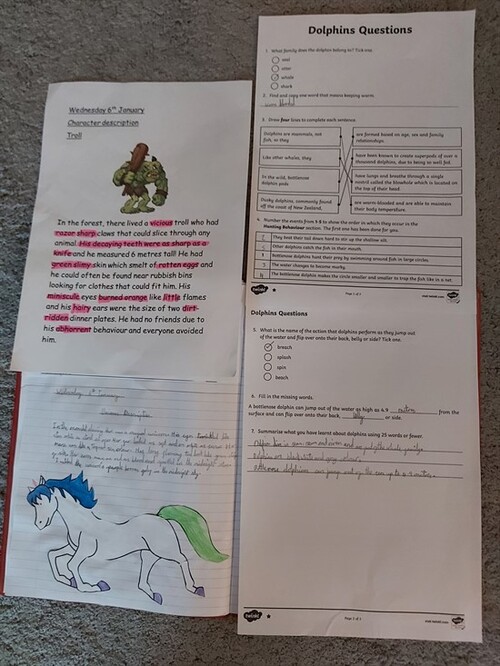
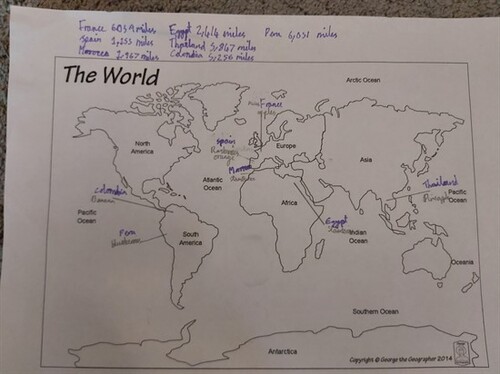
Year 3’s art task on Monday was to create their name using only natural materials – definitely more of a challenge in the middle of winter. Some of the children in school used the forest area to create their work and we had lots of lovely examples sent in from home too!

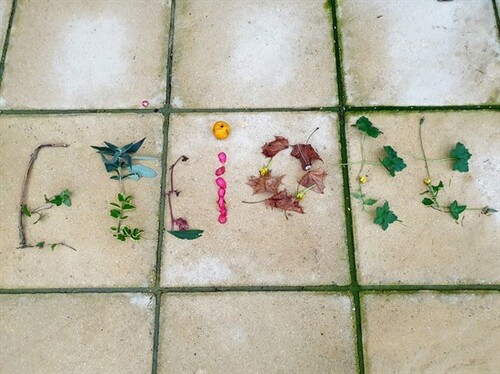
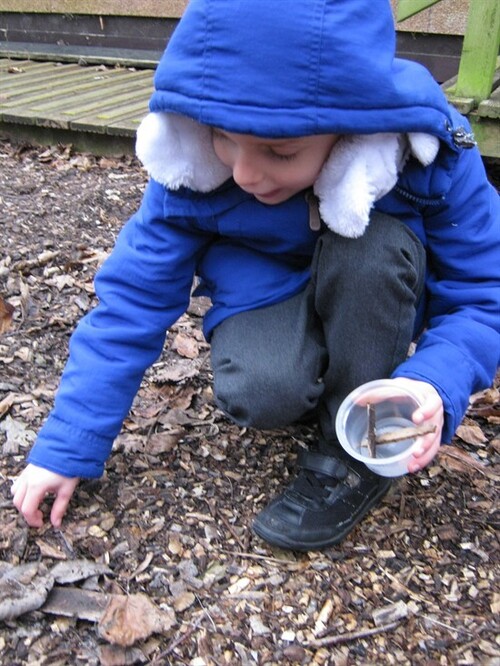
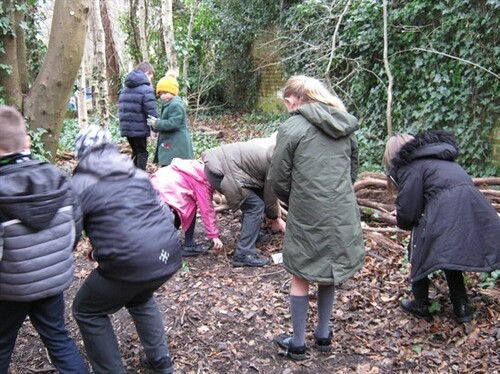
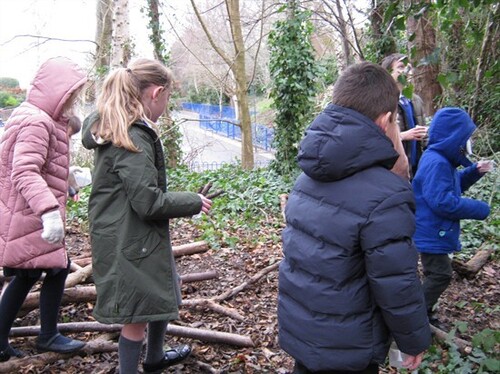
We planned a fair test to see which surfaces around school had the most friction. We rolled toy cars down a slope and then measured to see how far they rolled on different surfaces. The surface that had the least friction was the hall floor and the surface with the most was the grass. How do you think we made our test fair?
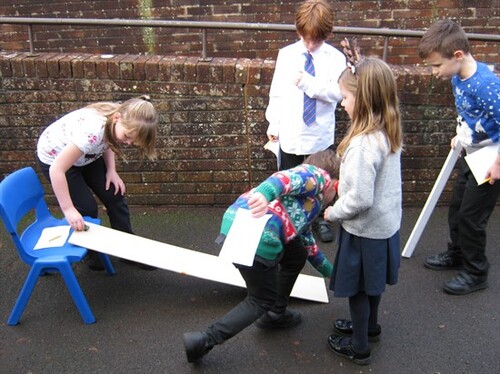
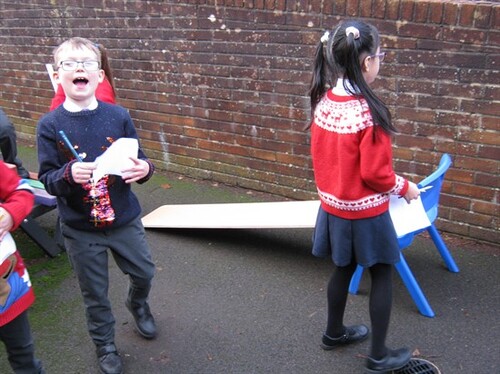
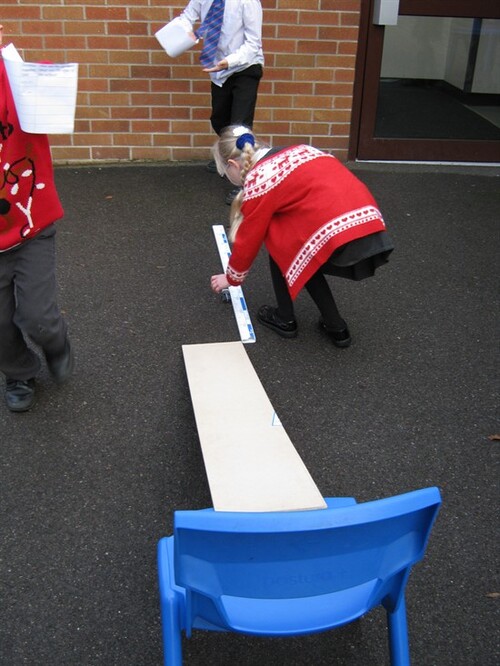
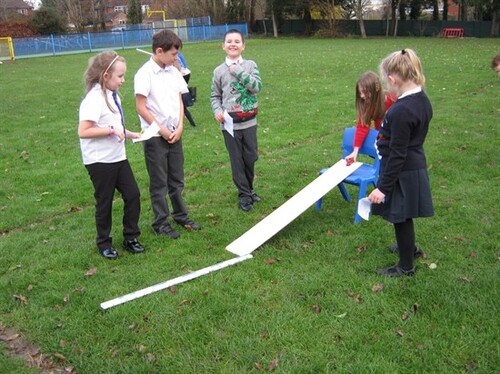
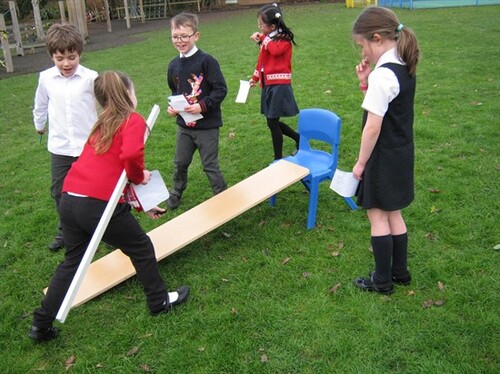
Class 7 thoroughly enjoyed their Christmas dinner together on Wednesday – especially the dessert!
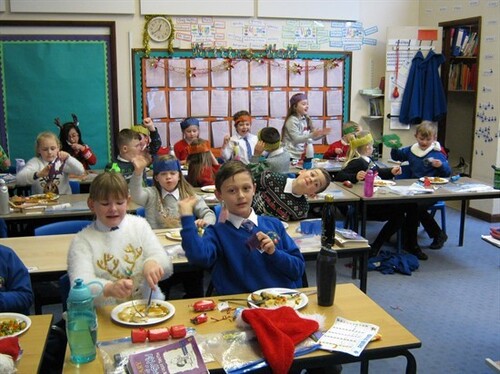
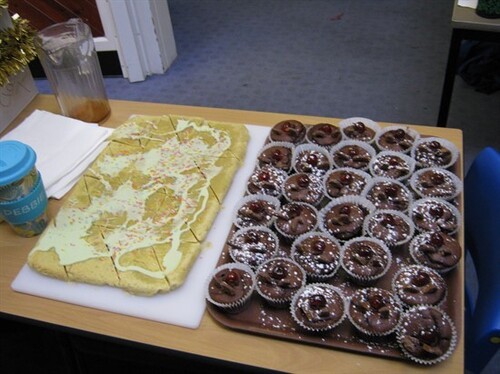
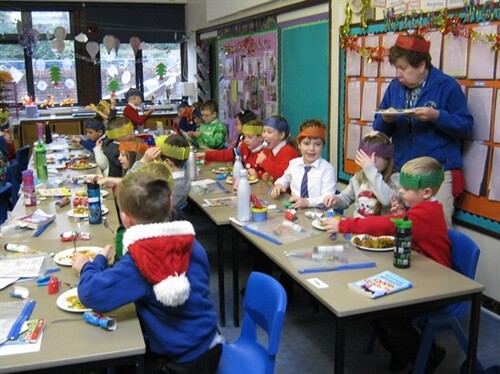

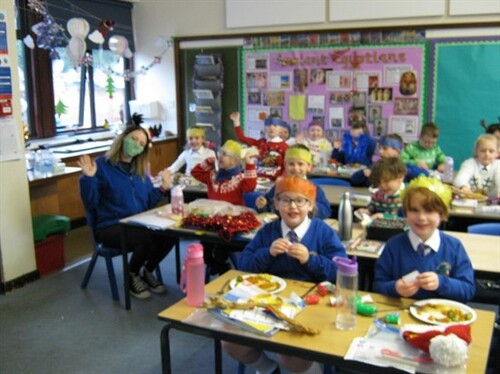
The children enjoyed showing off their spots and Pudsey ears in class today – don’t they look great? We raised lots of money in school for this great cause. Well done everyone!
Today we held an Earth Day at Huish. We began the morning by watching the David Attenborough film “A Life on Our Planet”. It was a very powerful film and gave us lots of cause for discussion! We talked about what humans have done to Earth and the ways in which this can be reversed. In Class 7, we focussed mainly on reducing waste. We came up with lots of ideas before writing our own pledges for looking after our Earth. After all, the world is in our hands!
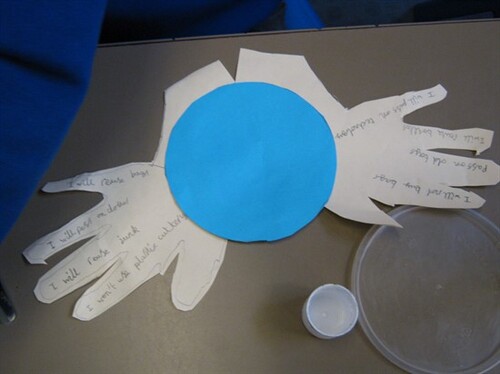
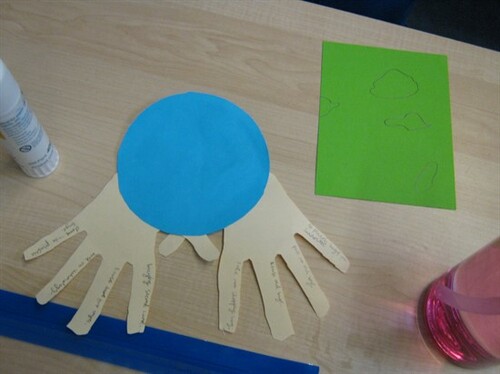
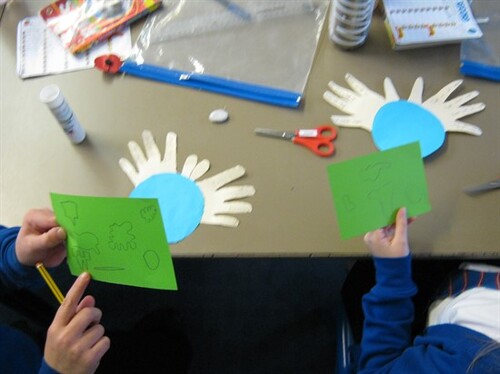
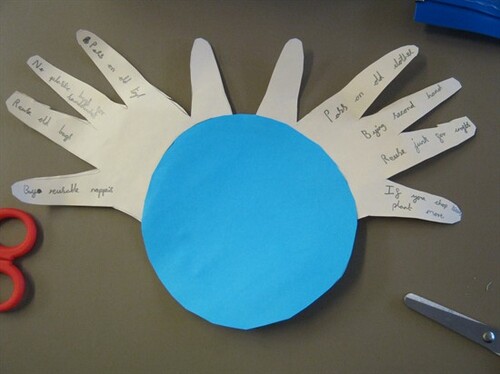
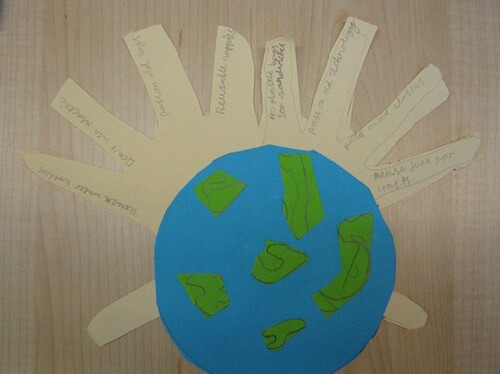
As part of Maths Week England, we have been learning about tessellation. First, we were given a puzzle to do with shapes that fitted together perfectly – it was really challenging! Then we did an investigation in to 2D shapes would tesselate. We made a prediction and then tried them out. We were surprised to find that, although a hexagon does tesselate, a pentagon does not. We then looked at some tessellation in nature. We practised using some specially made tessellating shapes before making our very own shape using card. Have a look at the lovely patterns we made using our tessellating shapes.
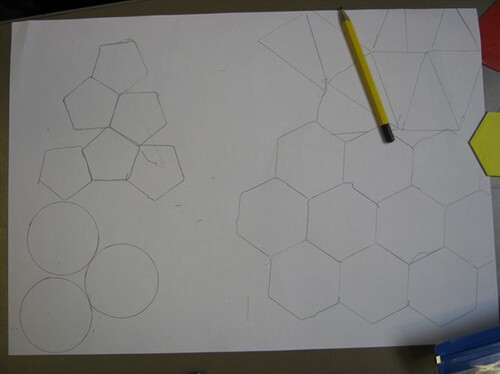
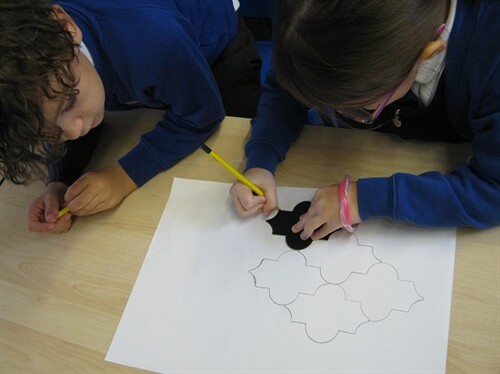
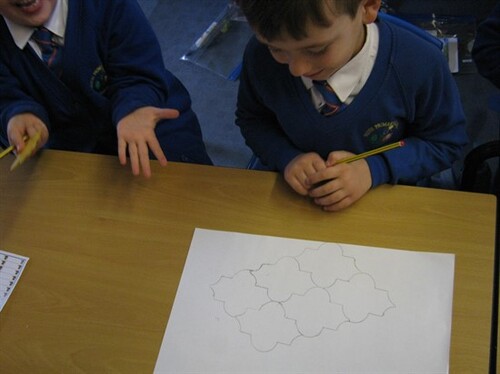
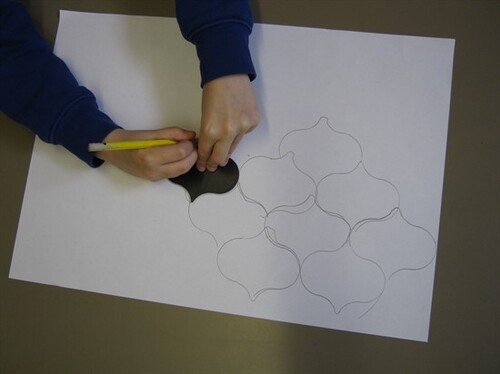
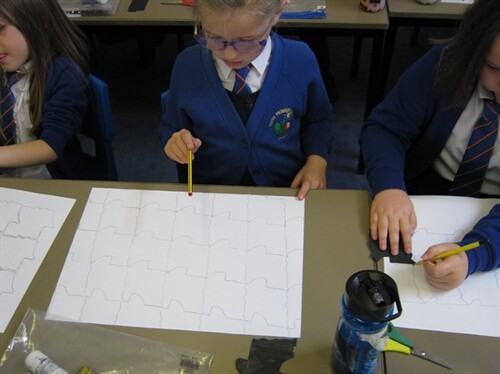
This week in Science, we looked at the traffic light system found on food packaging in the UK. We talked about how it can help us to make informed choices about the foods we buy and eat. We learned about what was a healthy level of fat, sugar and salt but discussed how it was ok to have things high in these things occasionally and about how we need to make sure we balance our diets. We were surprised to find that some of our favourite foods were very high in sugar and salt!
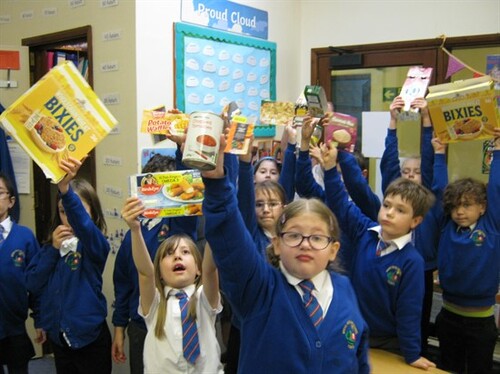
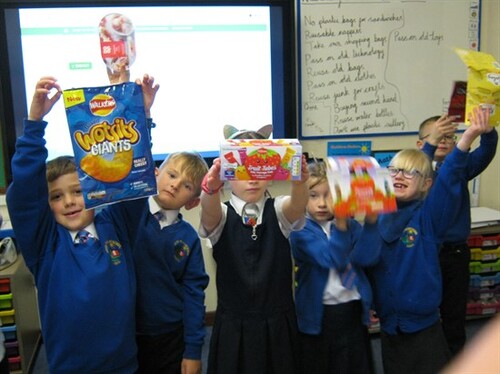
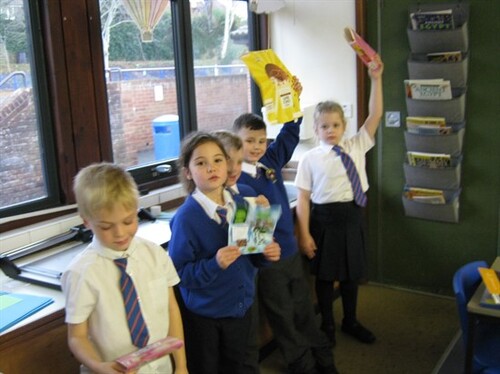
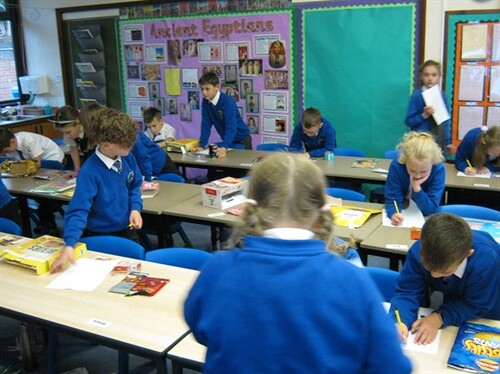
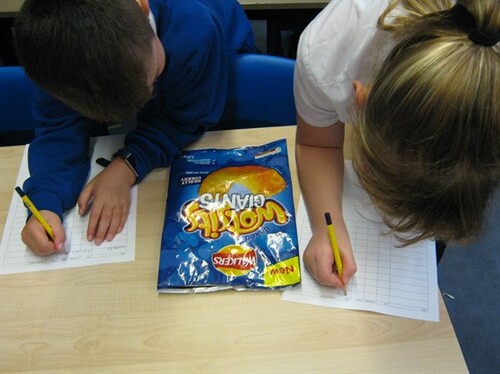
This week, for Art Week, we have been focussing our attention on the work of Andy Warhol. We have learned about him as an artist and compared his work to that of other artists including Roy Lichtenstein and Leonardo da Vinci.
To create our own work in the style of Andy Warhol, first we traced over our photographs using permanent marker on acetate. We could then copy this several times on to paper to have several attempts at creating different colour effects – just like Warhol! We selected our favourite and mixed paints to create our final masterpieces.
Later we had a go at work more in the style of Lichtenstein and coloured another portrait only using dots! It took a long time and we worked very carefully! I’m sure you’ll agree our work looks fantastic. Who can you recognise?
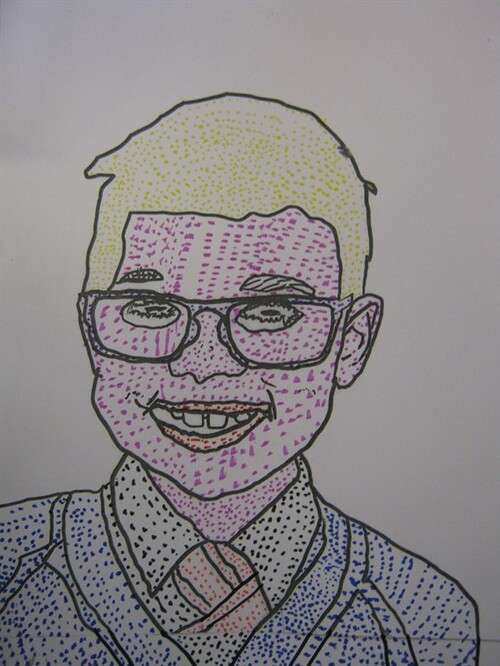
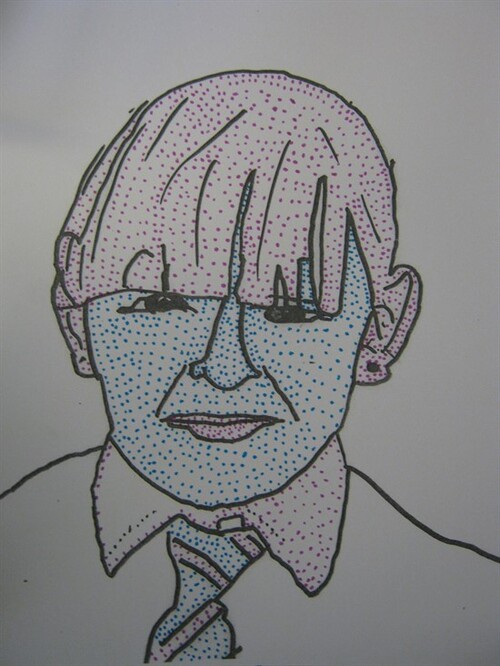
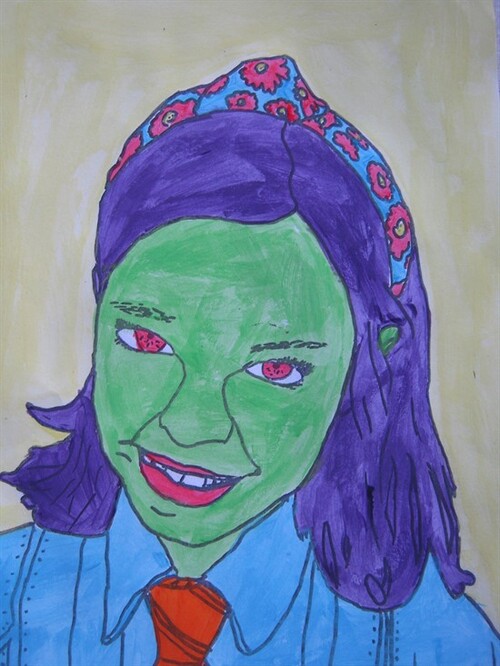
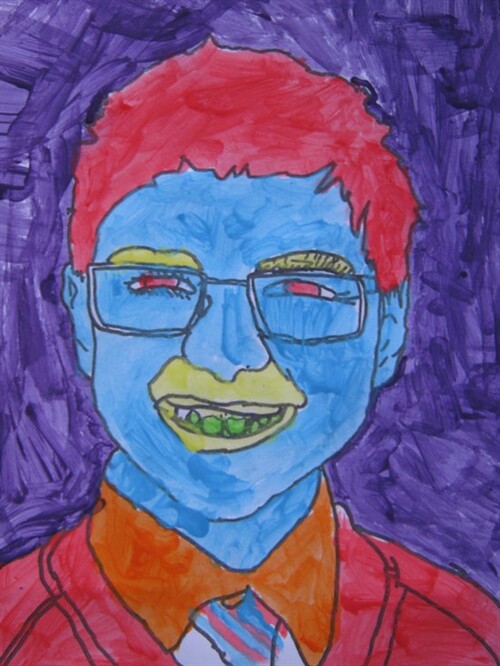
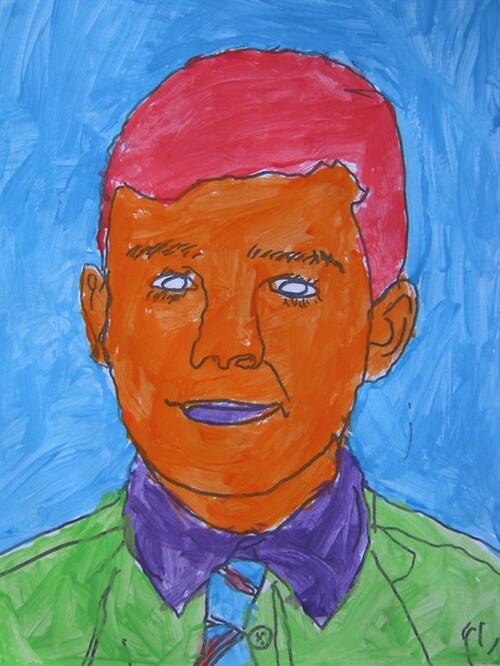
We have been working extremely hard in Maths for the last couple of weeks learning and practising ways that we can add ‘ones’ and ‘tens’ to numbers. We have been using base ten and place value counters to help us understand when we need to ‘exchange’. Ask your child to explain what needs to happen when we calculate 46 + 5 or 532 + 40!
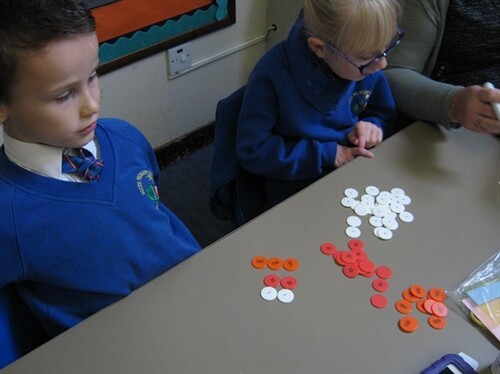
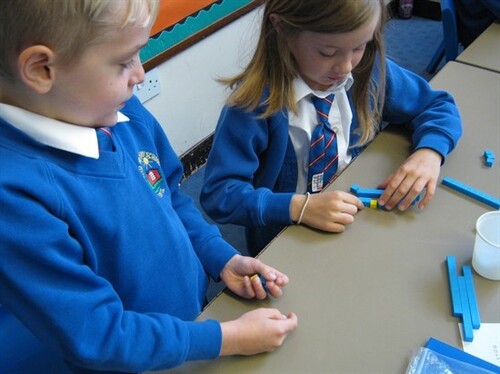
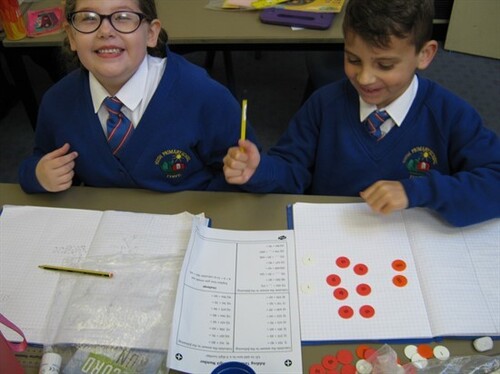
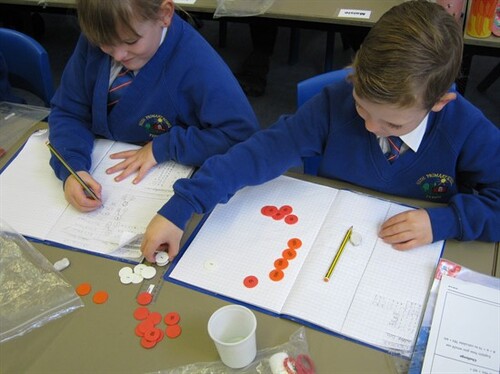
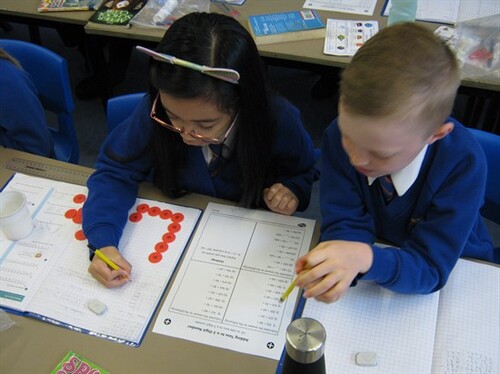
Class 7 have made an excellent start to the year – what fantastic learners they all are! They have shown great enthusiasm and are already making great progress with their English and Maths. Over the summer holiday, many children worked hard on their Ancient Egyptians pick’n’mix homework and we’re sure you will be impressed with what they have made and found out! Lots of work is up on a display in the corridor already. In English, we have been reviewing lots of spelling rules, learning about adjectives and synonyms and revisiting punctuation and grammar rules. Last week they each wrote an “All about me” report which were lovely to read. In Maths, we have been learning about place value and been exploring numbers in lots of different ways. Have a look through the photos to see some of what the children have been up to.
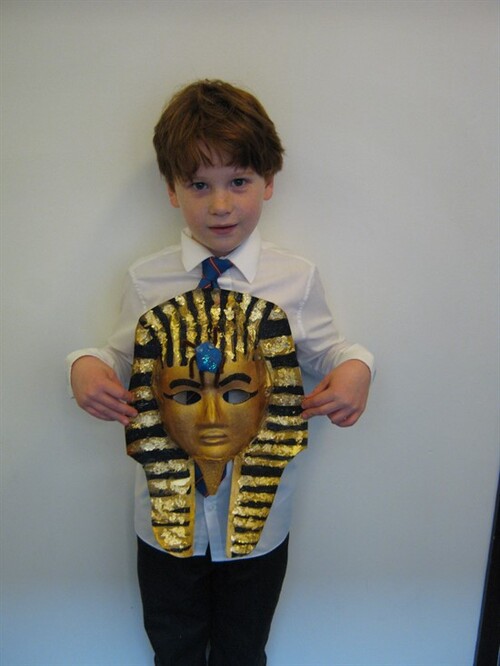
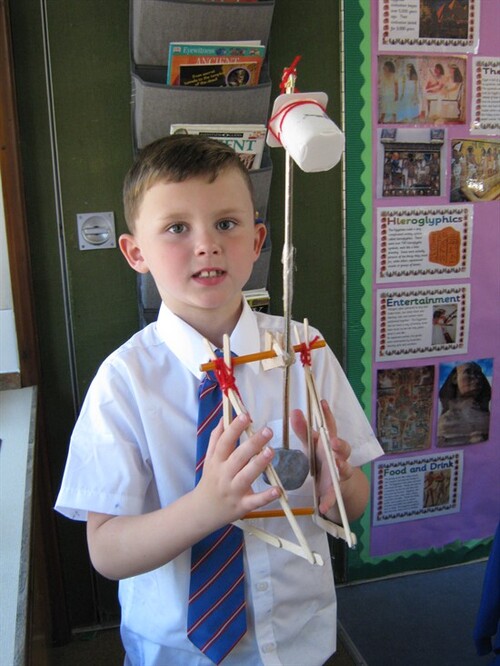
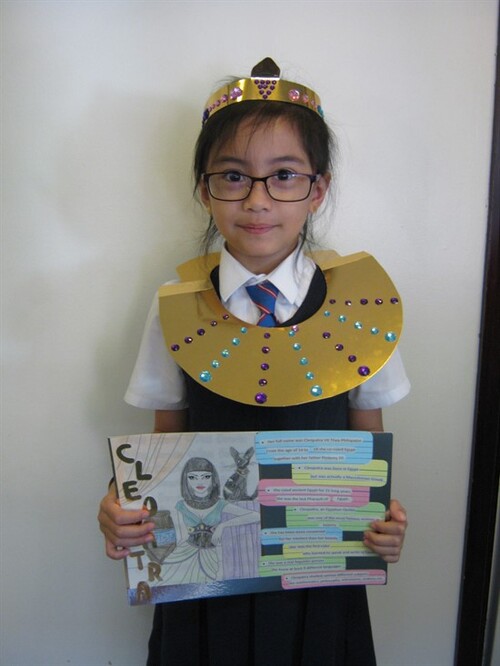
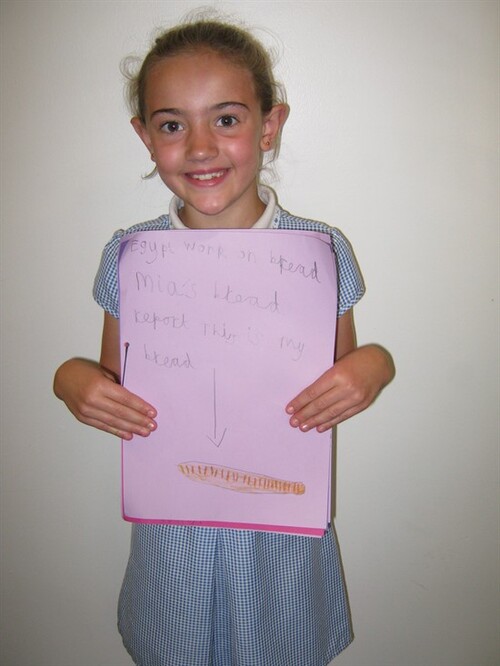
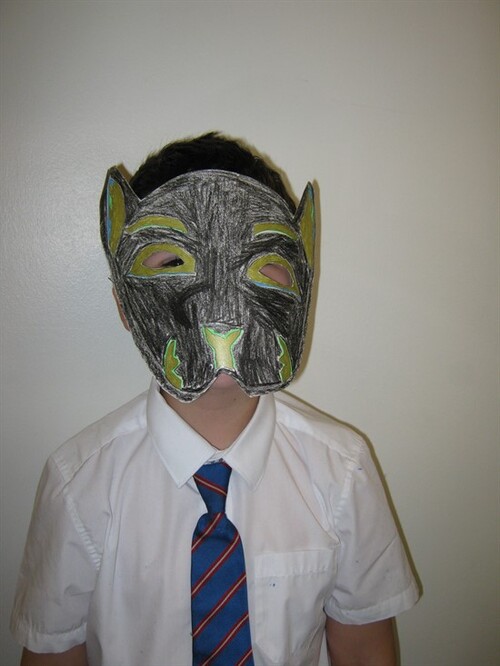
We have had our sketchbooks out this afternoon and have been learning how to draw a robin. We used basic 2d shapes to construct a rough outline and then added detail using different pencil strokes. We have very talented artists in Class 7! Special mention to those children showing a great growth mindset – persevering and showing great resilience. Hasn’t it paid off?
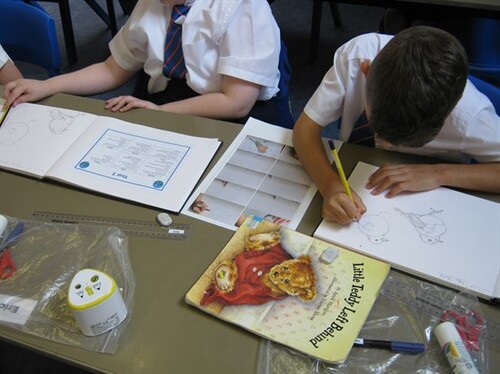
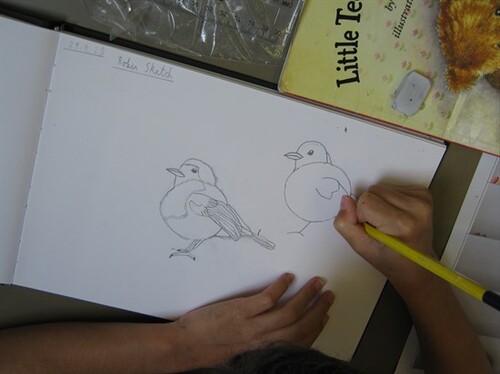
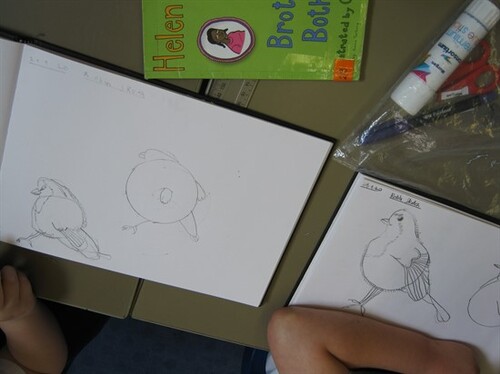
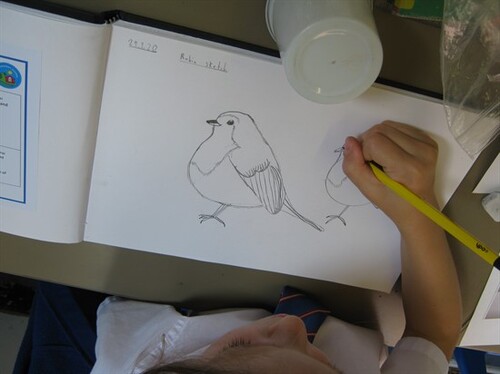
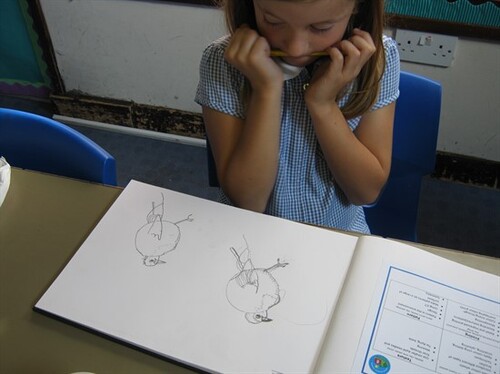
Look at all the things our clever Class 7 children have been up to over the last couple of weeks! Can you believe how tall that bean plant is? Look at all those fabulous wings! Some lovely ‘The Truth about Trolls’ writing too! Well done everyone!
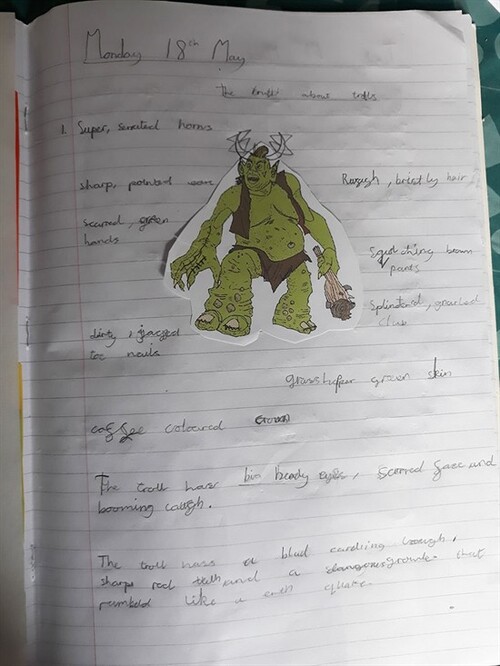
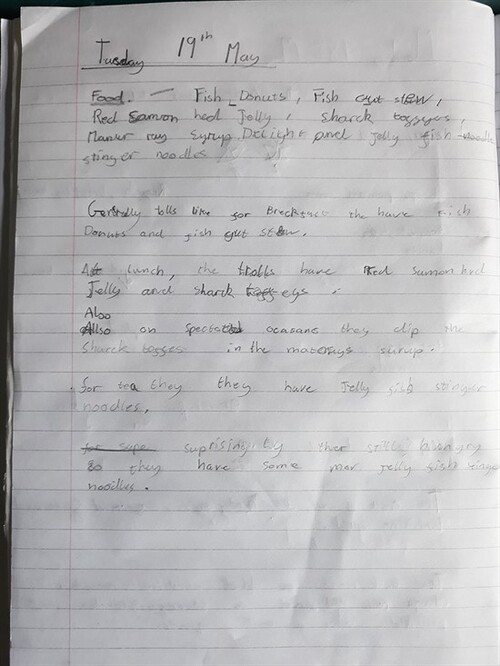
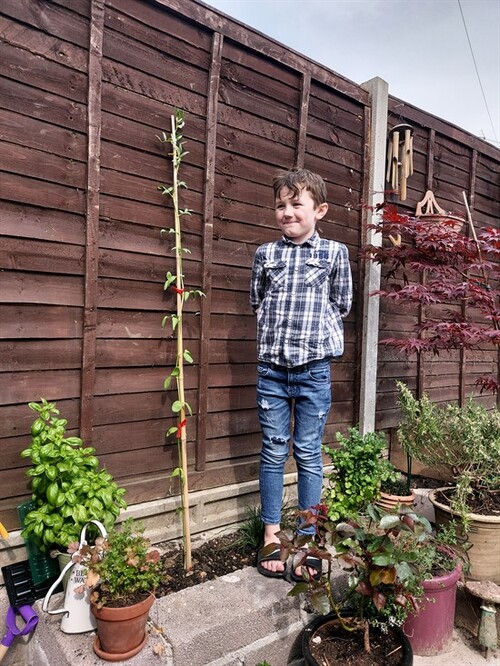
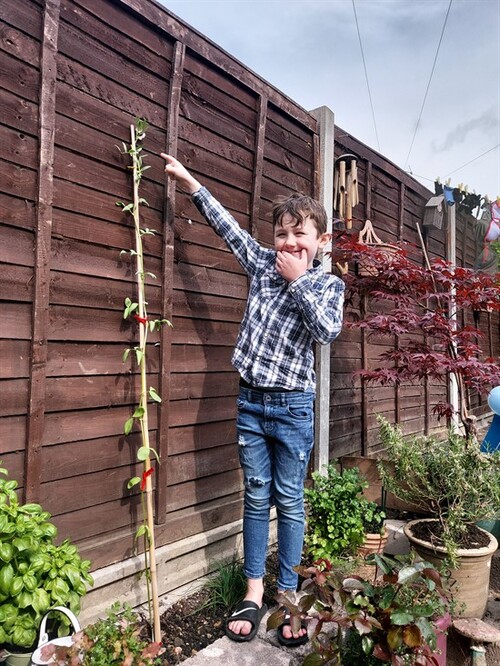
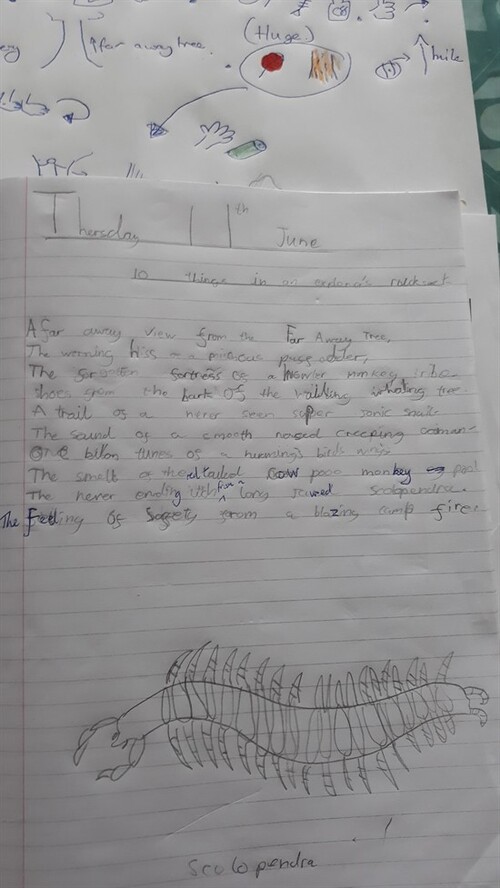
Class 7 have gotten off to a fantastic start to their home learning in the first week after Easter! Just look how well some people have been caring for their bean plants that we started off in school in February! They were so tiny and now they’re really taking off! This week we have written some (quite silly) explanations for how different appliances in our homes work. Did you know it’s fireworks that help to cook your dinner when it’s in the oven? Or that an army of hamsters and baby elephants are really responsible for washing your school uniform once it’s in the machine? I think you’ll agree that our writing is looking fantastic – well done everyone! One of our tasks this week was to help an adult in the kitchen to prepare some food. This class have prepared everything from scotch eggs to crispy cakes, pizza breads to omelette and smoothies to gourmet pasta dishes and curries! We have started to learn about rainforests too. In Geography we have been locating rainforests on a map. Do you notice a pattern? The children were also getting creative last week, making pictures to enter into a wildlife art competition. Some beautiful work everybody – well done. Huish is very proud of you!
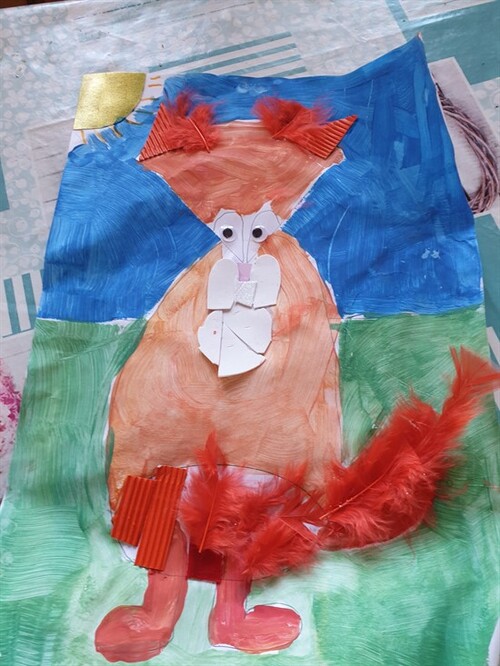
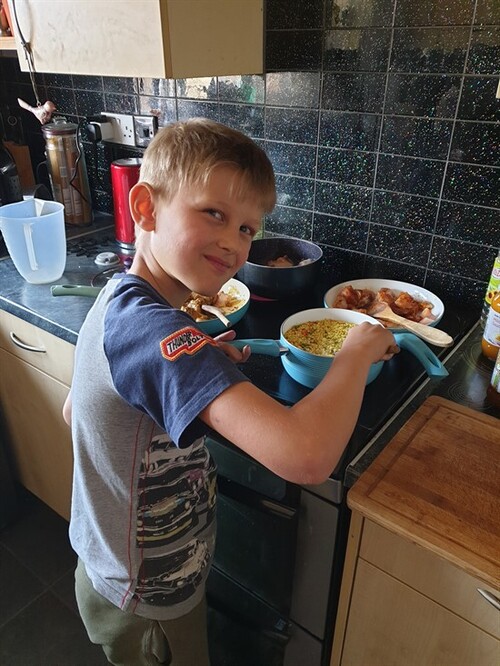
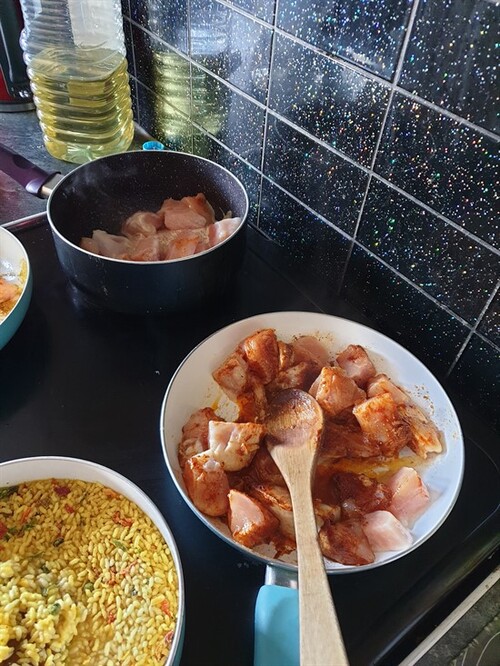
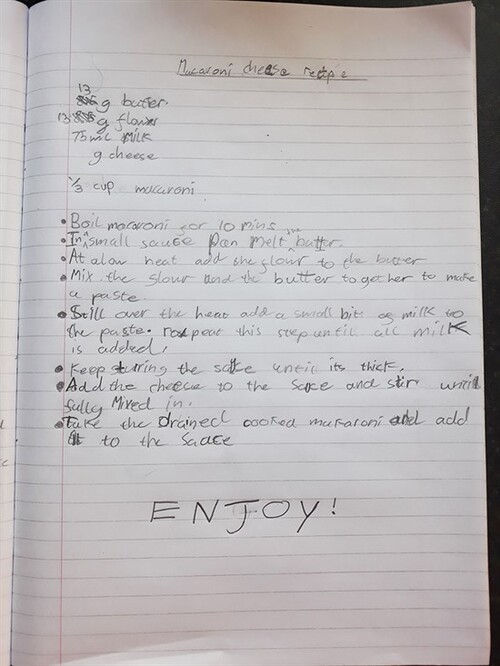
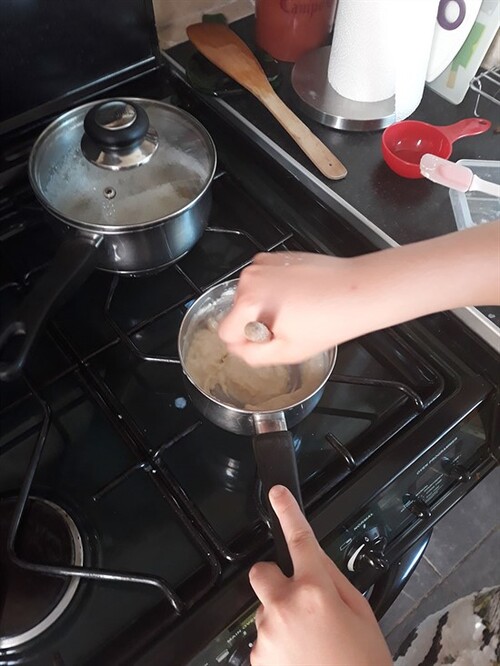
In year 3, we did our annual Victorian day and we were so impressed with the costumes that the children came in with! They looked the part so thank you to the parents! The children were taught by a Victorian teacher (Miss Jones), they did some sewing and then they learnt about the mines, shops and living conditions for the rich and poor. They also learnt a few new games such as Pickup Sticks.




Class 7 have been so busy with their home learning this week and we couldn’t be more proud of our Huish children! Look at the fantastic work they have been producing! They have kept standards high in the English and Maths work and have really risen to the challenge of learning about fractions remotely (well done parents)!!!
On Monday, the children were asked to plant their little broad bean plants that we have been growing in class and find out about how best to care for them at home. Some children got stuck in and started planting some other seeds alongside them to watch grow.
On Tuesday, the ‘other’ task was to help an adult at home with some meal preparations. Well I think we have some budding chefs in our midst - toasties, cottage pies and macaroni cheese were all on the menu.
Wednesday was art and the children studied plants in their home, producing some beautiful pictures.
Lastly was a project on Queen Victoria to support our work on the victorians. This was researched and presented very well - I’m sure you’ll agree!





We had a great day celebrating World Book Day yesterday. The children arrived in some fantastic costumes and looked really great! During our Maths lesson we collected data about the characters people had come dressed as and organised them in a Carroll Diagram.





In Arts Week, Class 7 enjoyed learning how to make a variety of marks with drawing pencils, mix colours and more accurately draw a face, producing some lovely self portraits in their sketch books. Ahead of Shakespeare Week they have also produced some truly amazing portraits of William Shakespeare!





For internet safety week, we created our very own E-books based around the story of Tek. Children were asked to draw and write their own stories. We also learnt a song about internet safety using the theme of the song ‘Dance Monkey’.
For Africa day in Year 3, we tried 3 different activities in the morning. One of the activities was weaving Kente cloth out of paper. We decorated strips of paper carefully using bold colours and then wove them into a template.



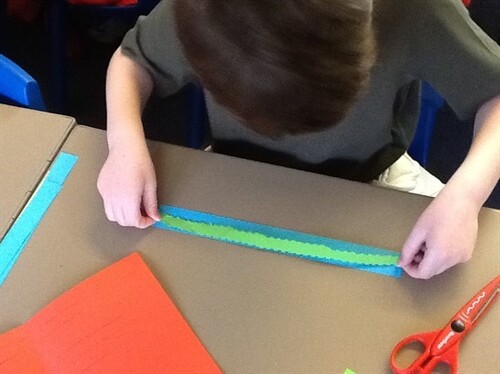

Having just started a maths topic on money, we spent our maths lesson this morning counting bowls of change and recording in both pence and in pounds using decimal notation. There were 16 stations around the room and some were quite challenging! We talked about the value of coins and used our number and times table facts to help us to calculate quickly.





Year 3 have been learning about fair trade as part of our topic about ‘Where our lunch comes from’. We learnt about the work that goes in to getting a banana to our supermarket shelves. We were quite shocked when we learned how the 30p spent on a banana by a consumer is shared between those involved in the process.
We had a lovely day on Christmas jumper day and everyone looked very festive and raised money for Save the Children! We also had our Year 3 Christmas party, playing some games and enjoying a party tea together.


Class 7 enjoyed tasting lots of different fruit from around the world this week, some of which we’d never tried before. We looked at the countries in which the fruit was grown and then found those places on a world map. We were surprised that some of the fruit we tried had travelled a very long way indeed to get to our supermarket! We decided our favourite - can you guess which it was?





In Year 3 we have been learning all about different types of skeletons and their roles in living things in our Science lessons this term.
We had a visit from Nick the Bug Man with his travelling show – Bugfest. He brought in lots of strange and exotic creatures for us to have a look at and we even got to touch and examine some of them closely although some of them were far too delicate or deadly! We saw tarantulas, millipedes, African land snails and stick insects amongst many others. Some of the creatures had interesting talents: don’t ask what a whip scorpion can do!
We had fun guessing whether each creature had an endo-, exo- or hydrostatic skeleton and found out that actually some creatures have more than one type!
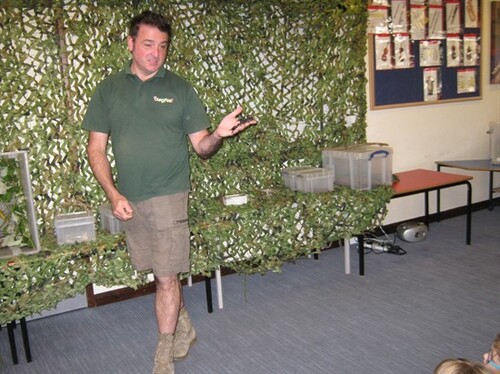
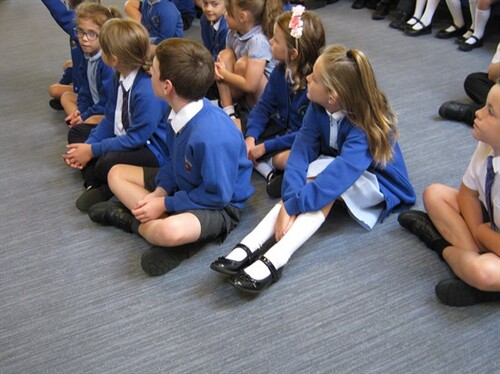
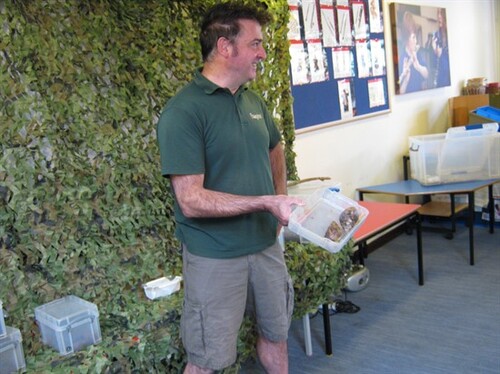

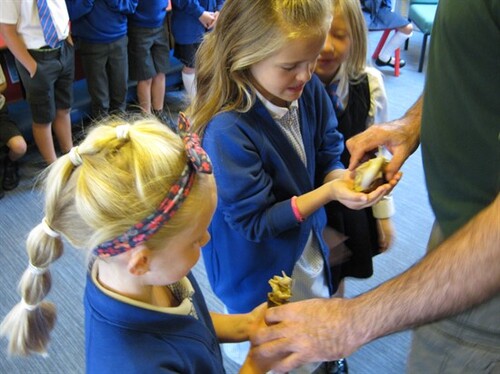
On Friday 10th May, Class 7 visited The Earth Science Centre in Stoke St. Michael to support their learning and understanding of Rocks and Fossils. The children got to test the properties of rocks in order to classify and identify a number of rocks. As well as finding out about their uses in the world. The children also got to study a range of fossils and learn about how they were formed.
The highlight of the day was visiting a working quarry, which extracts limestone, mainly used in road building. It was exciting to watch the huge dumper trucks off load huge boulders into the crushing machines right in front of us! One group were also lucky in witnessing an explosion at the site.





In our Science topic, ‘Forces and Magnets’ we have been carrying out lots of experiments and investigations, including:




This term, year 3 have been learning about the Victorians and they were fortunate enough to get a guest into the school to help make their topic come alive! During their Victorian day, the children took part in a 20 minute live Victorian lesson with their guest acting as a Victorian teacher. Straight backs, polite manners and being presentable were on the agenda as our children tried to please the teacher. The children also learnt about the dreaded mines, school life and living conditions for the rich and poor children and the shops that were around during this interesting time. The children really enjoyed the experience and learnt many things.

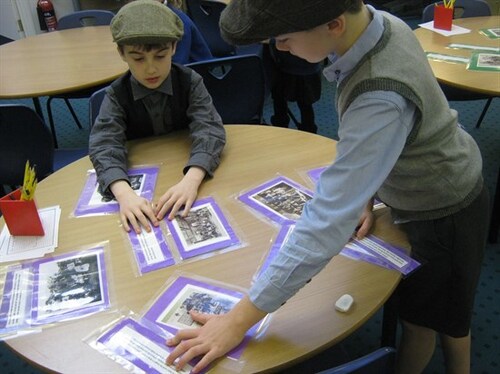
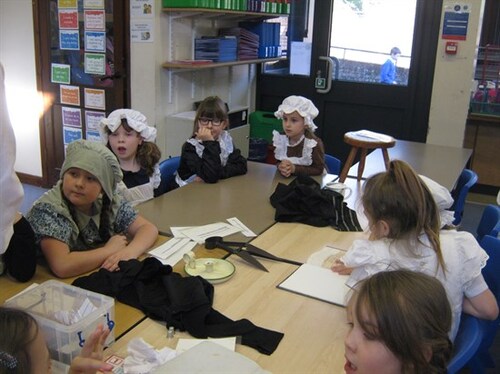
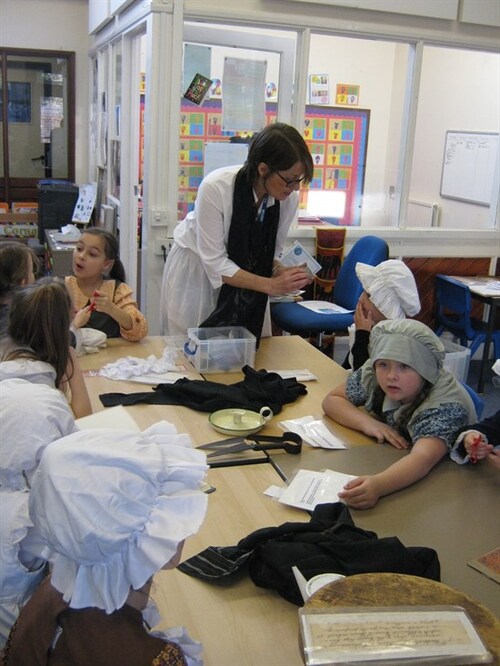
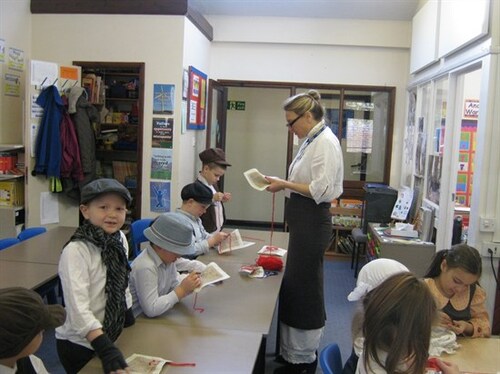
This visit was to support our learning about where our food comes from, supporting our Geography topic on ‘Where does our lunch come from?’
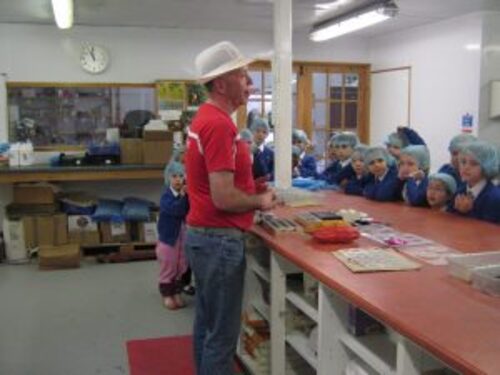
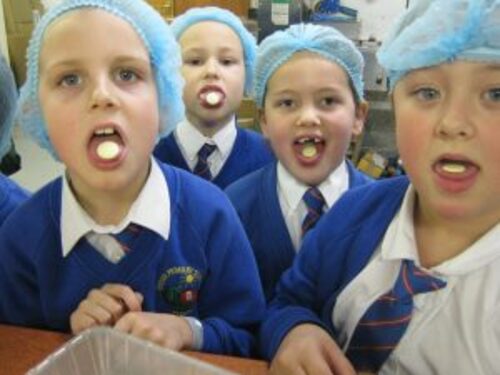
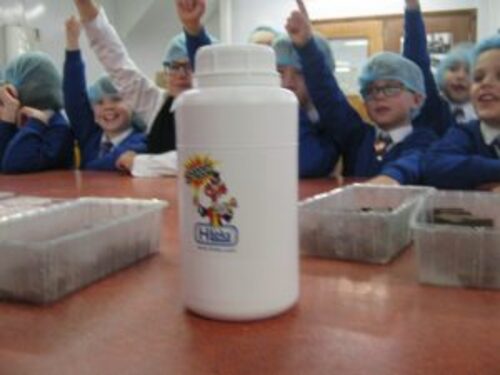
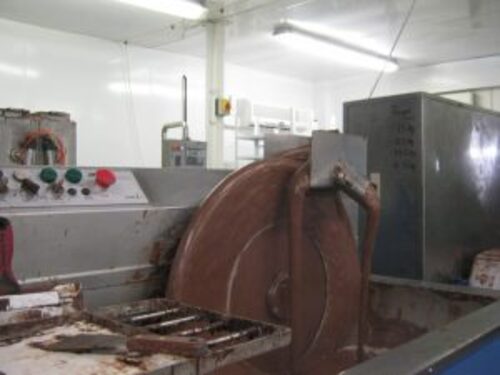
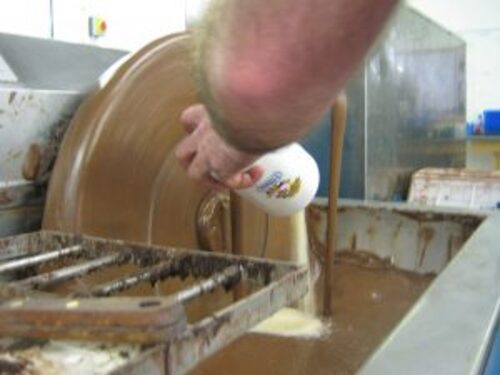
The children worked in groups to decide how they should group animals according to what they eat. By the end of the session they had all learnt about the terms: herbivores, carnivores and omnivores.
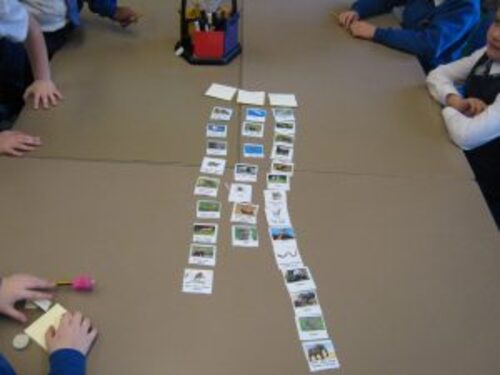
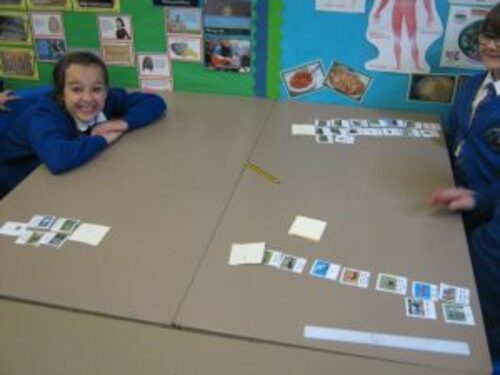
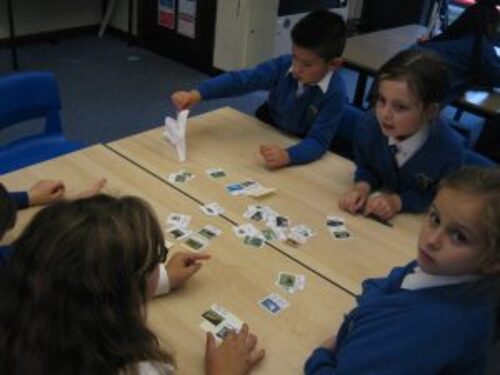
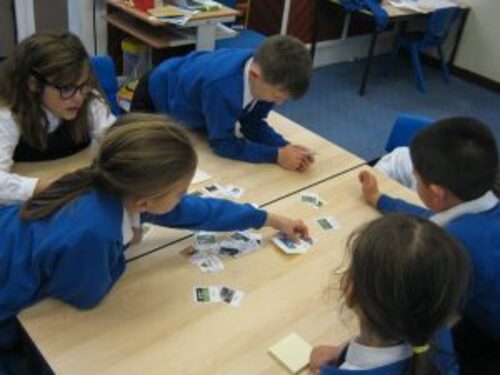
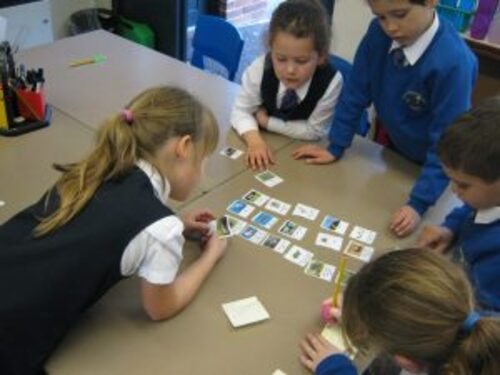
The children worked in pairs to locate European countries with the help an atlas. They first used the Contents page to find the most suitable map.
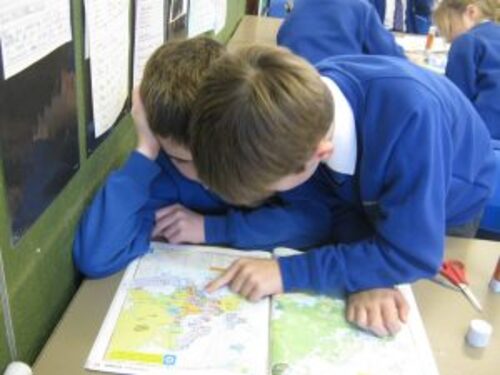
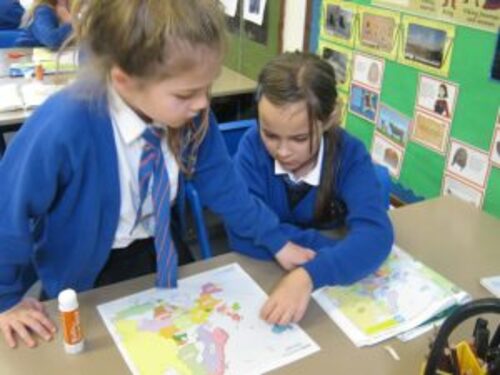
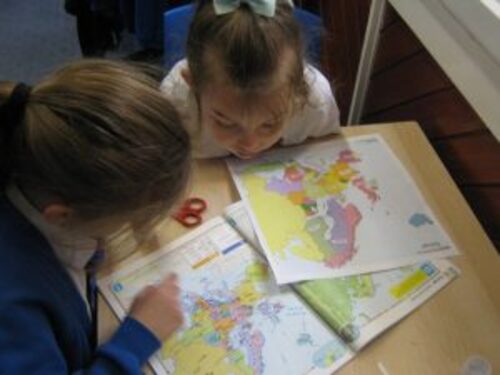
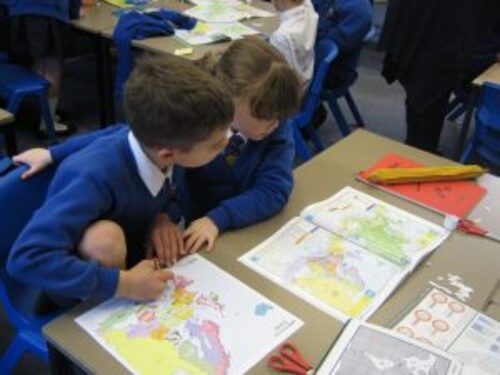
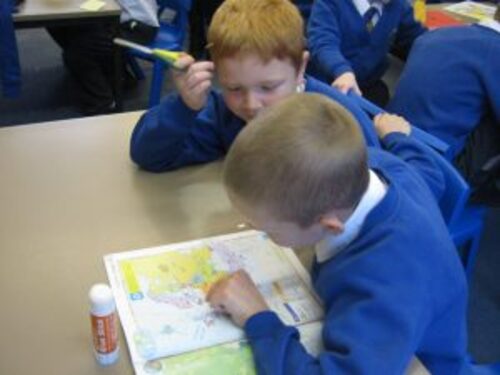
Nick came with a collection of his wonderful creatures, so we could test out our knowledge of endo-, exo- and hydrostatic skeletons. Some of the animals originate in rainforest habitats, which will be our topic in the Summer term.

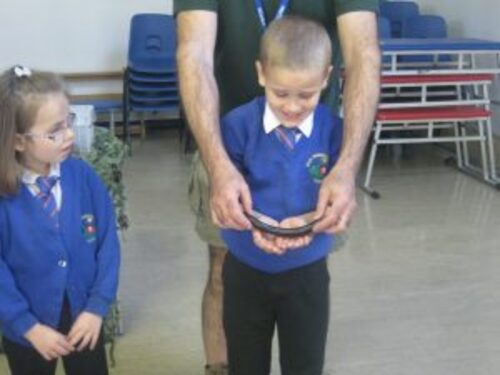
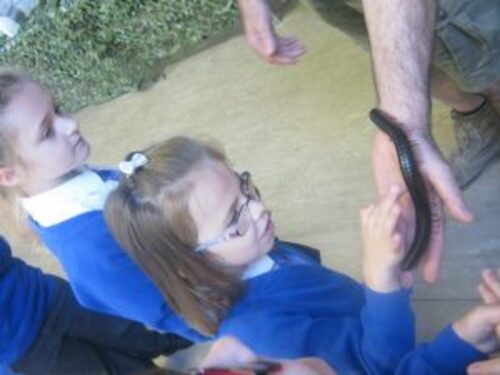
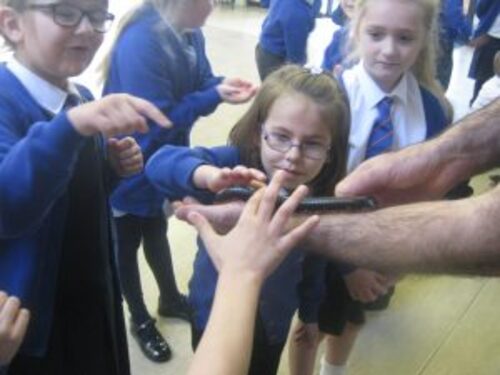
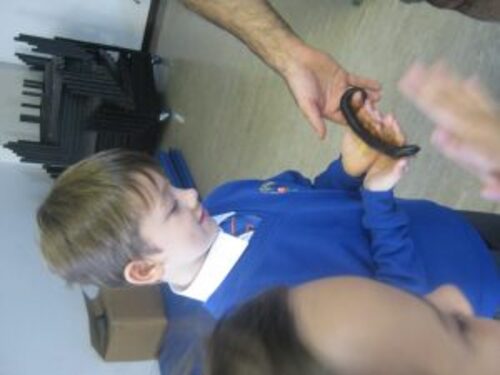
We took part in our own archaeological dig. With the treasures we found, we thought about what evidence this might tell us about the people that once lived there. We found bones, fur, beads, pottery, shells, coins and other items
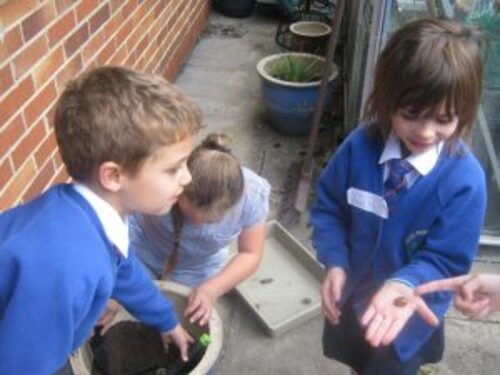
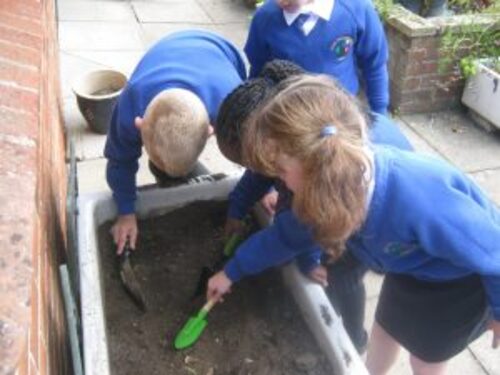
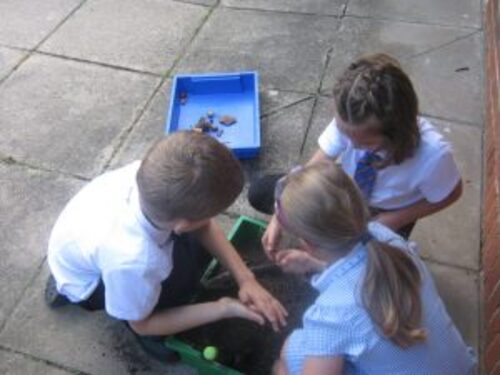
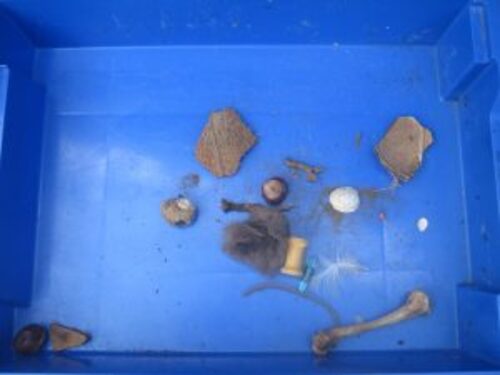
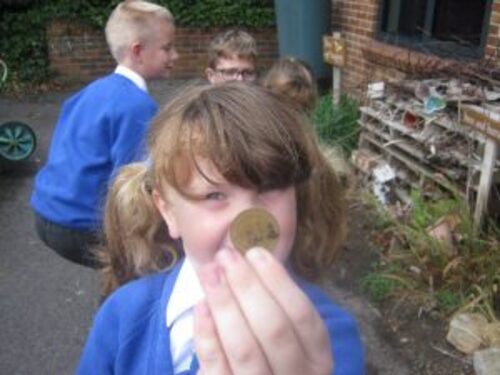
We placed a chicken bone in vinegar – What happened and why?
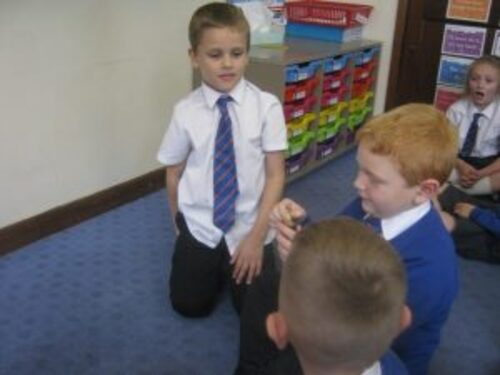
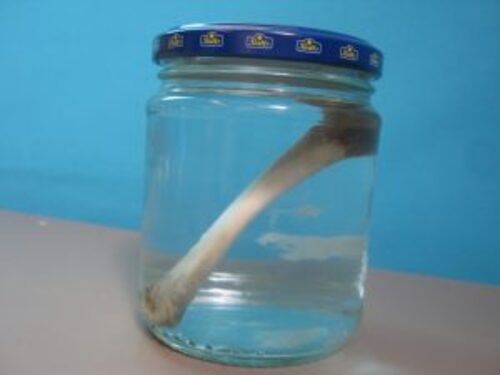
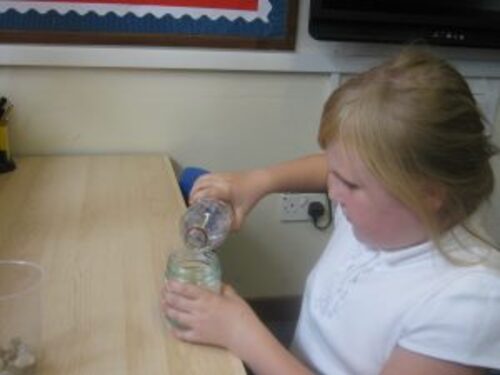
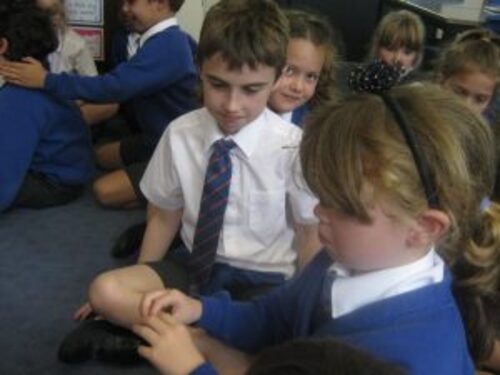
Can we name the bones in our body?




